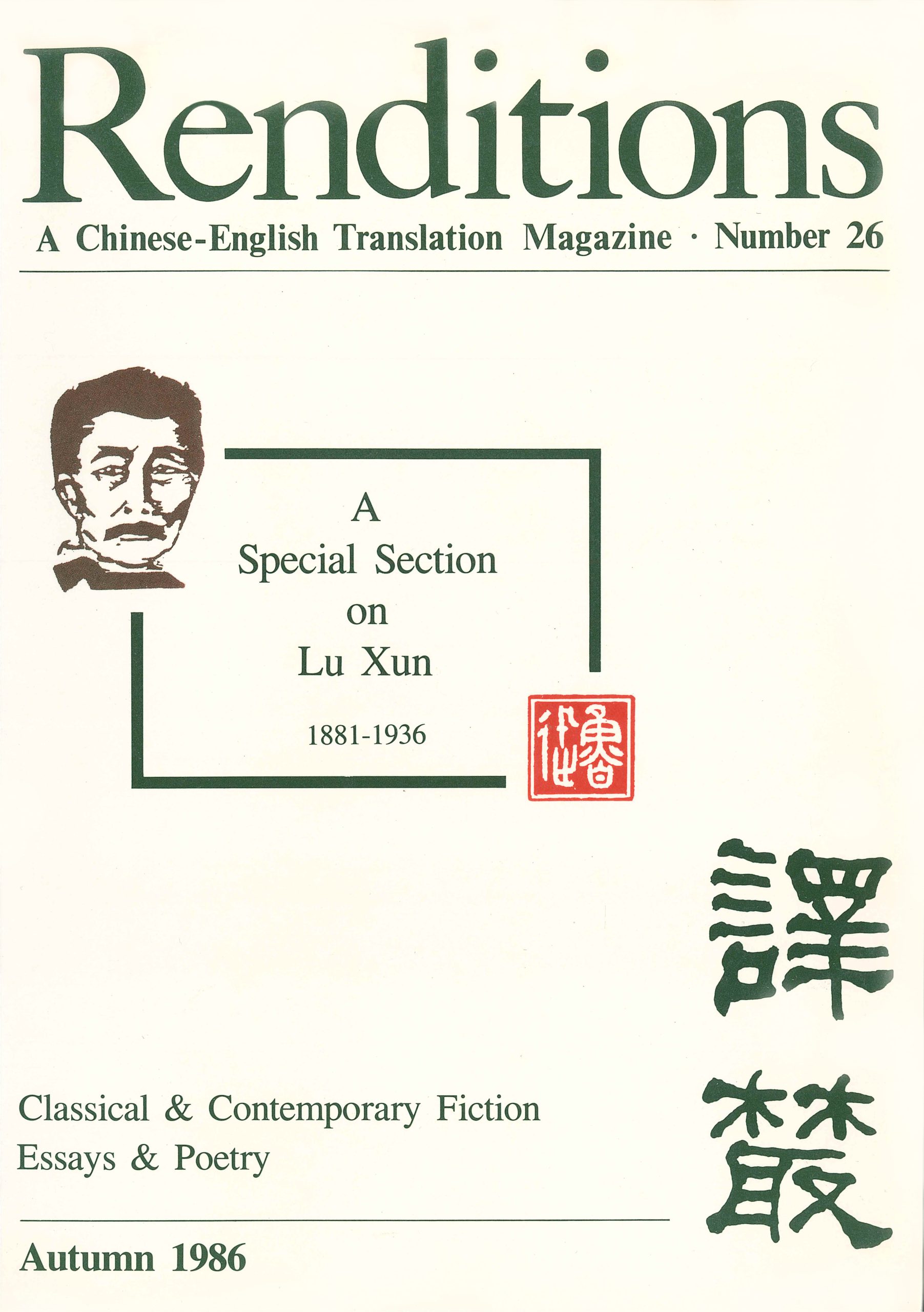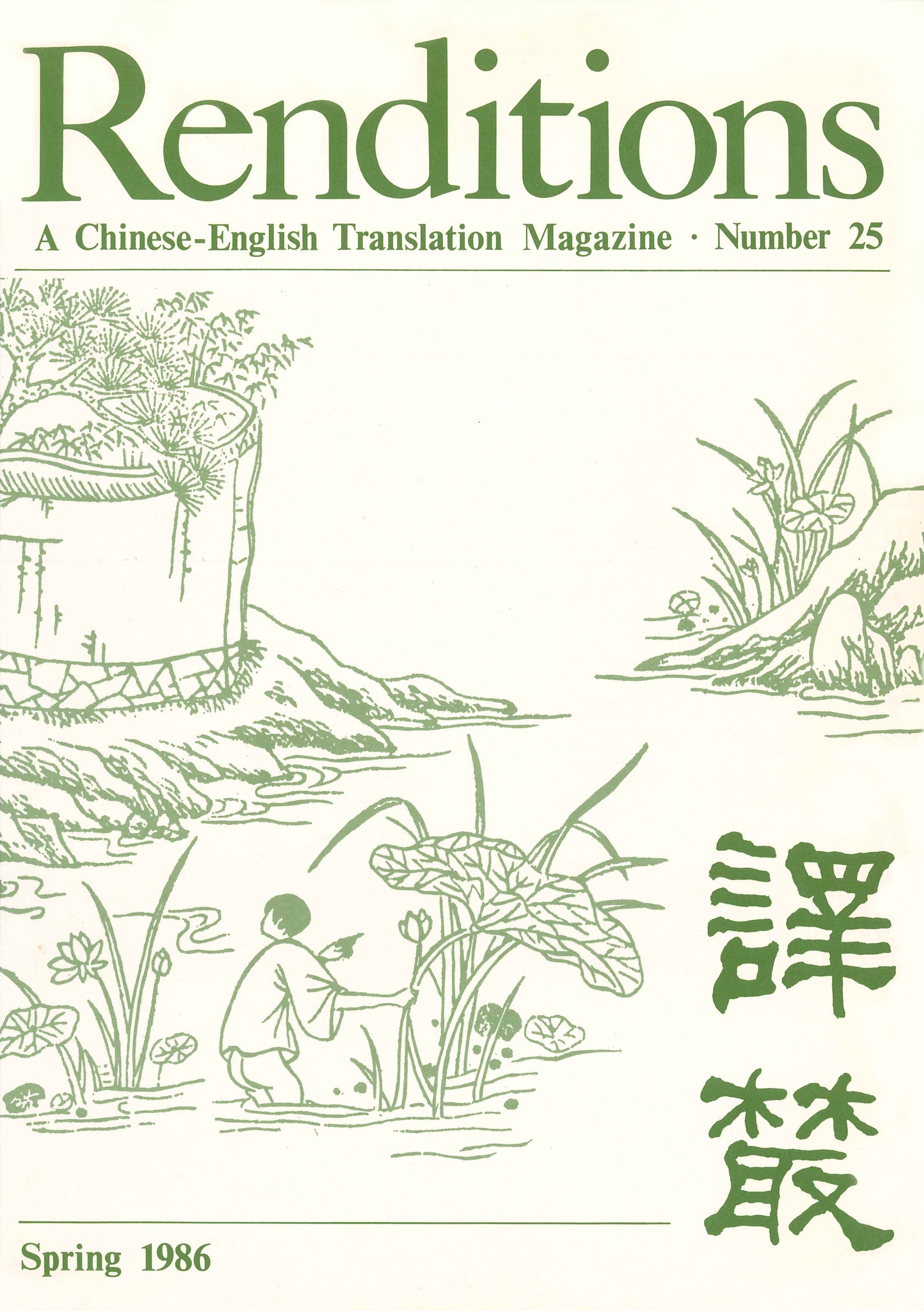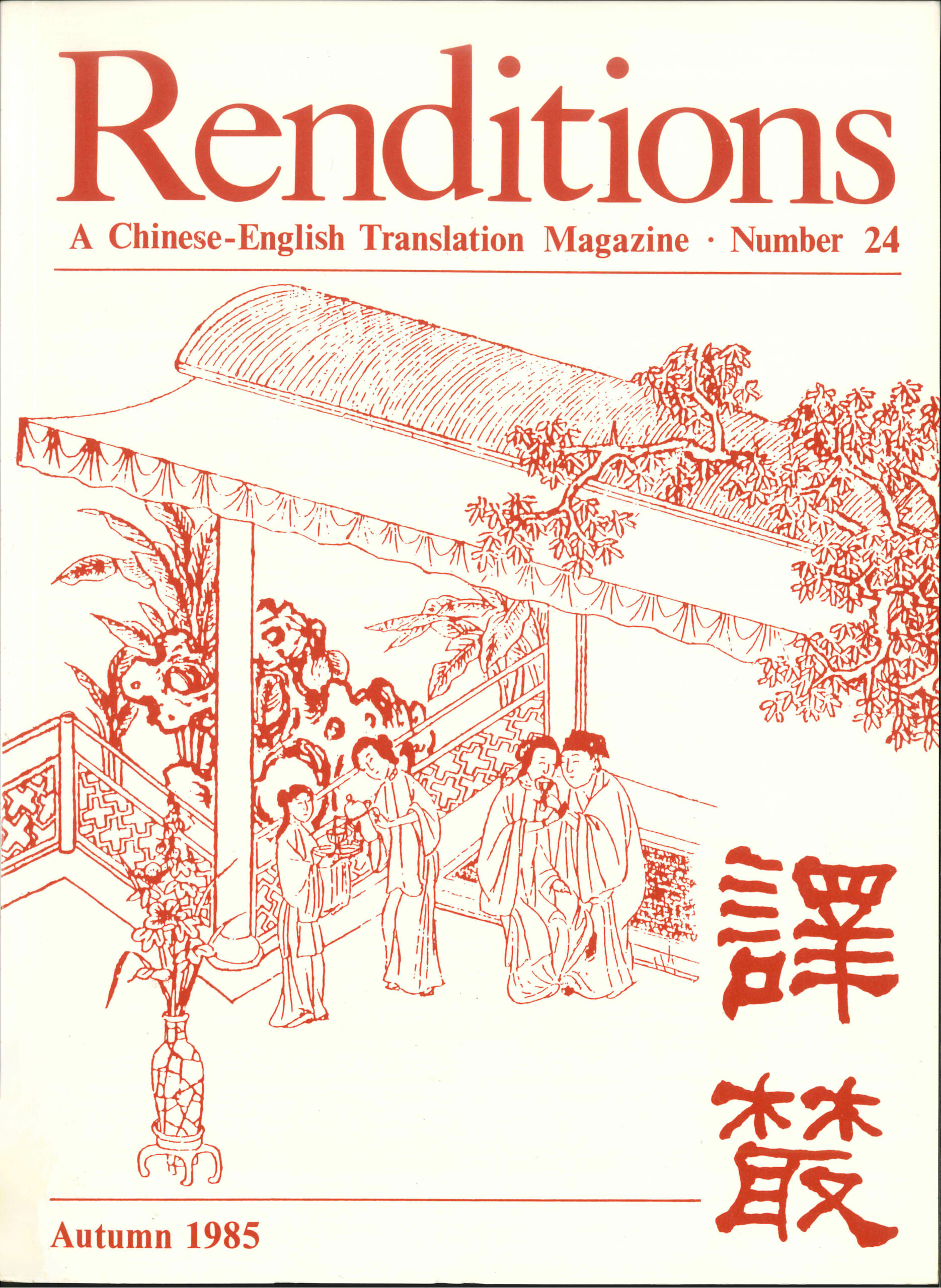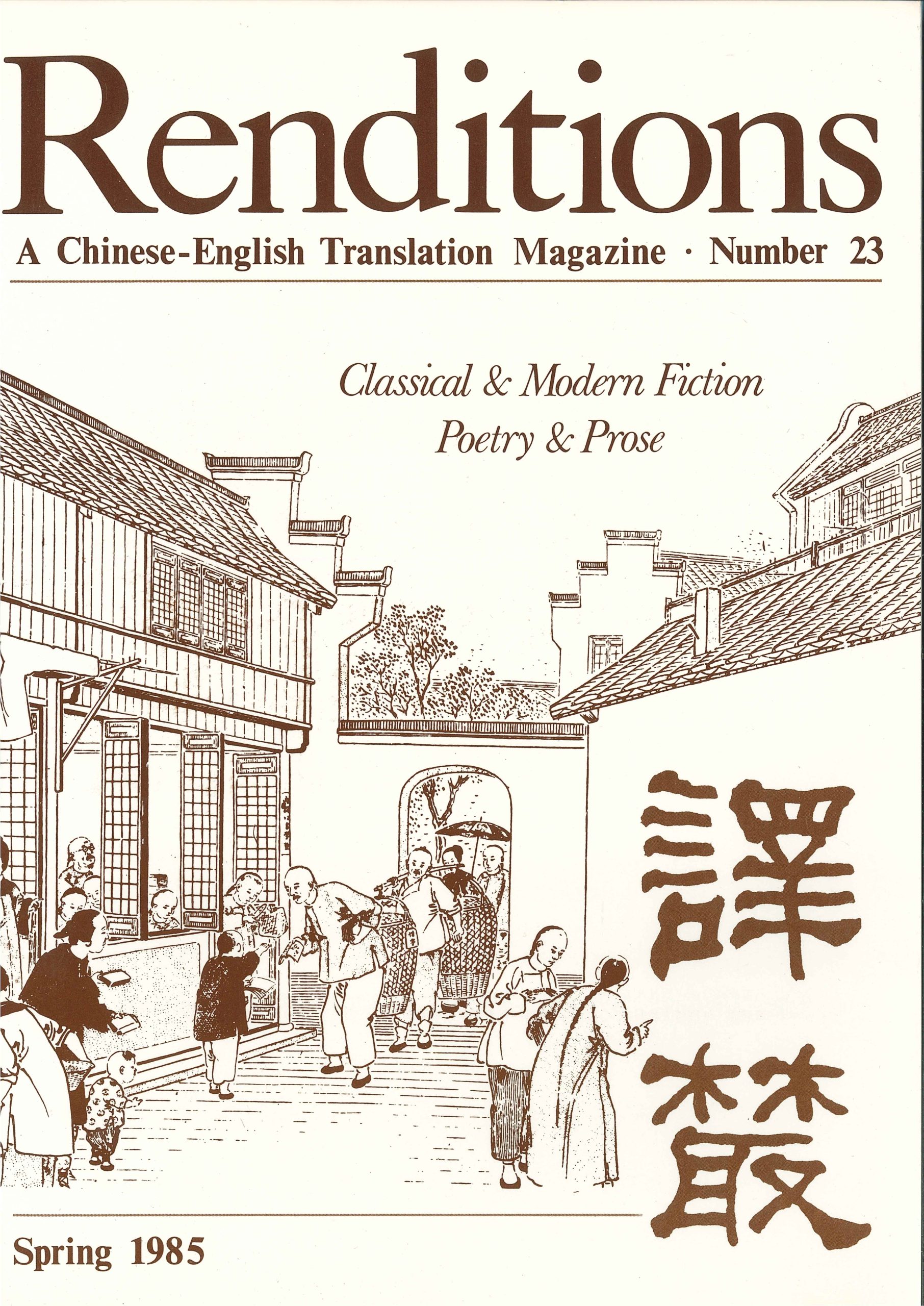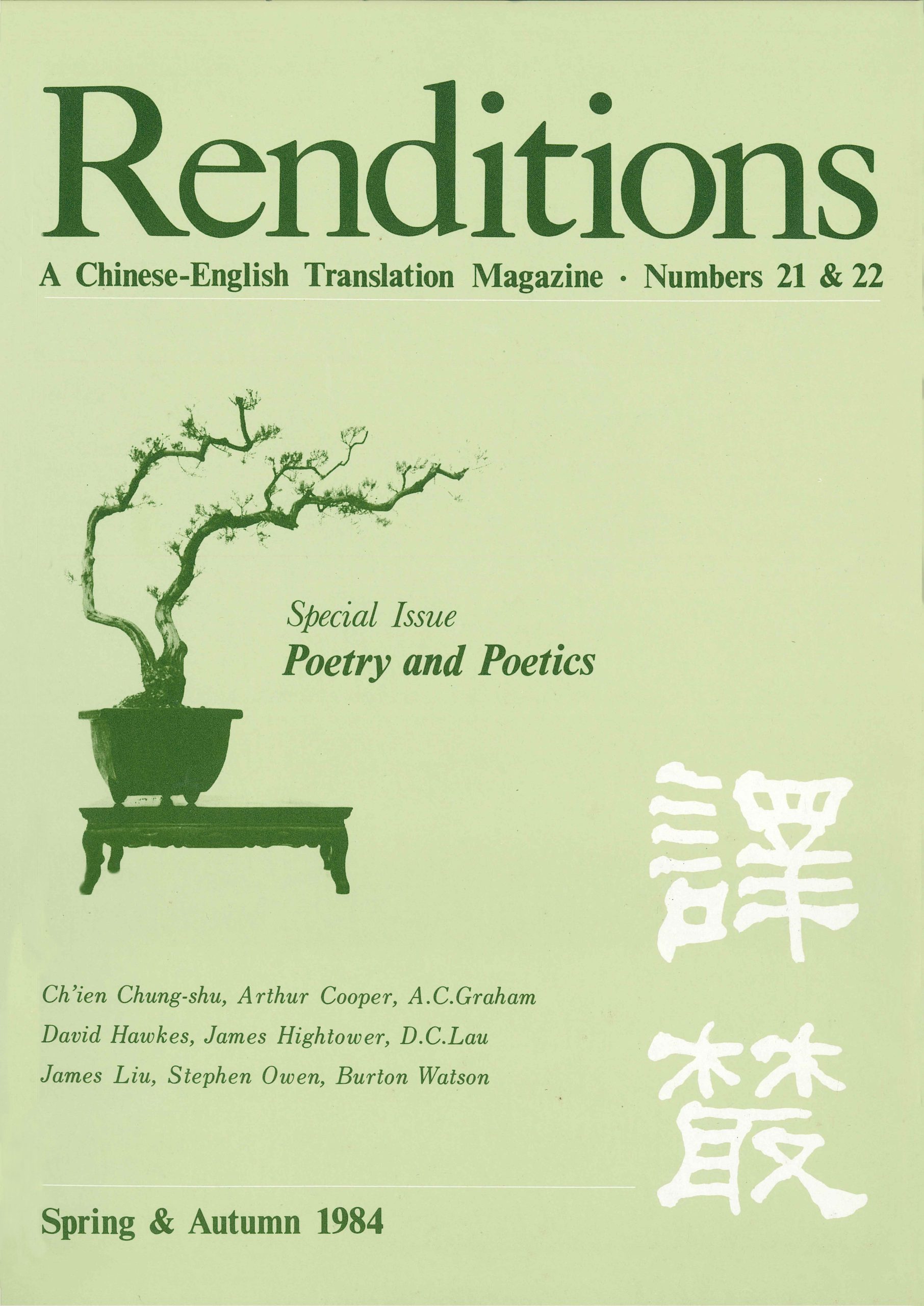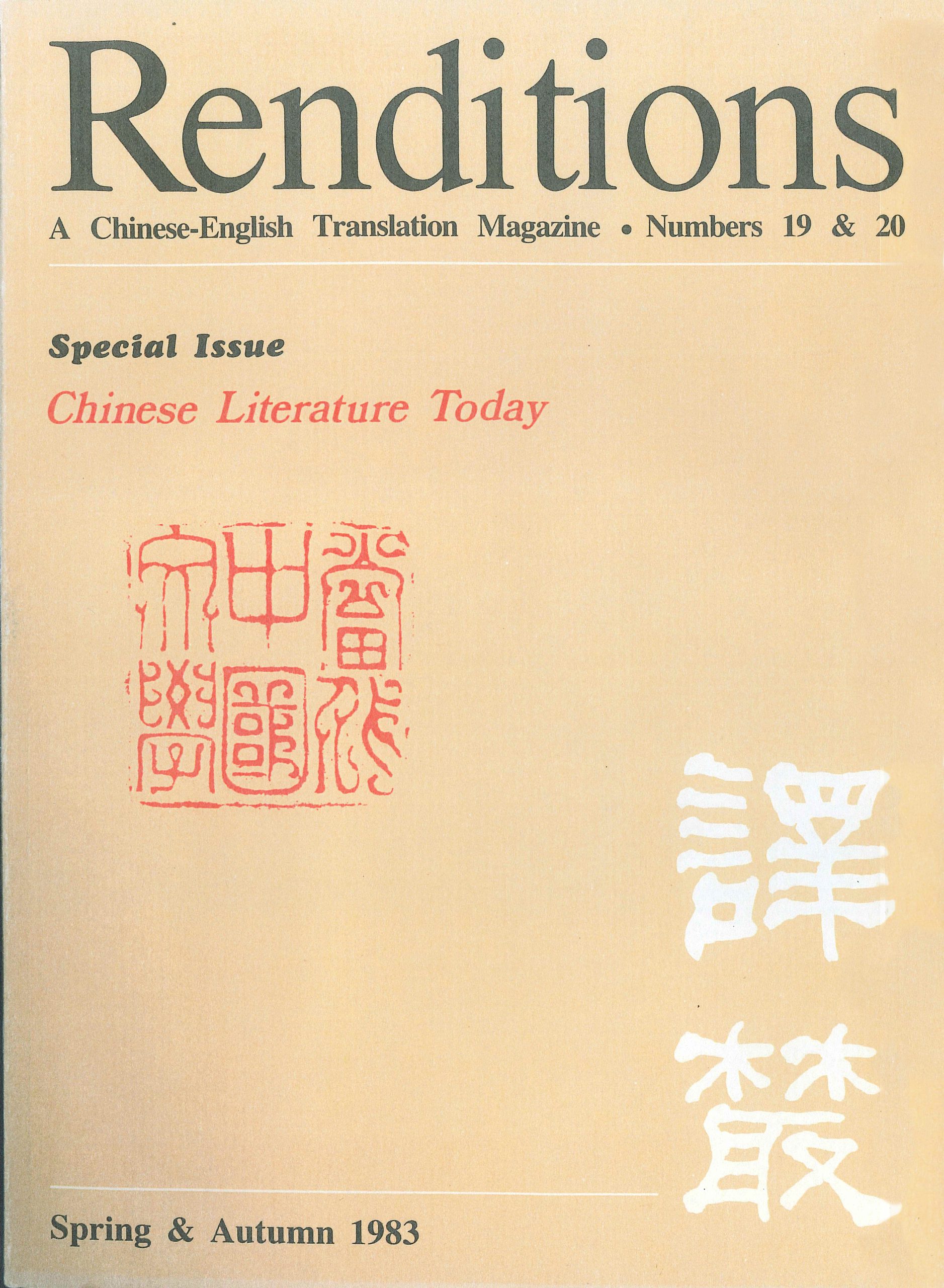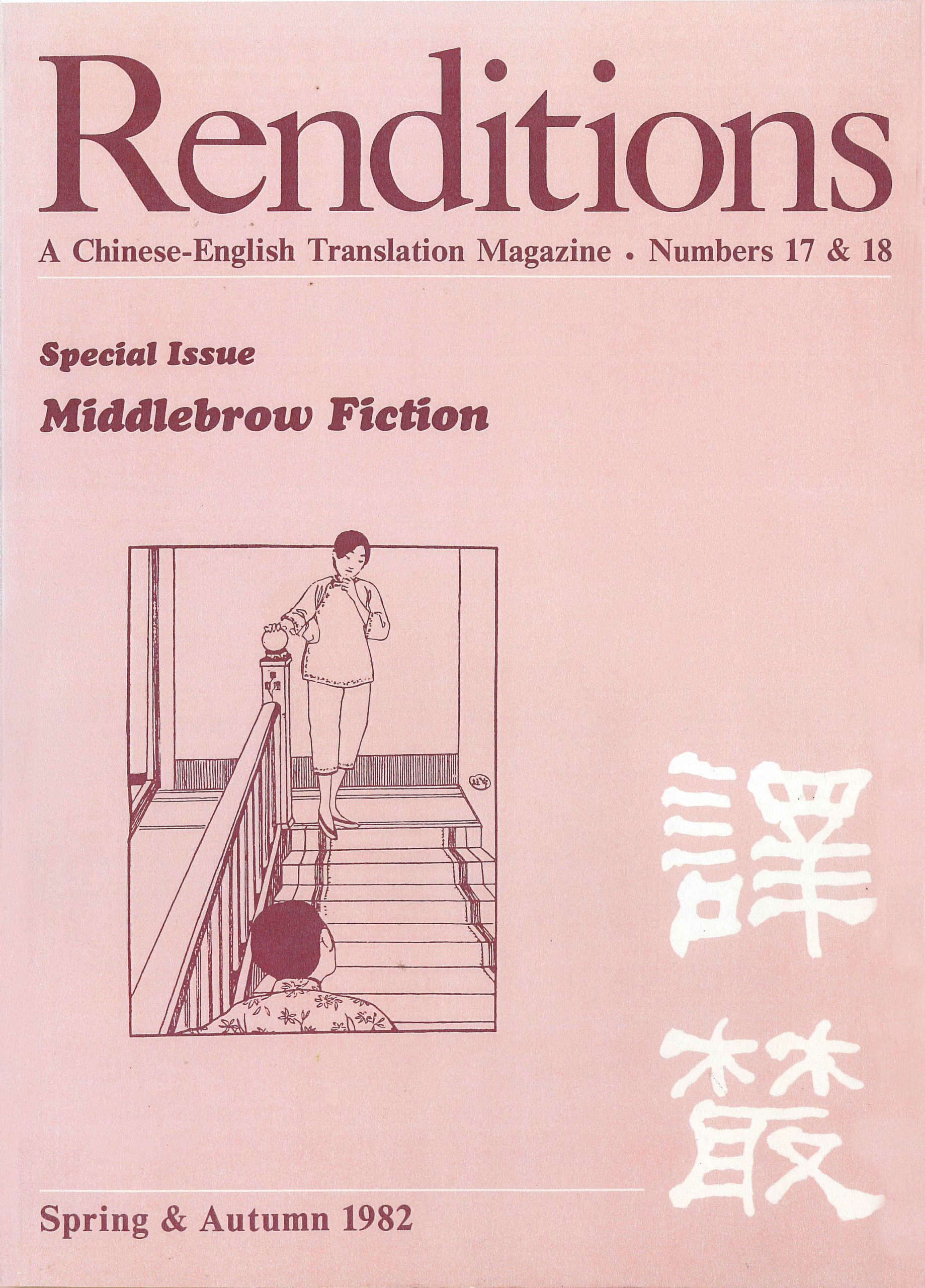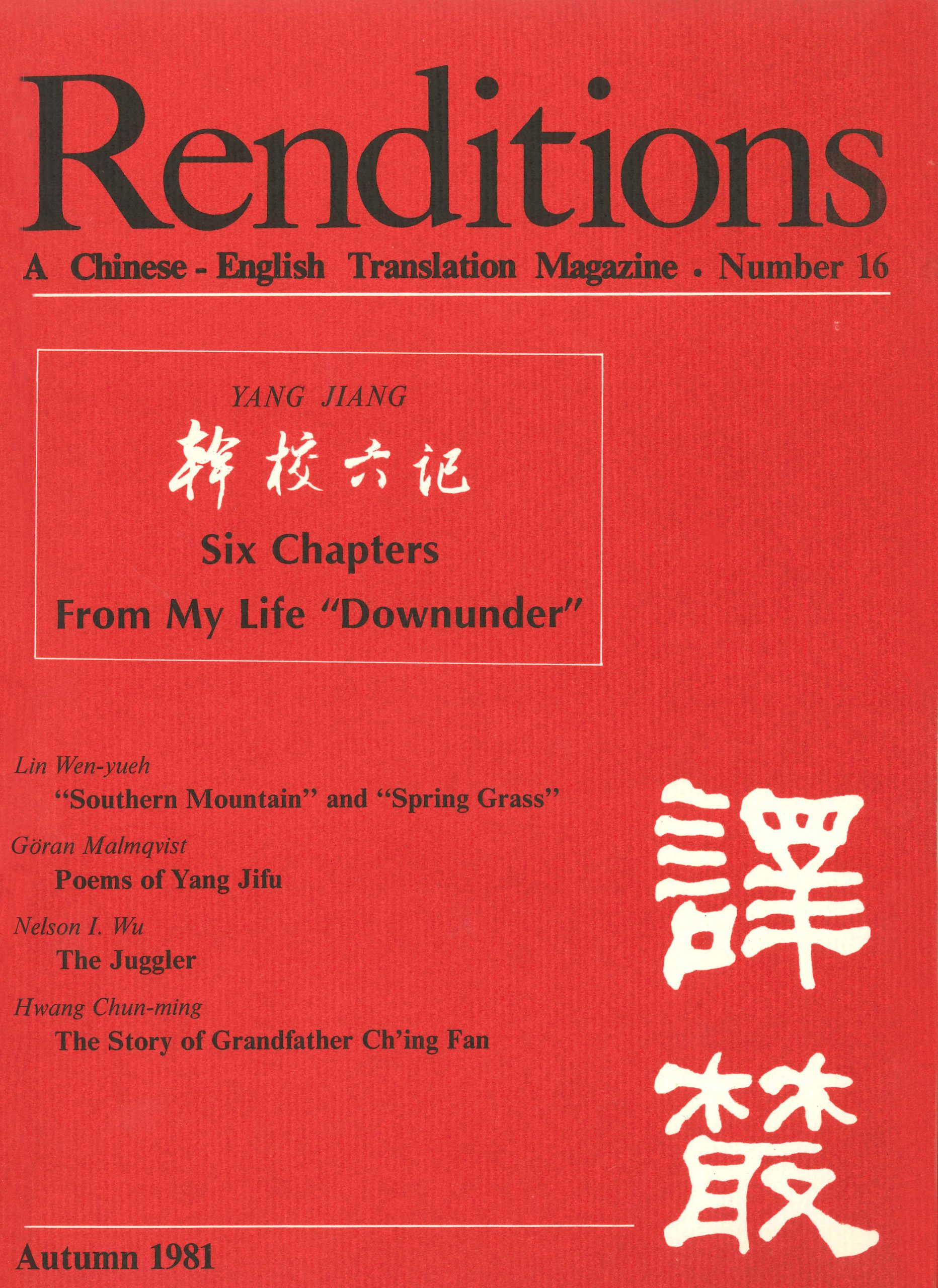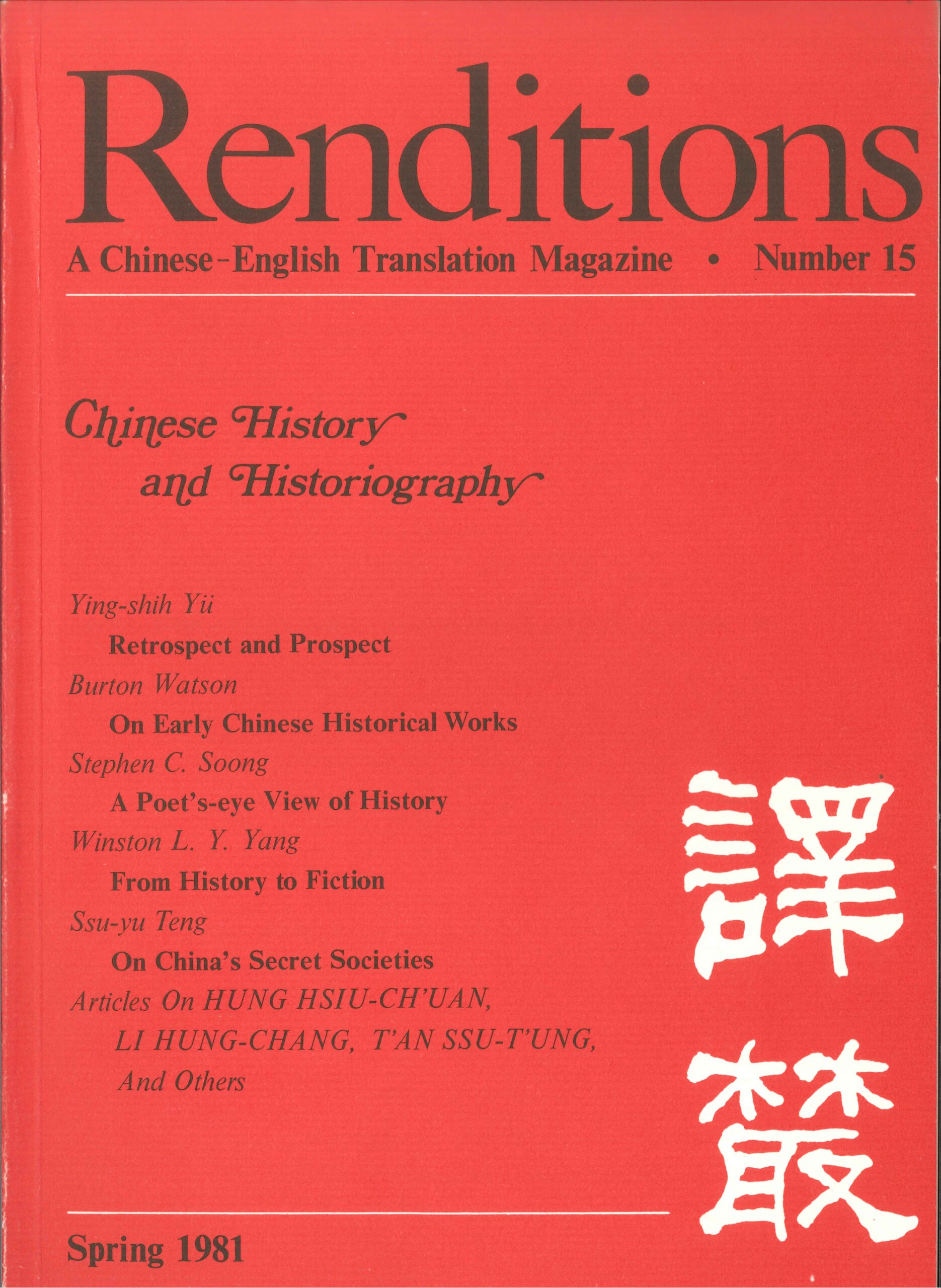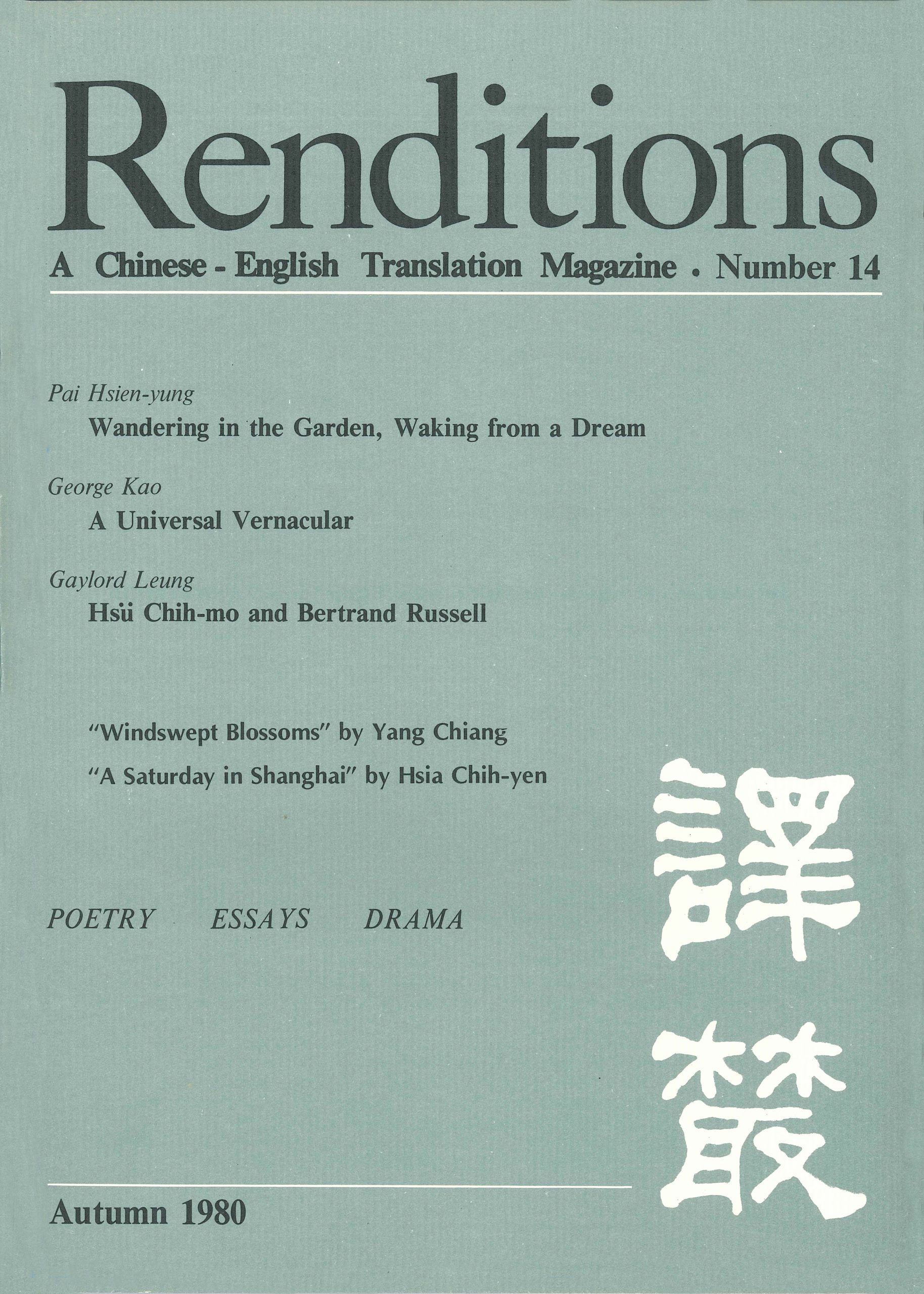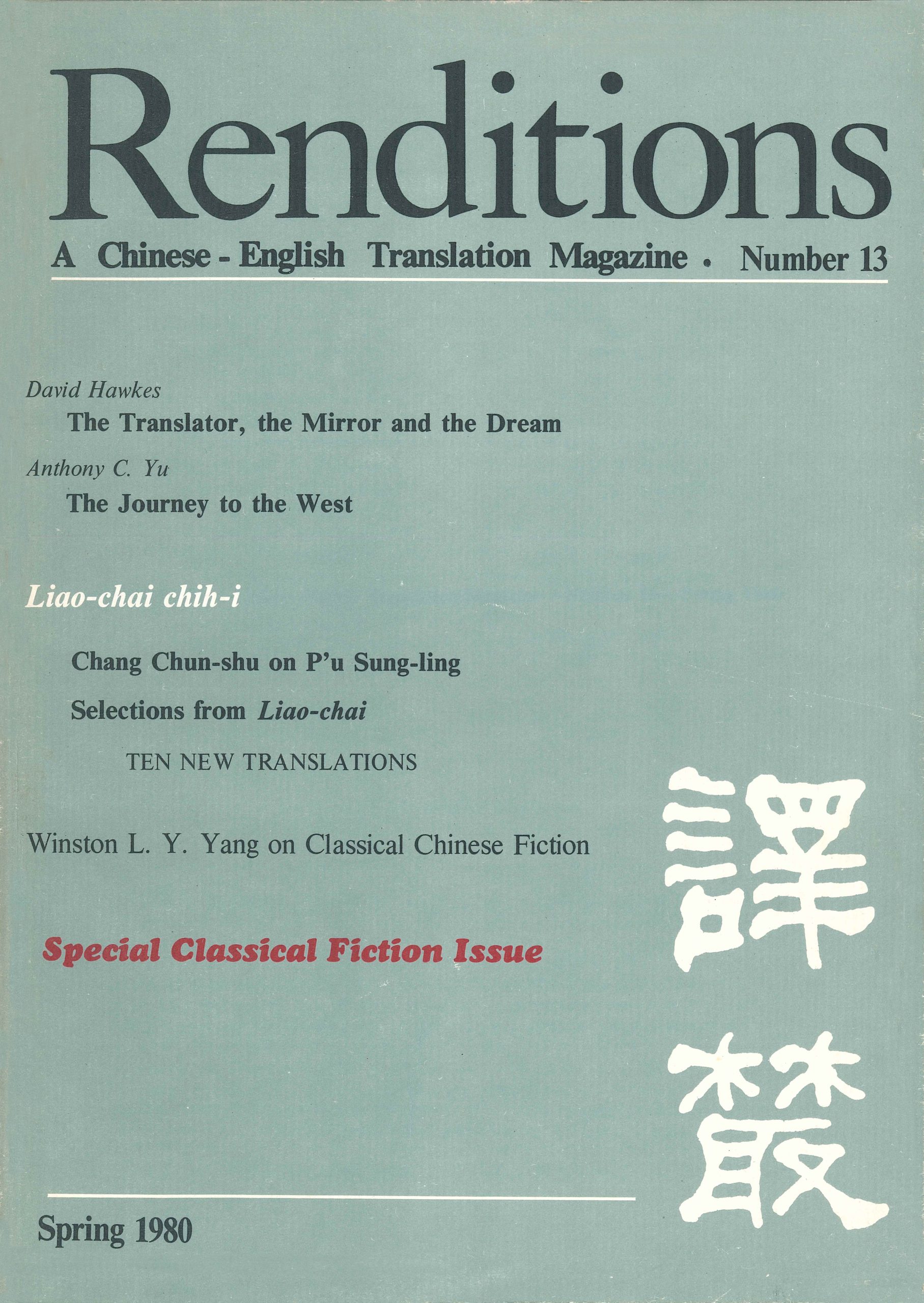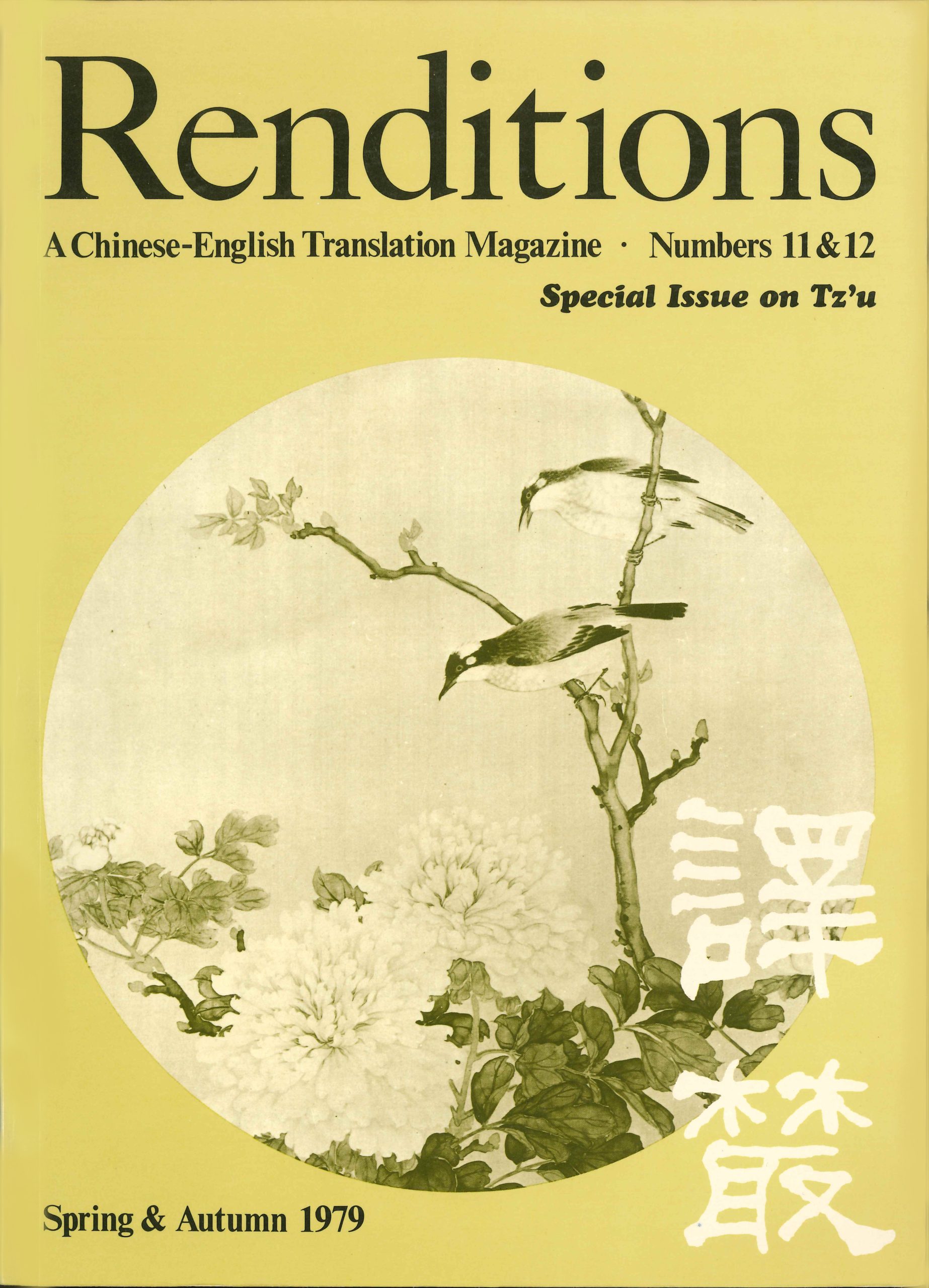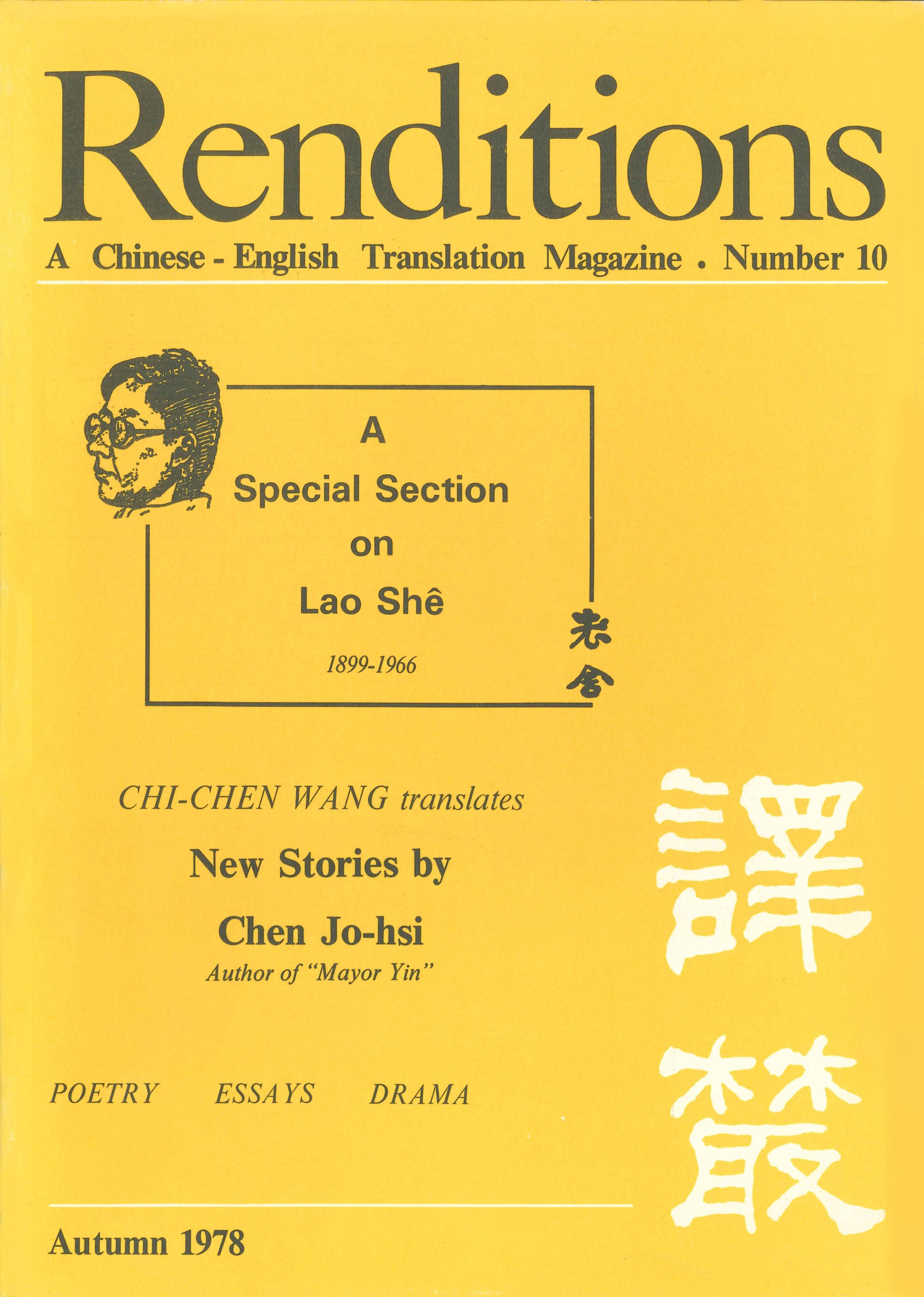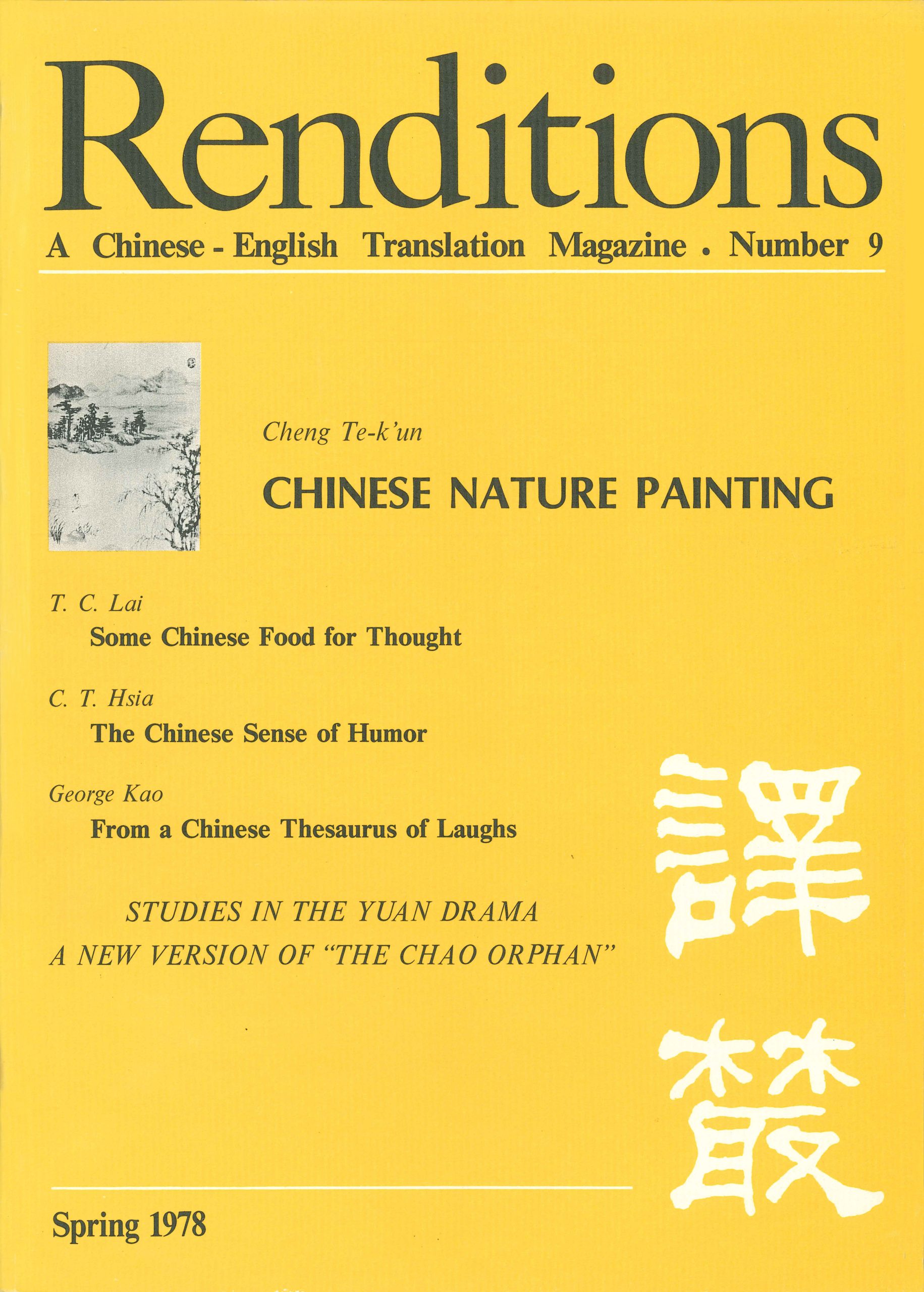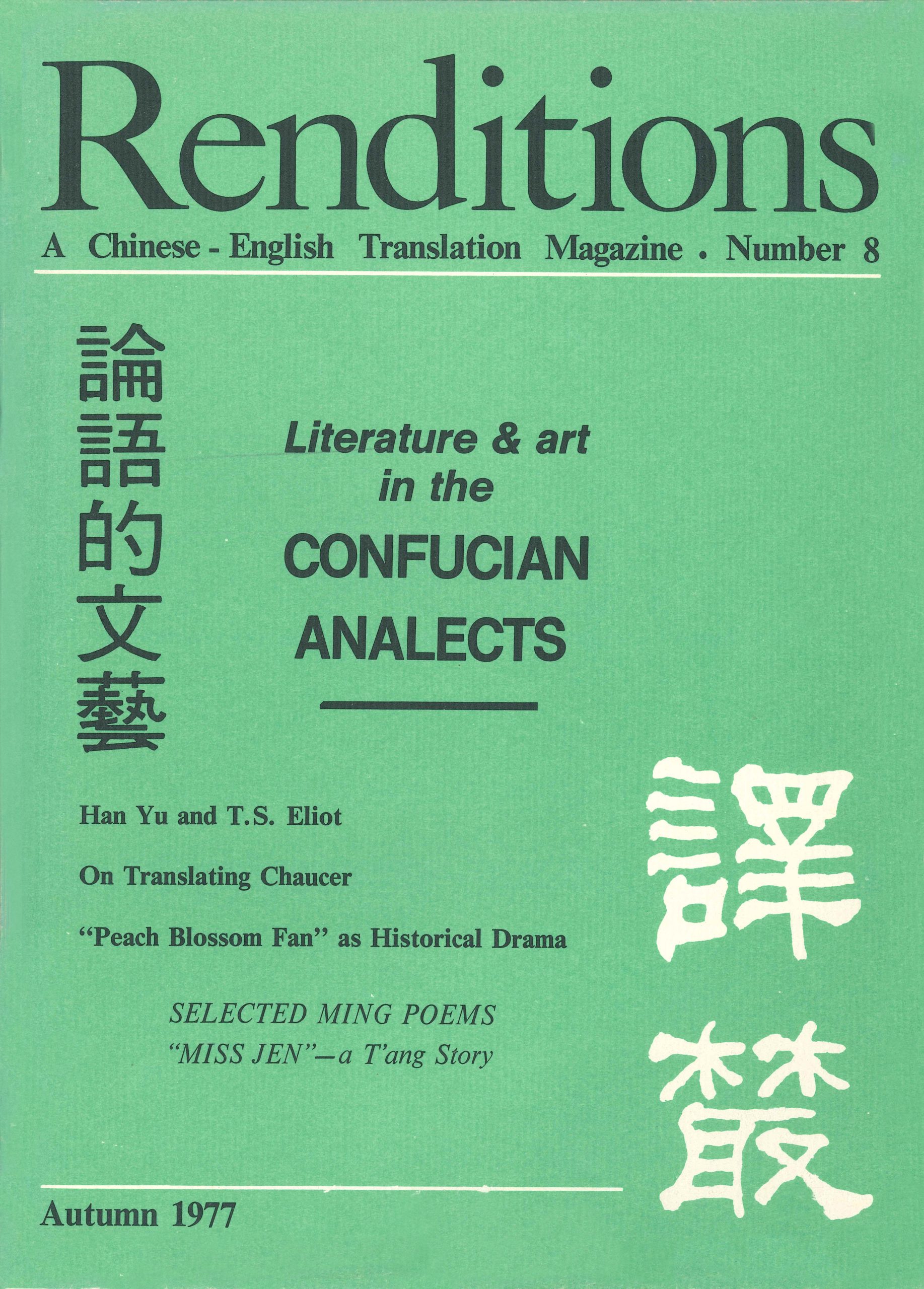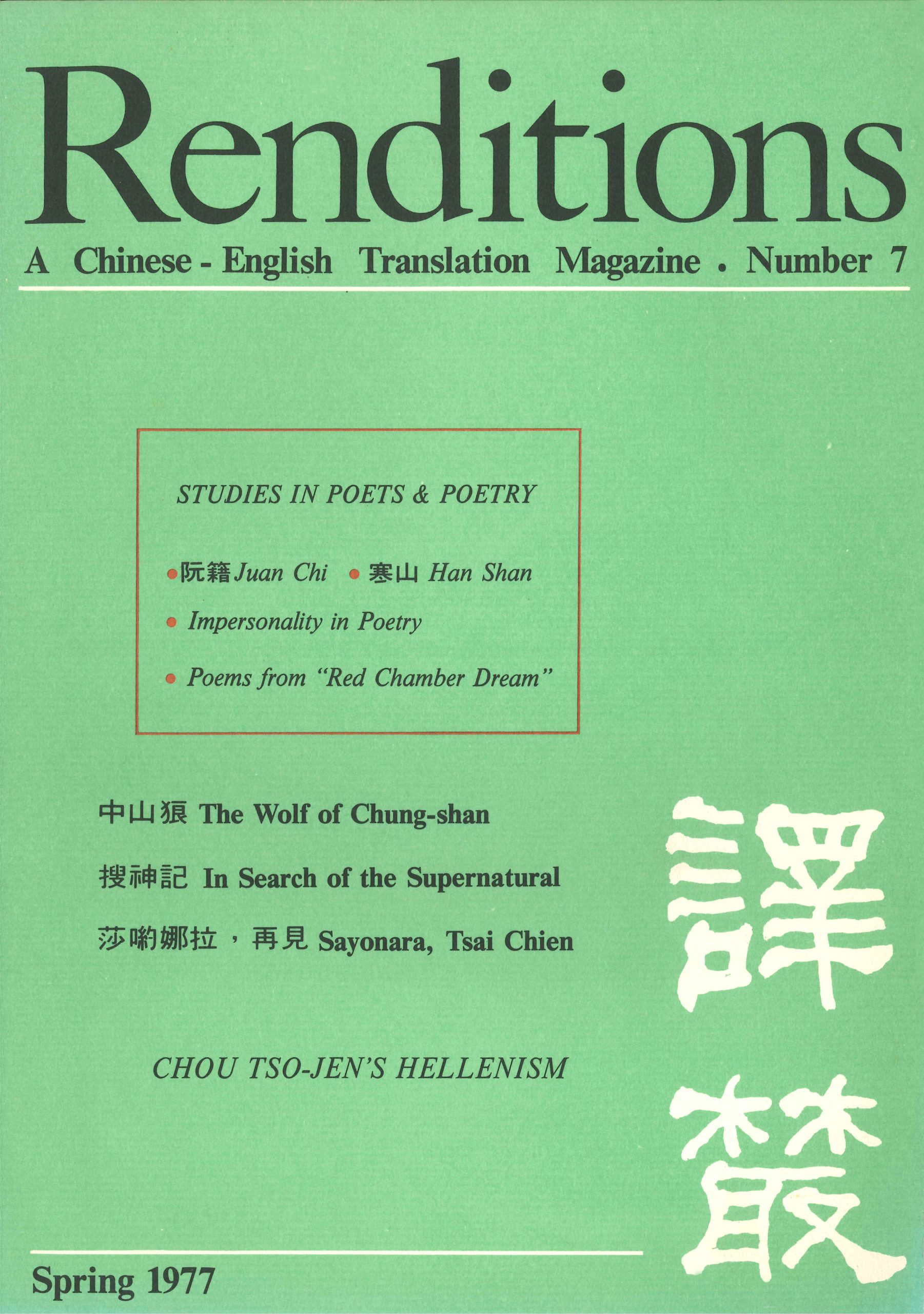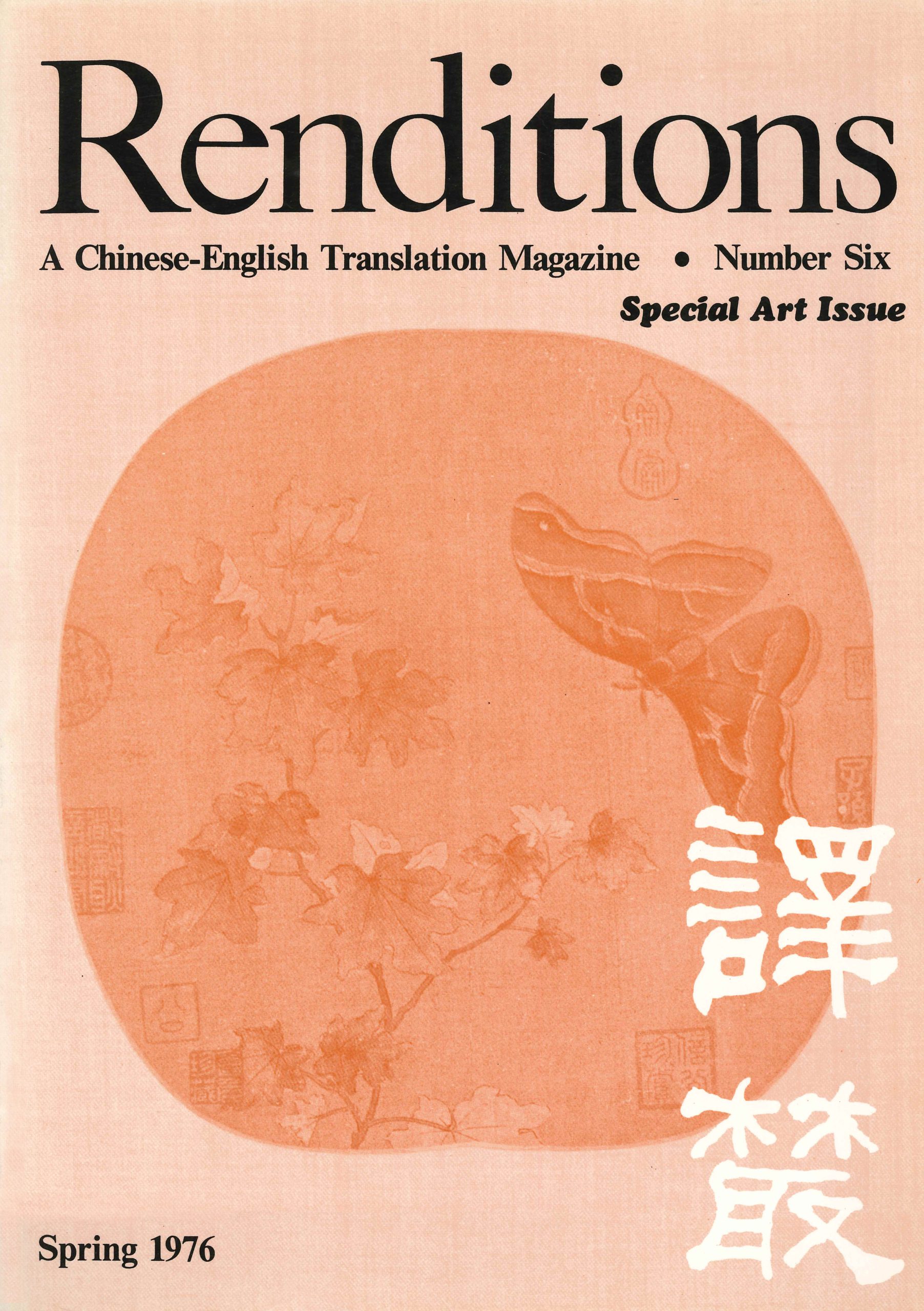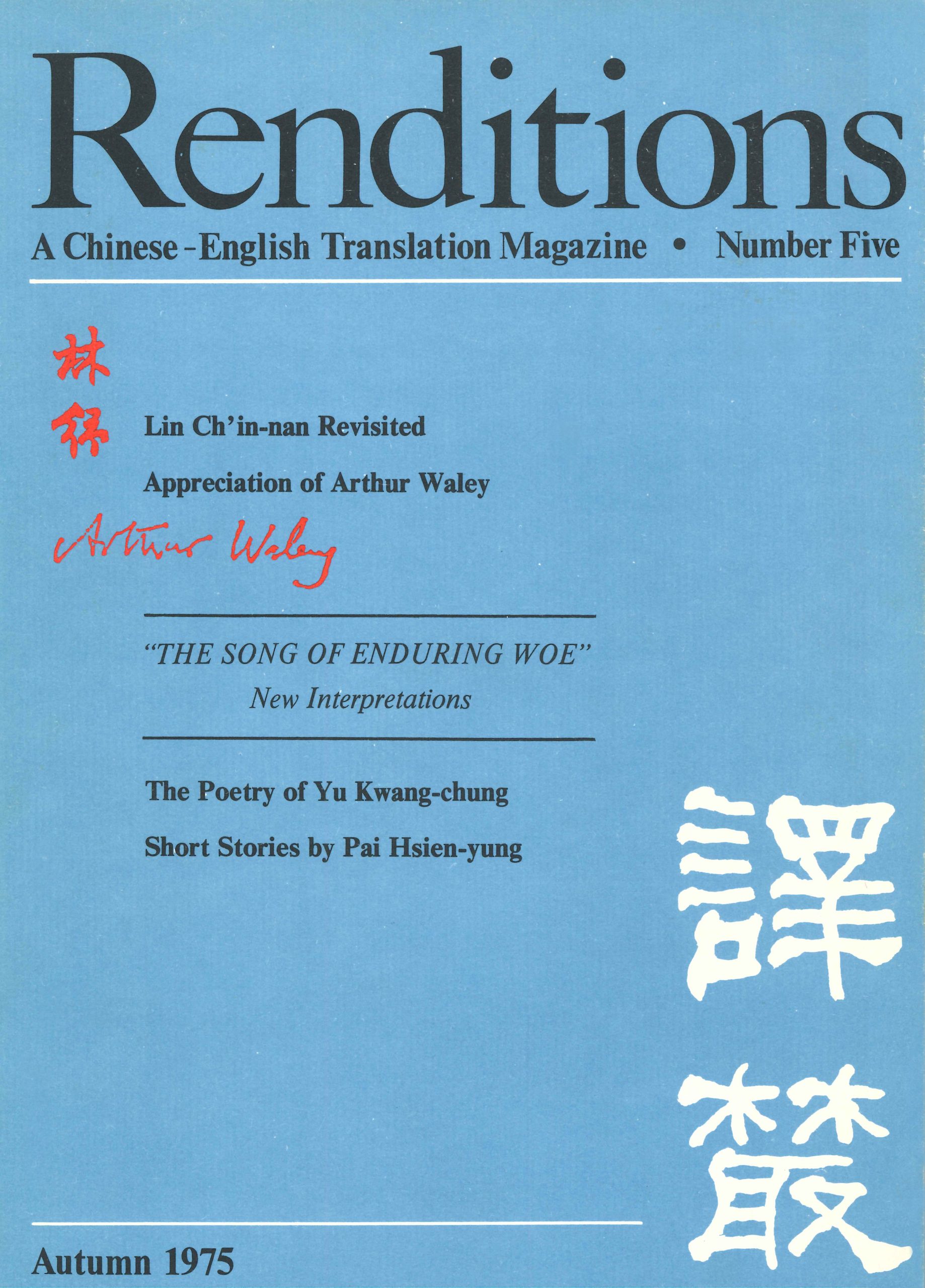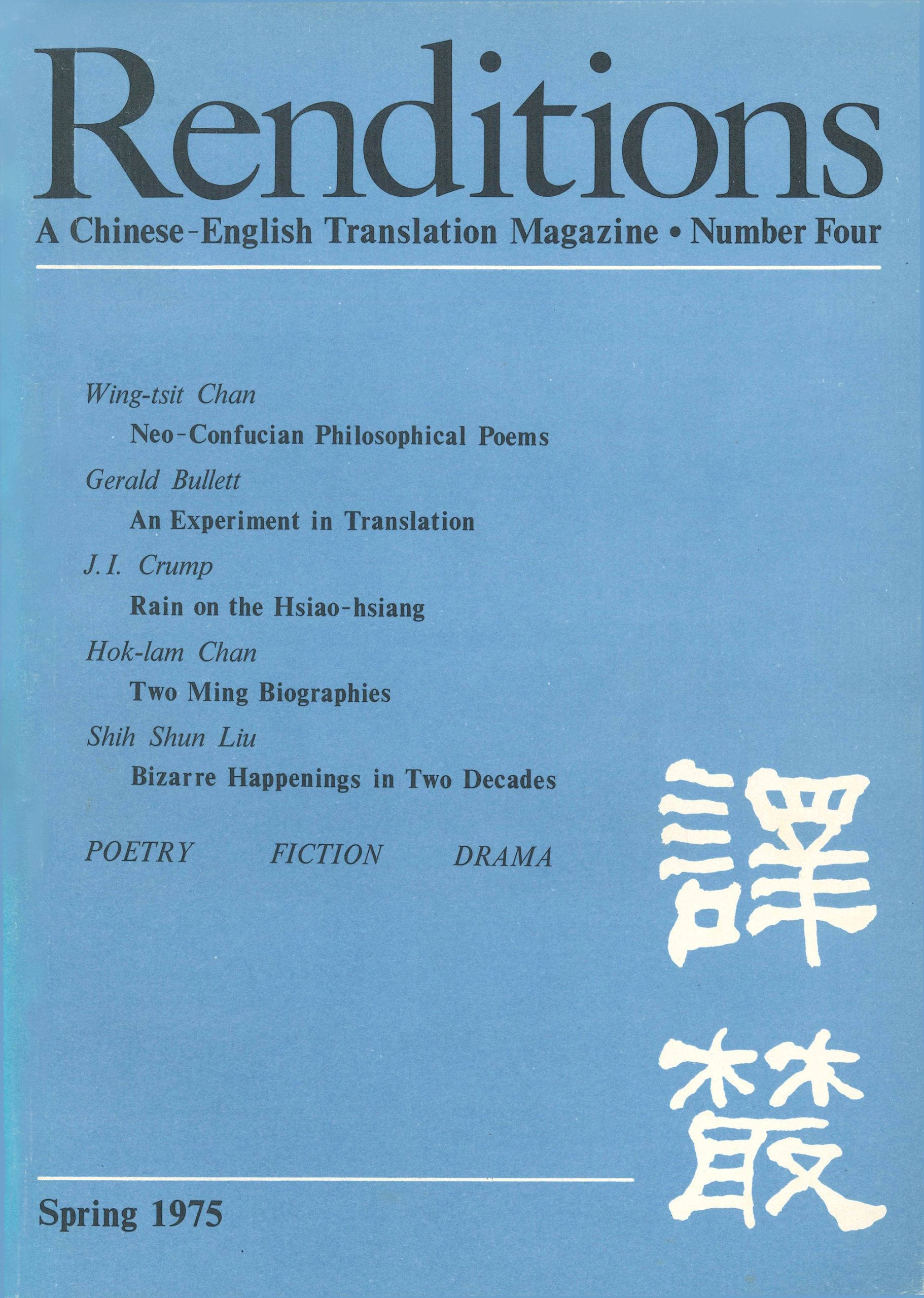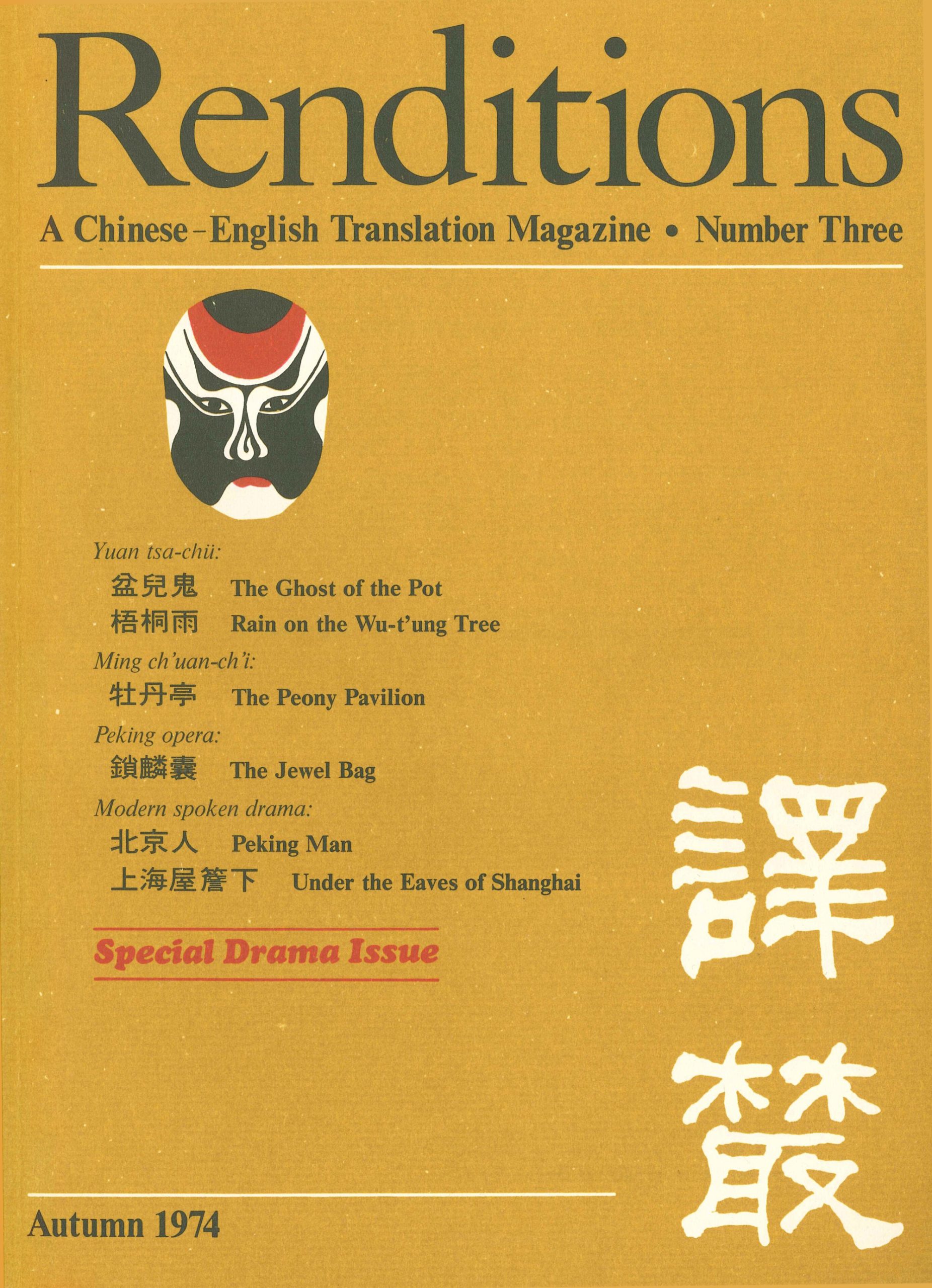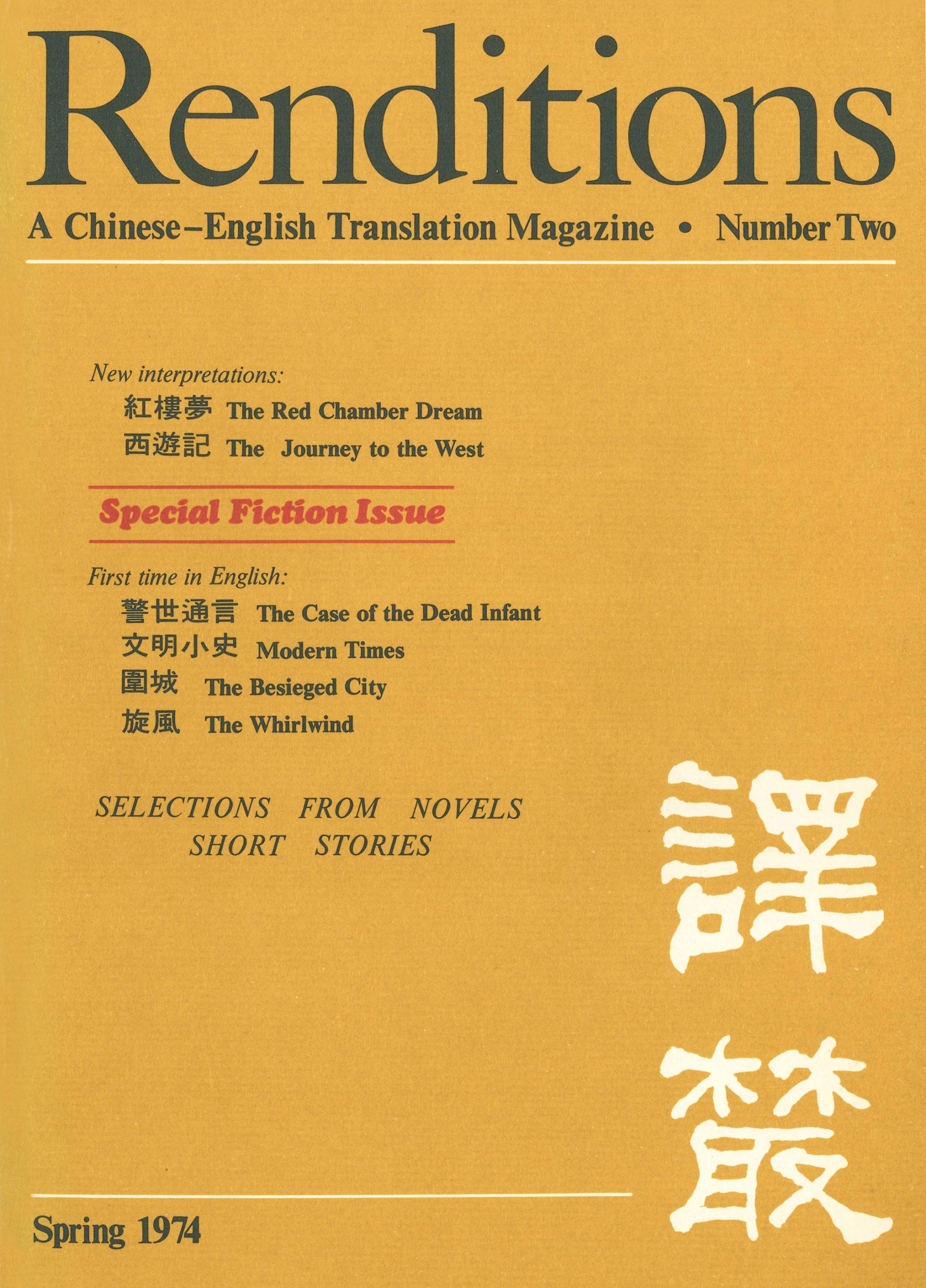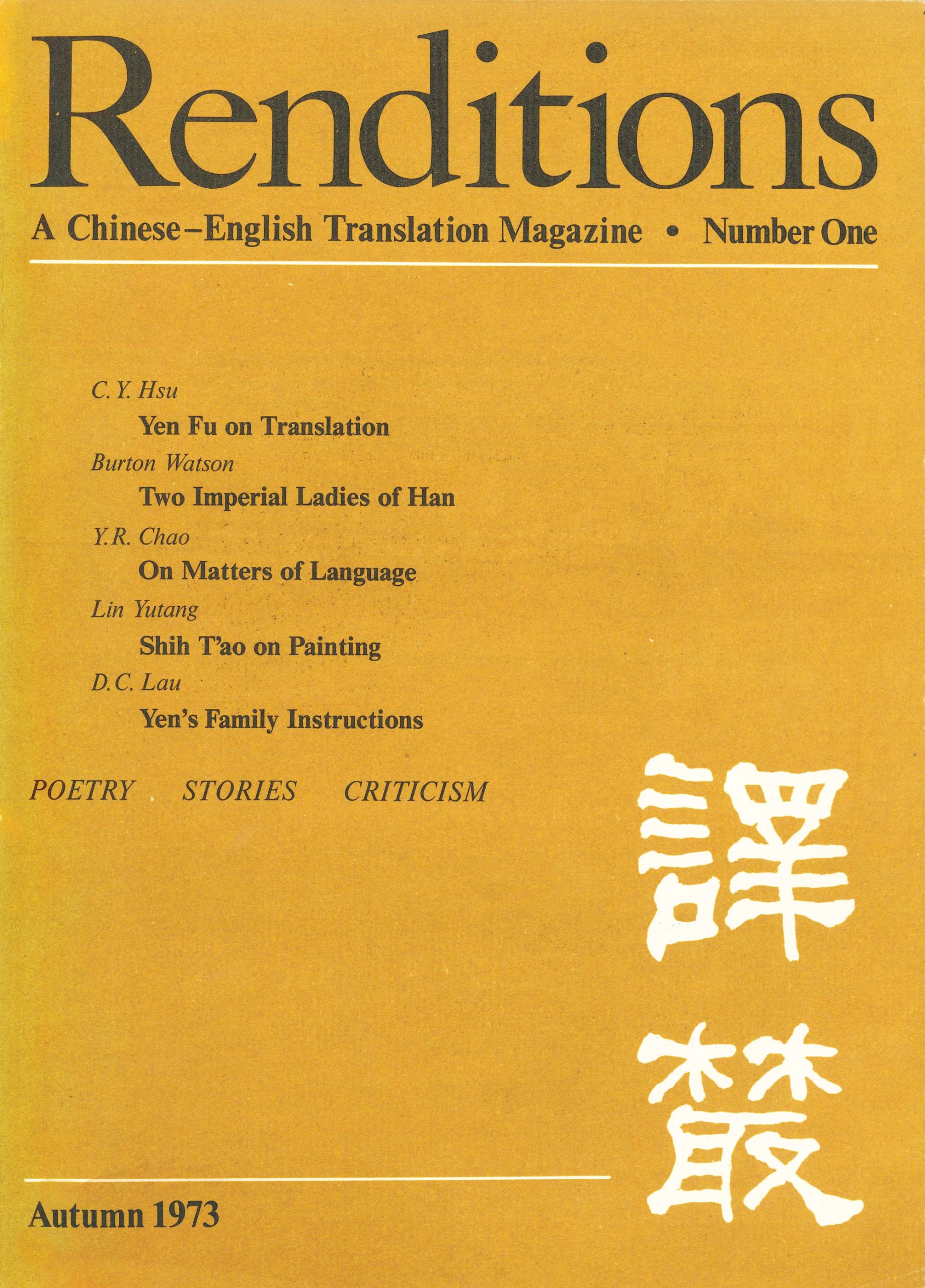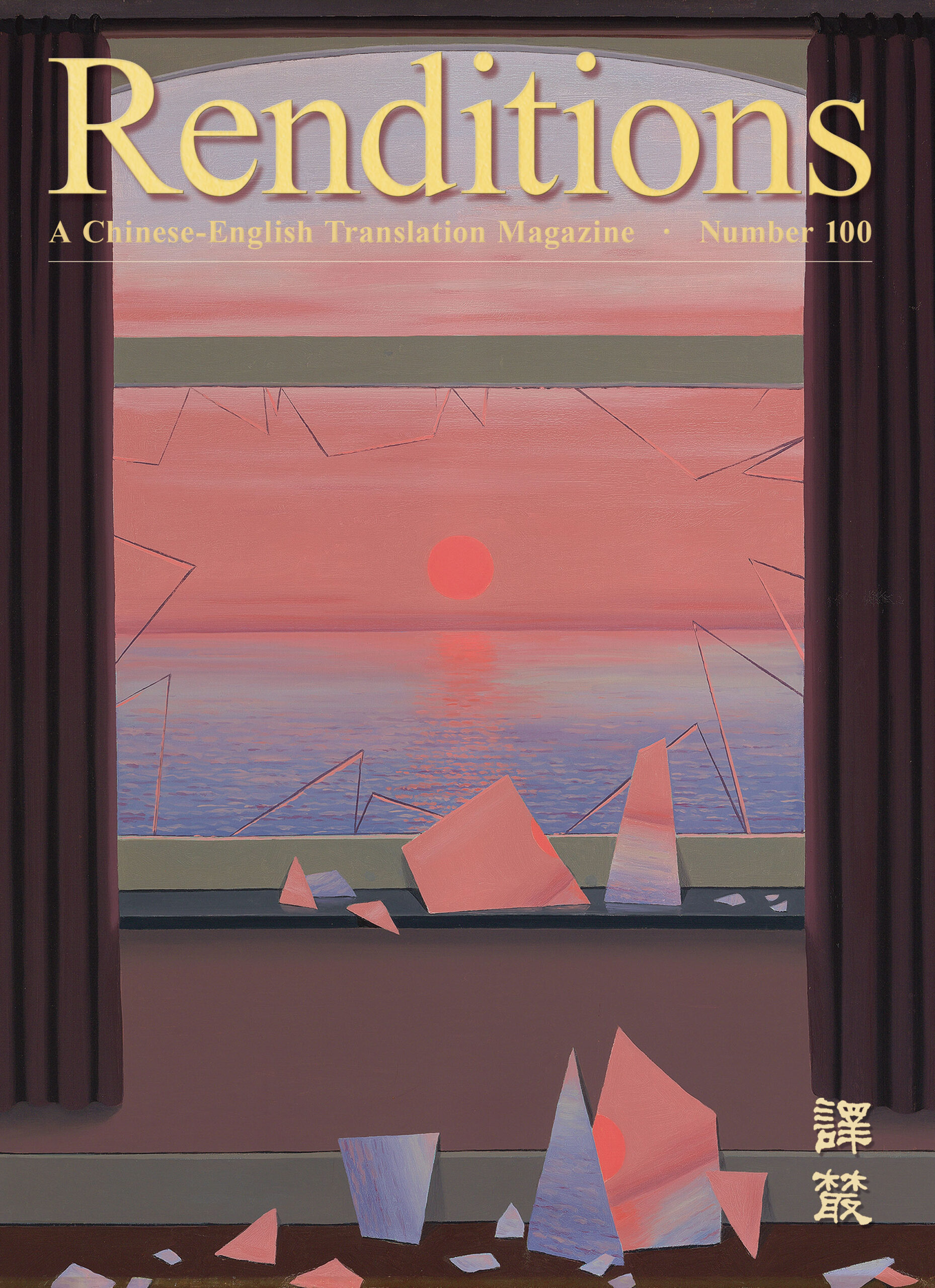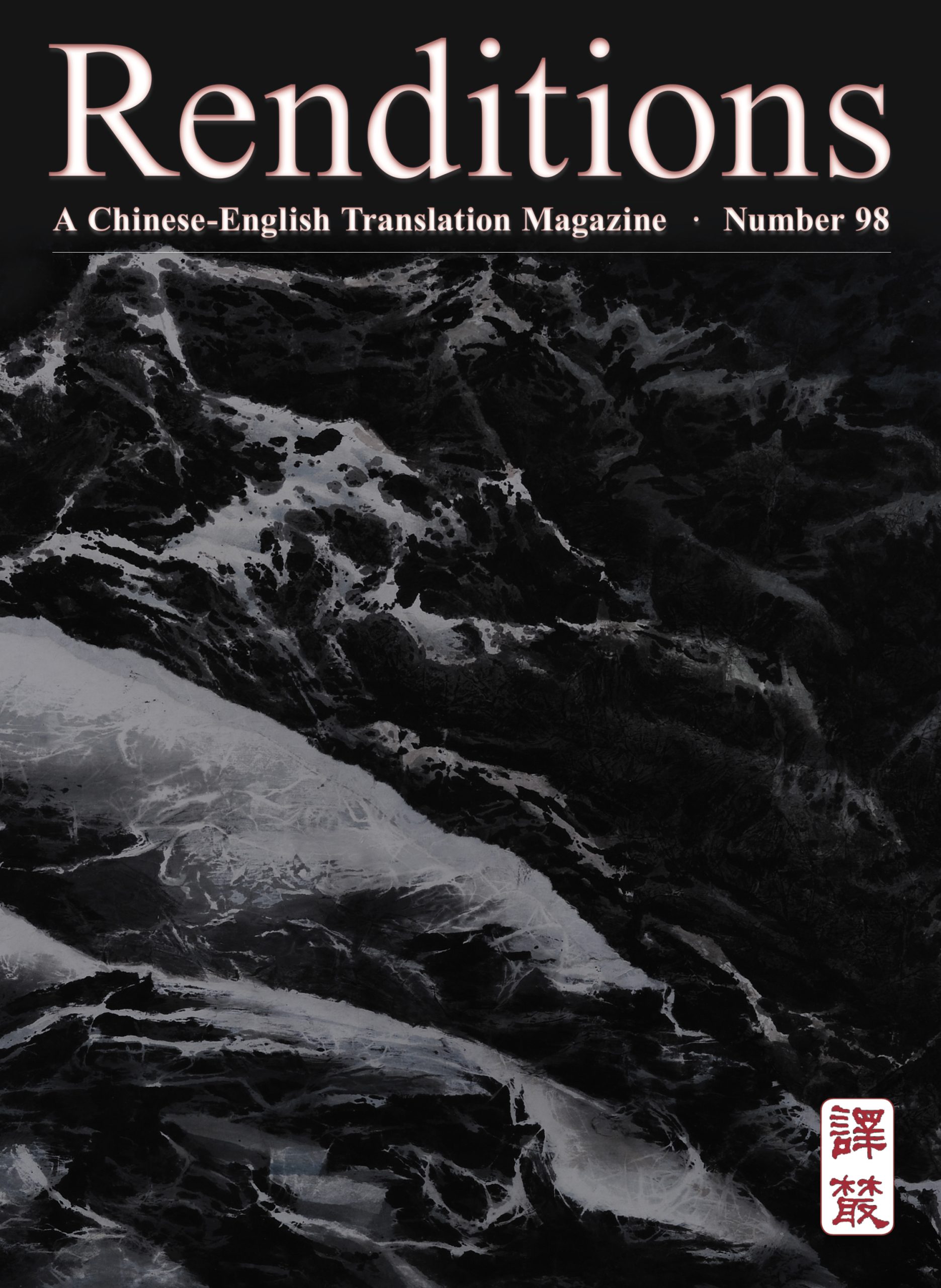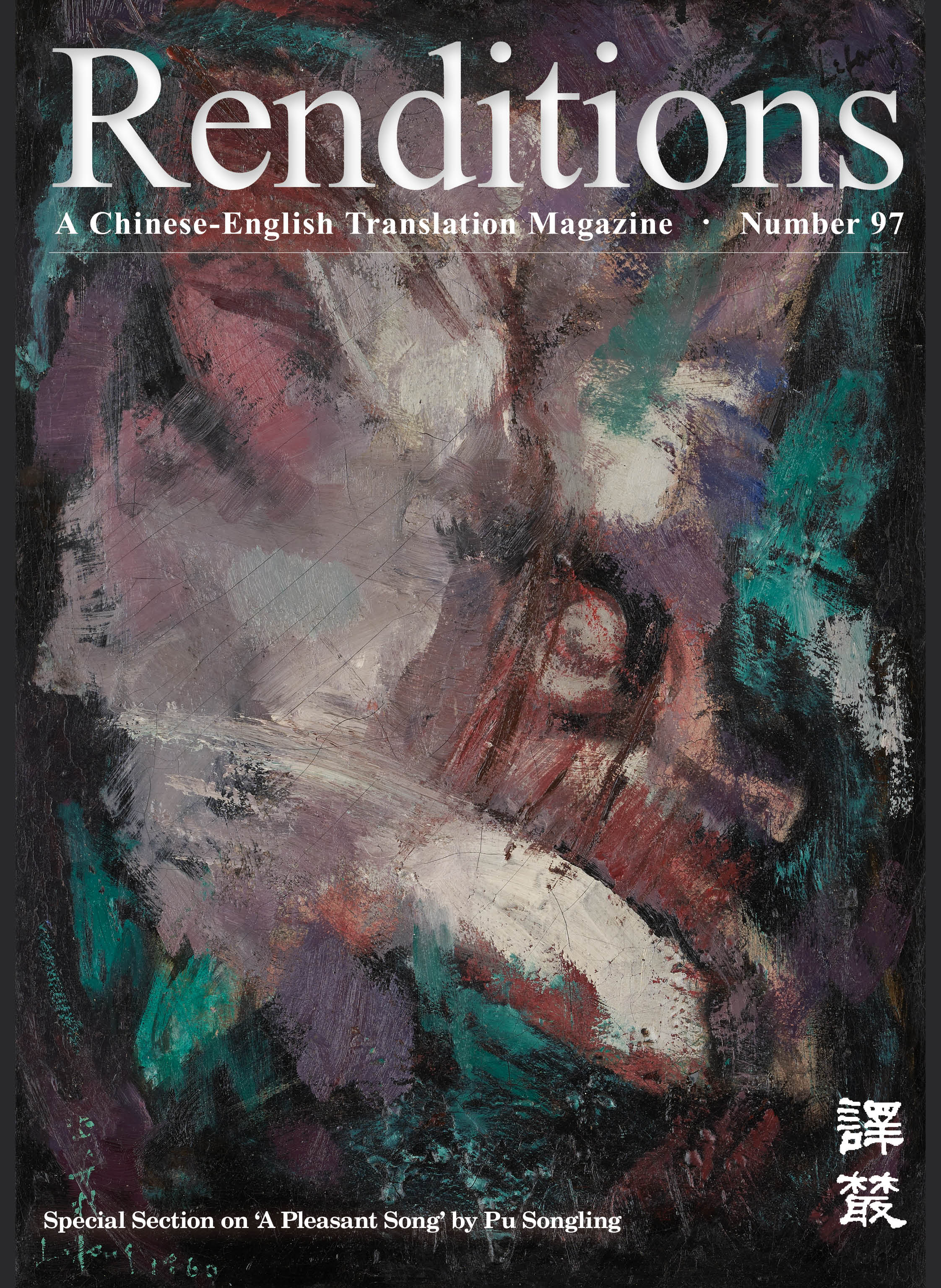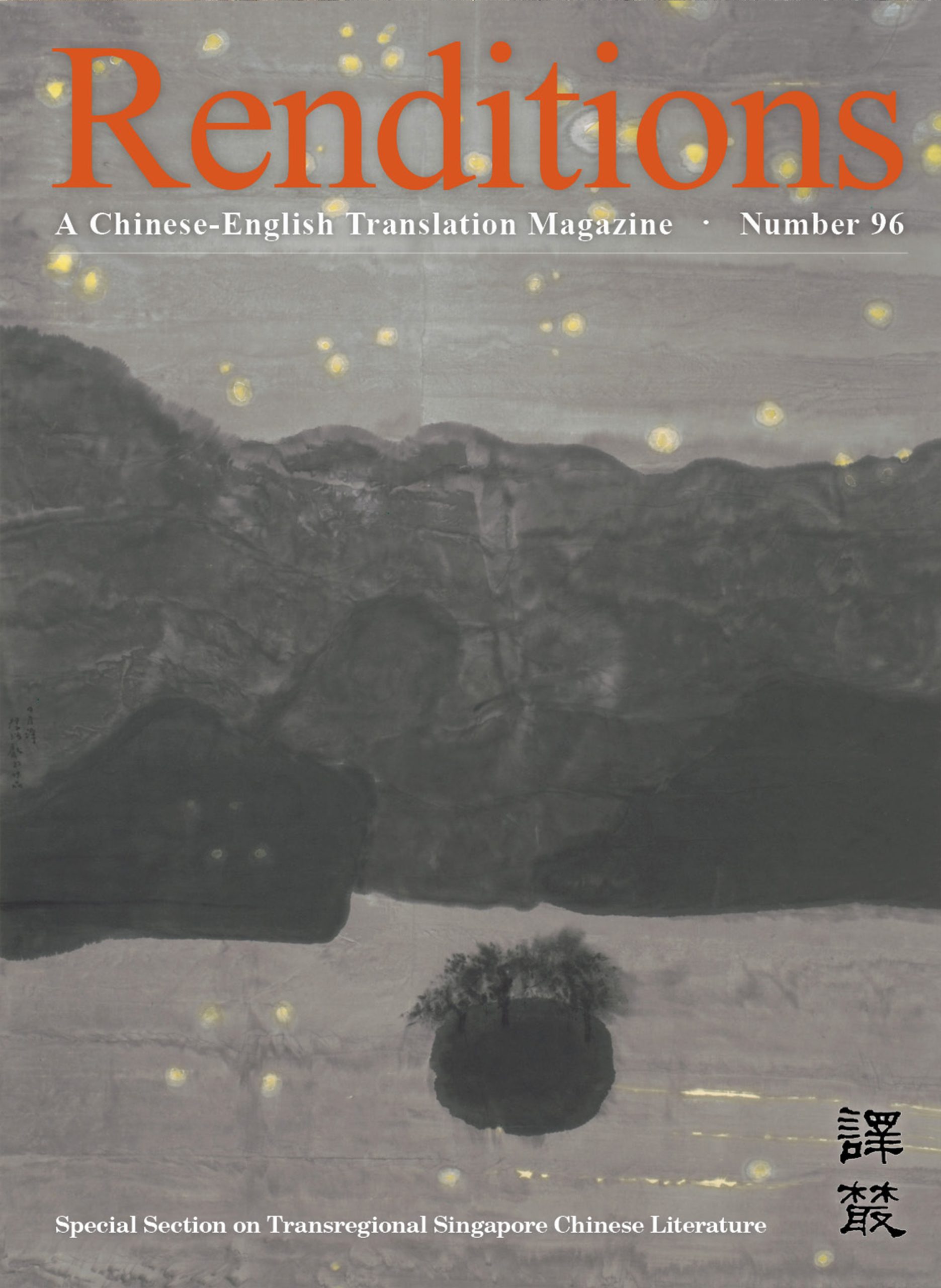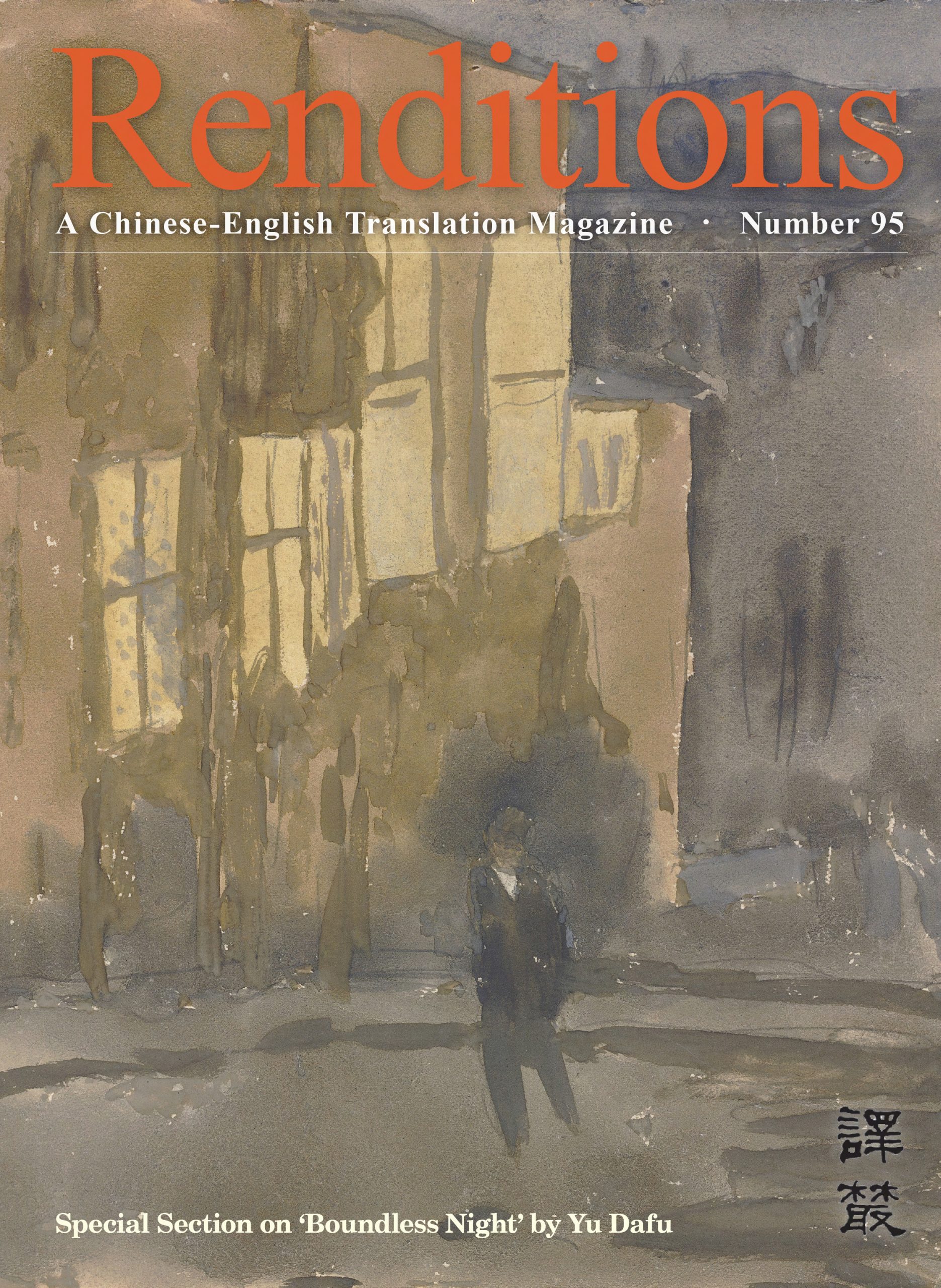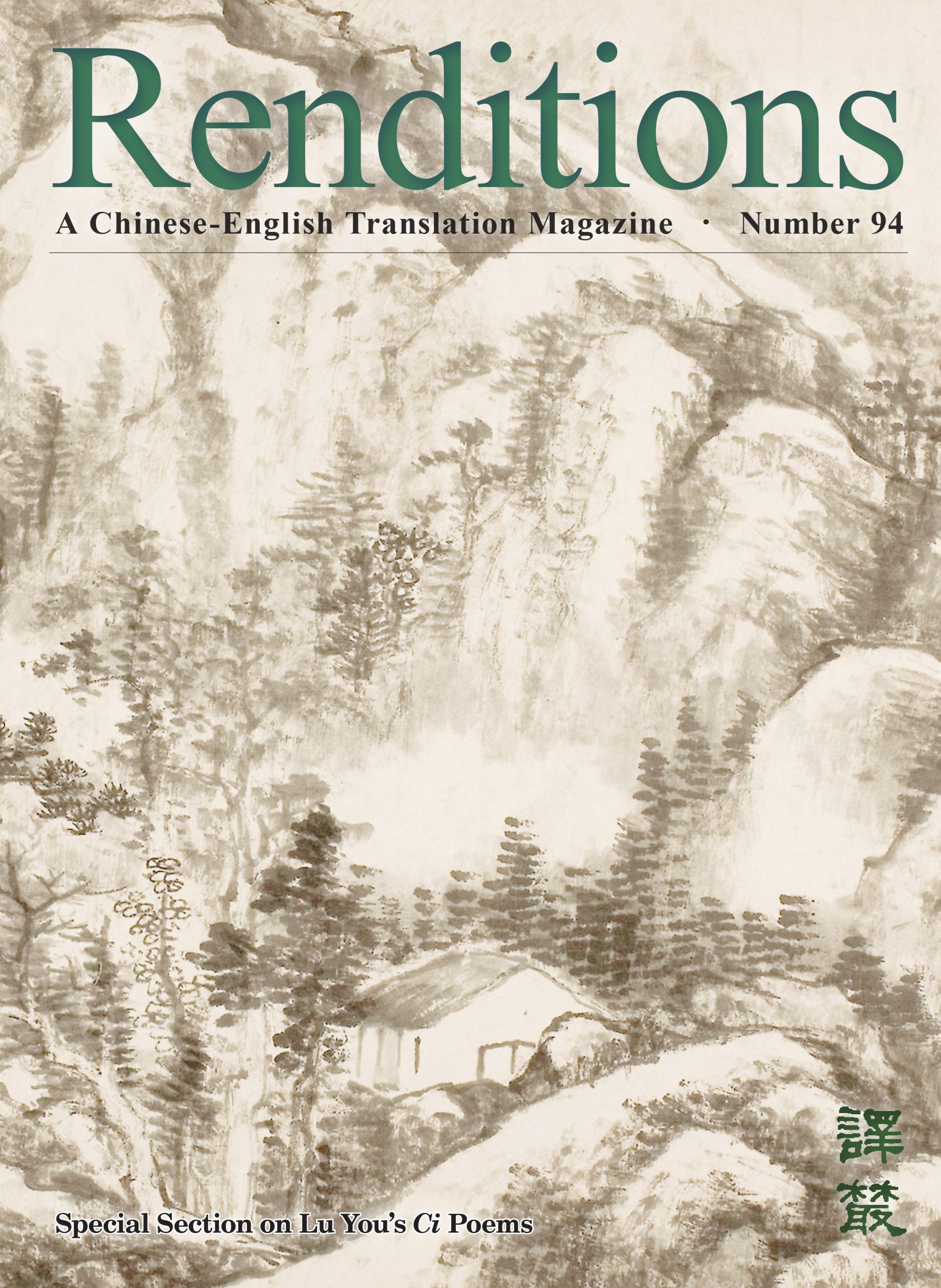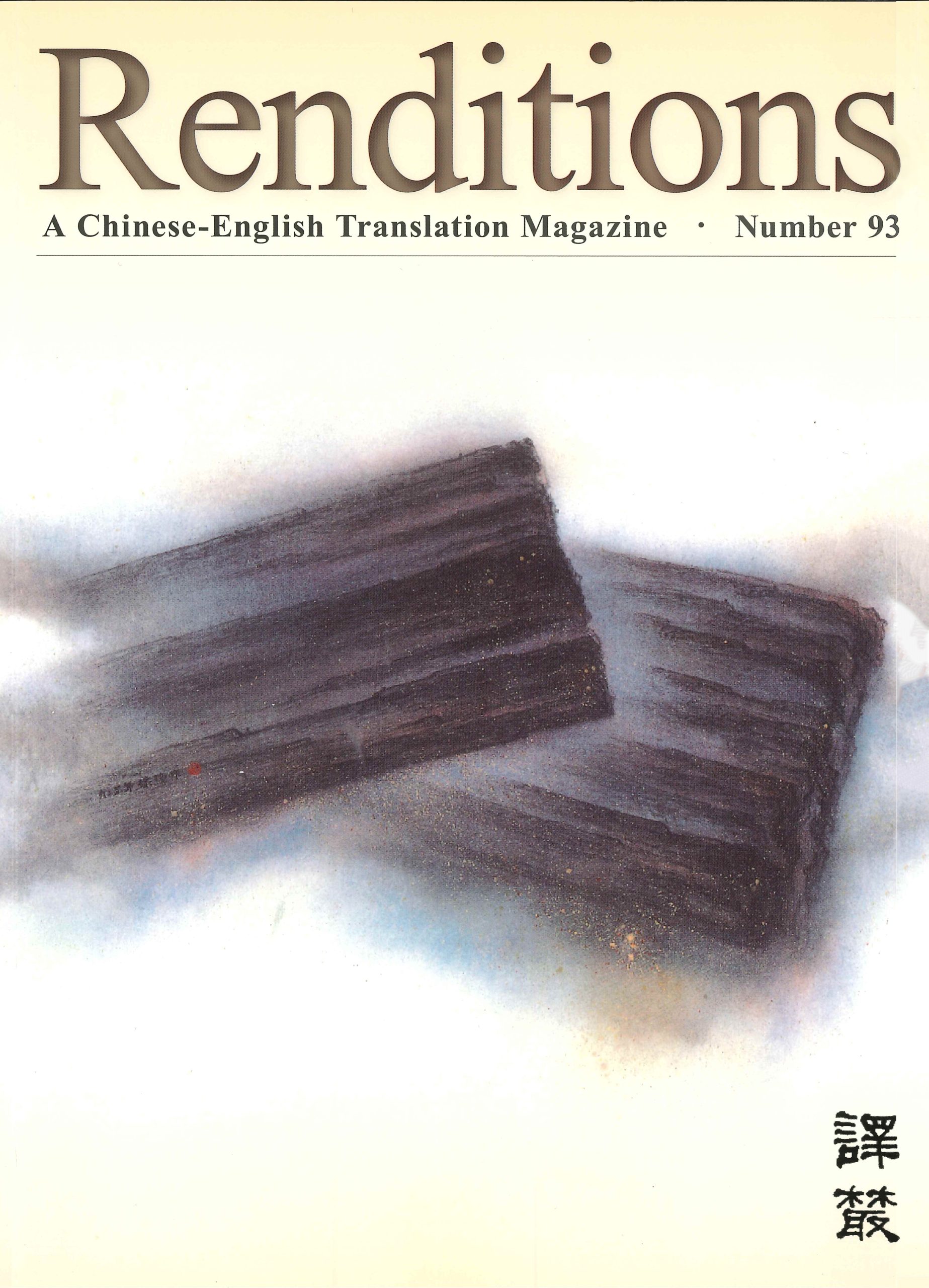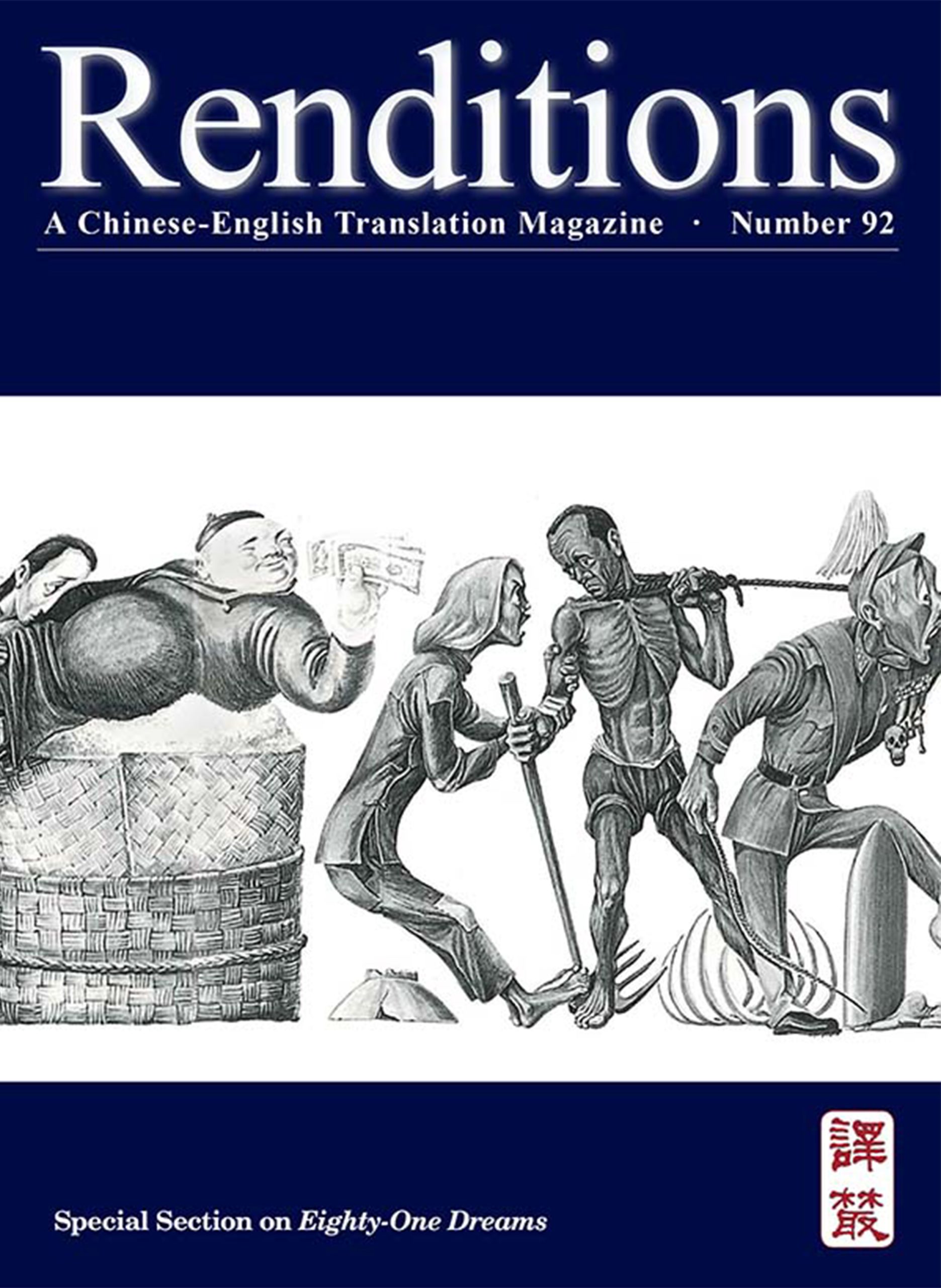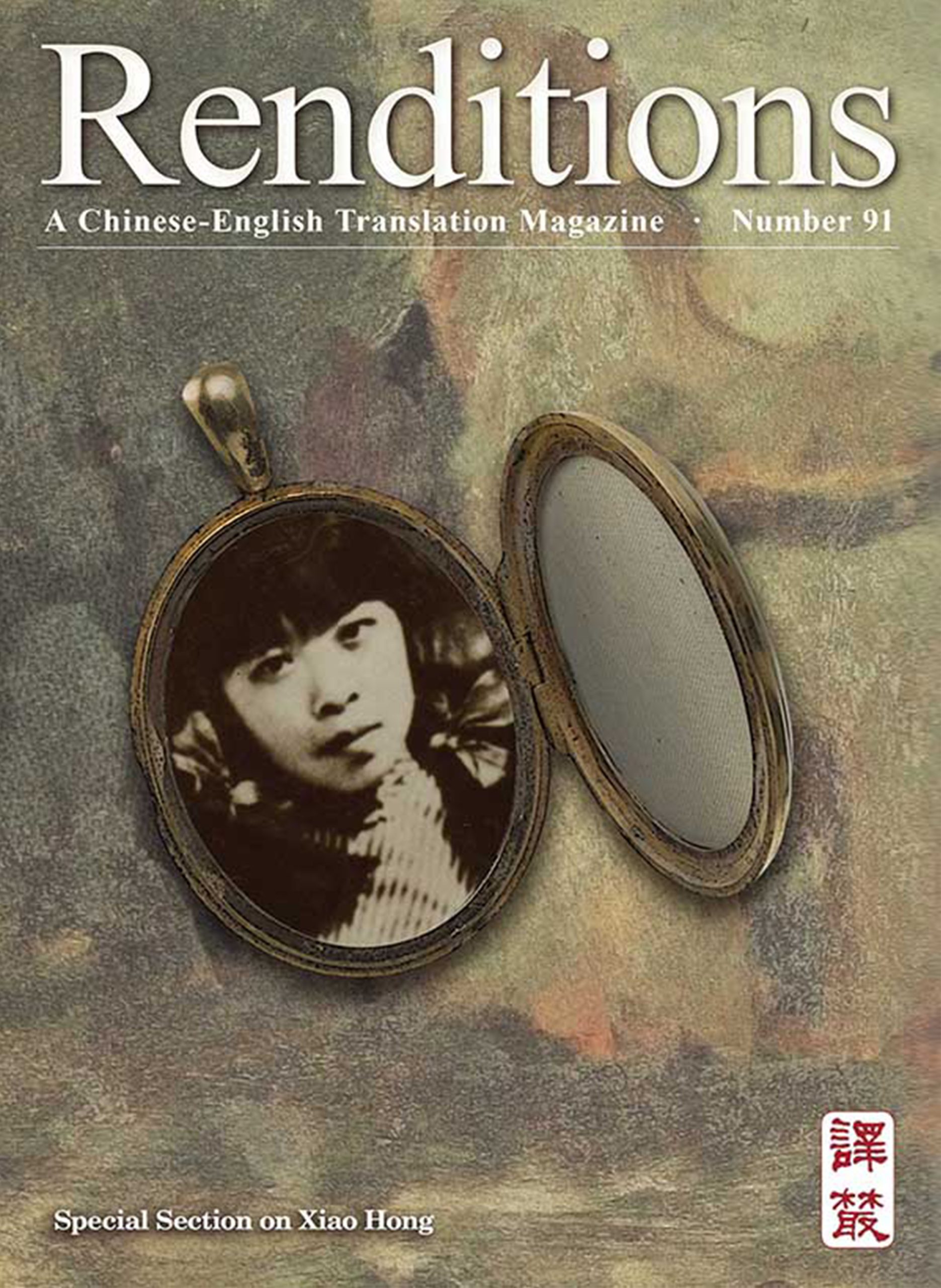Home / Renditions / Publications / Renditions Journal
Renditions Journal
-
Nos. 100–91
-
Nos. 90–81
-
Nos. 80–71
-
Nos. 70–61
-
Nos. 60–51
-
Nos. 50–41
-
Nos. 40–31
-
Nos. 30–21
-
Nos. 20–11
-
Nos. 10–01
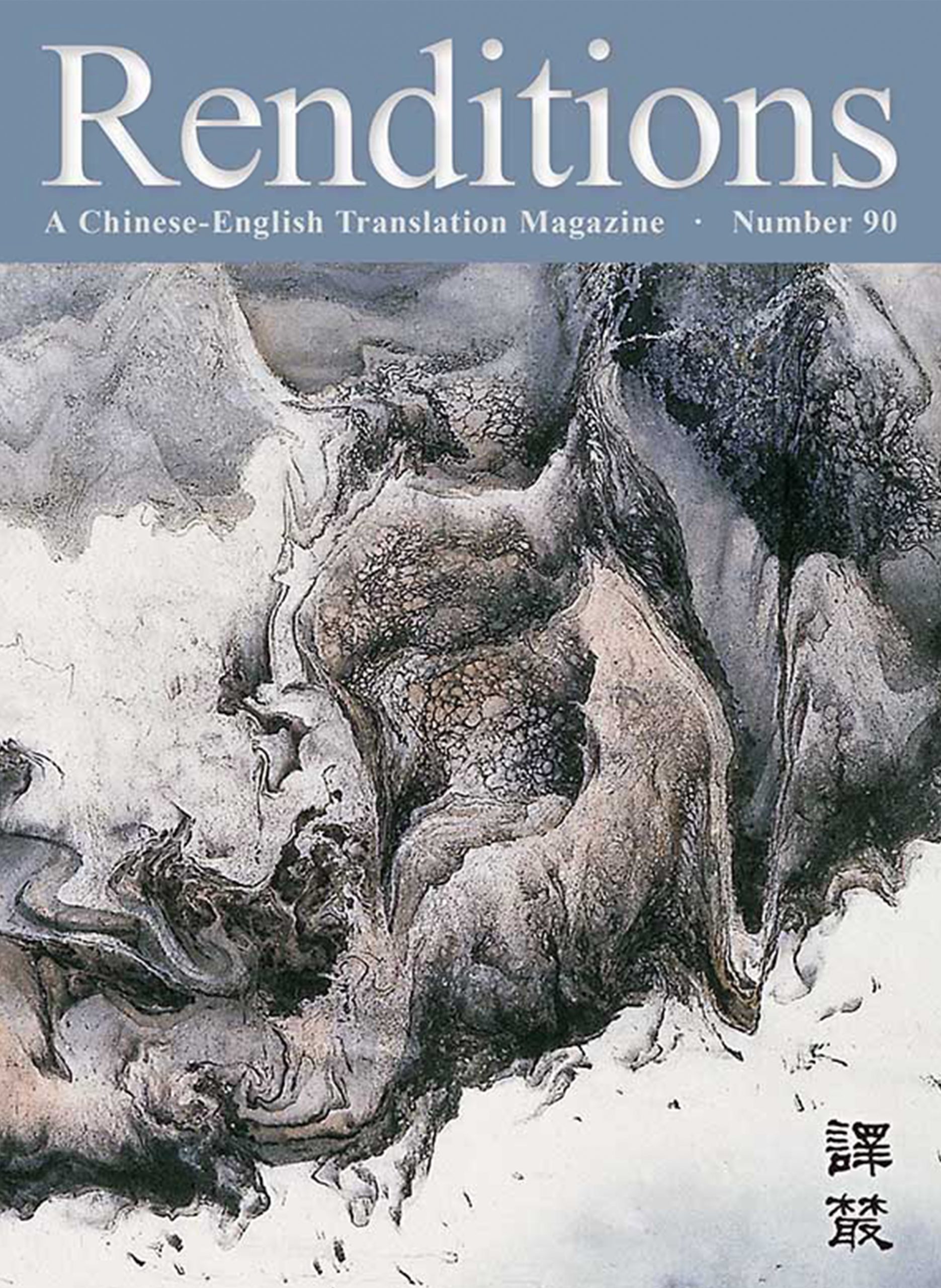
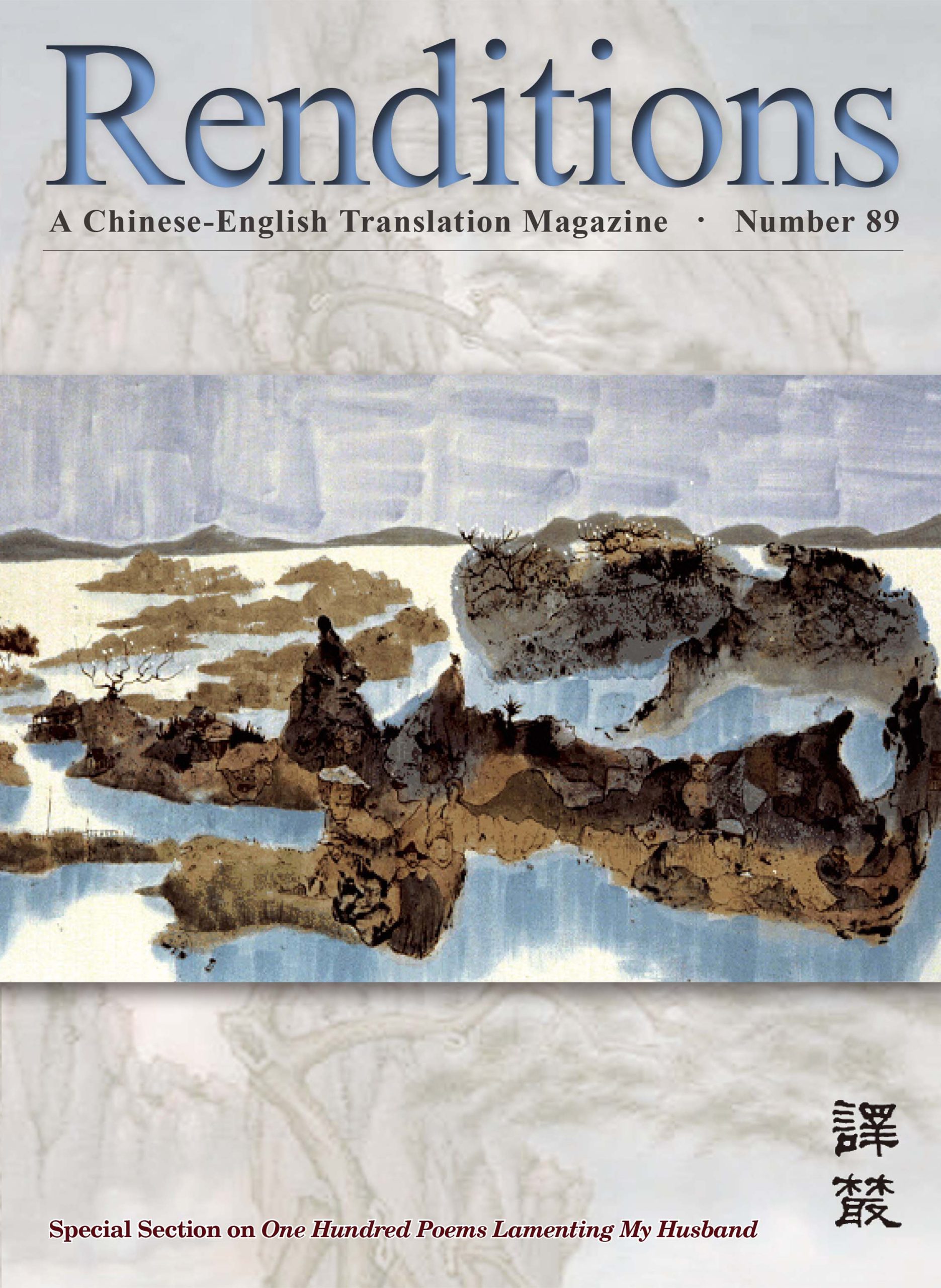
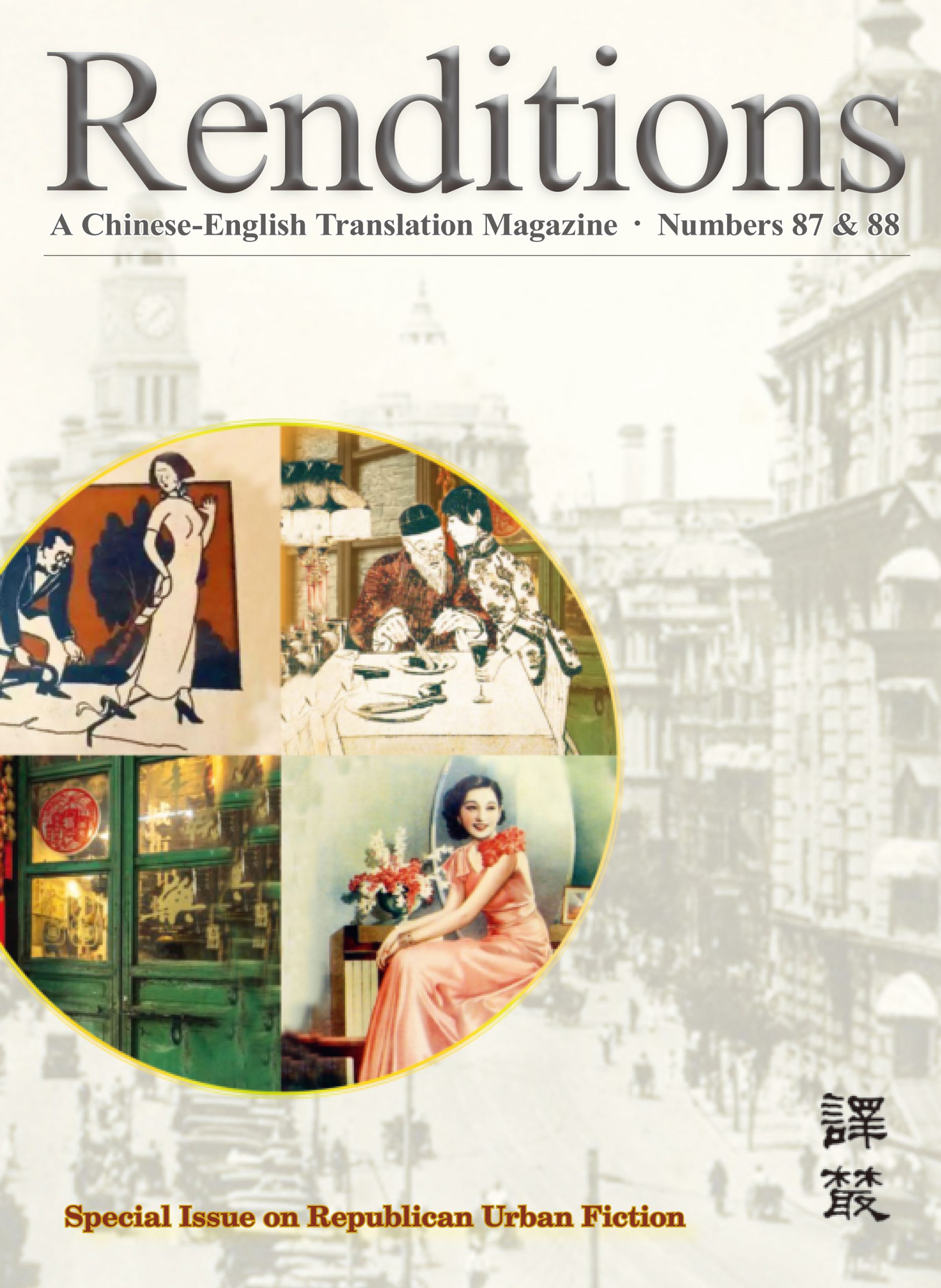
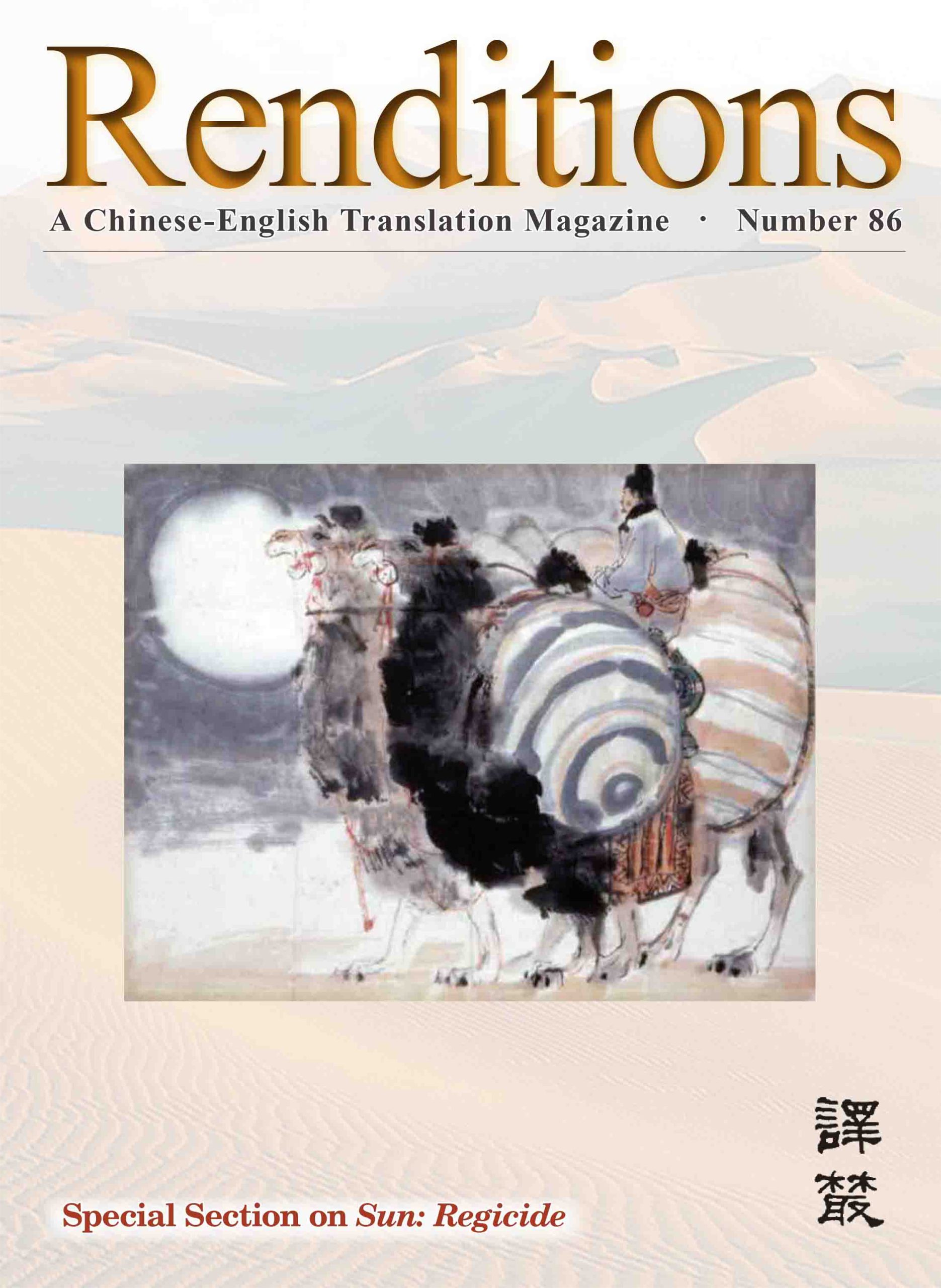
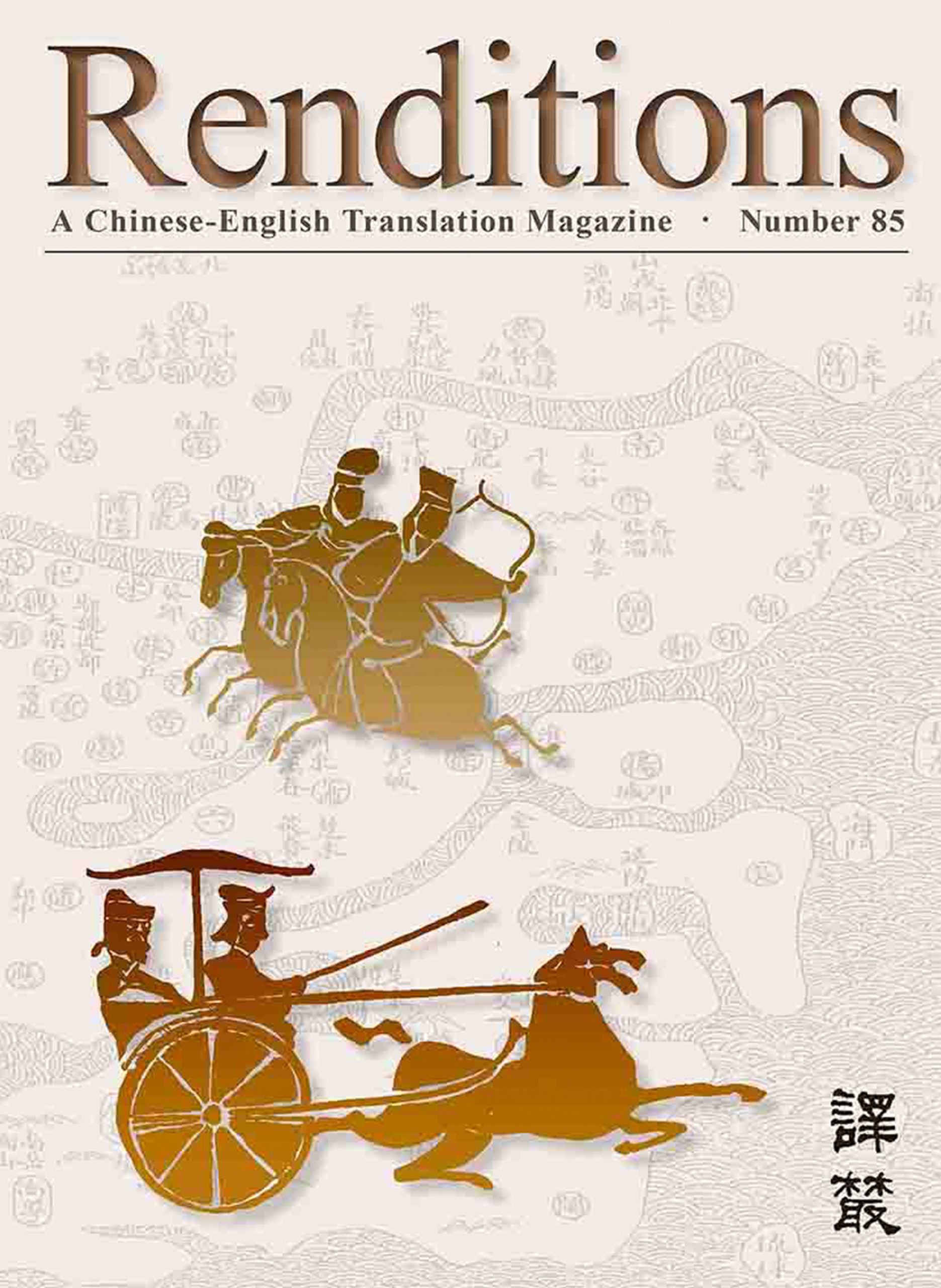
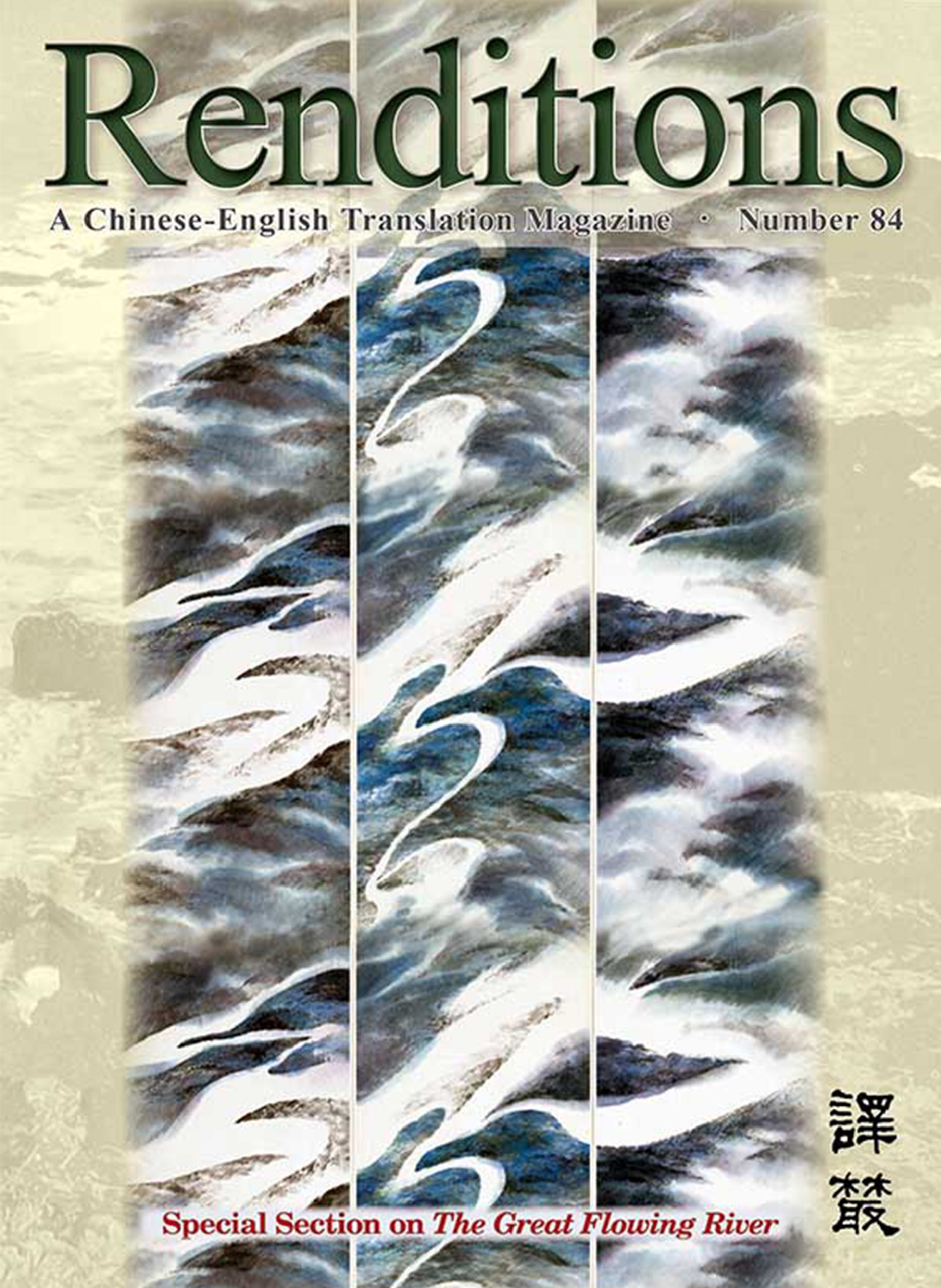
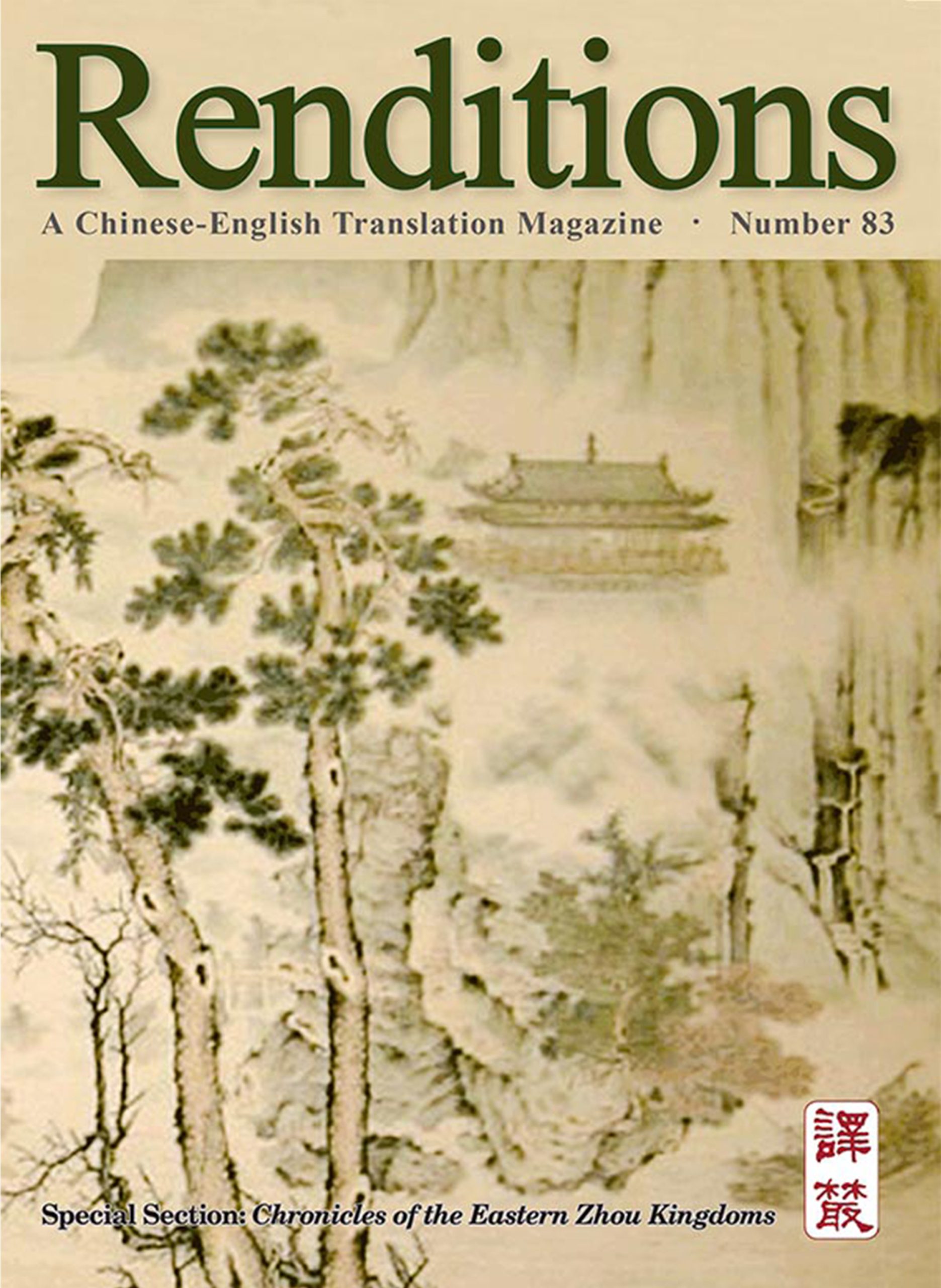
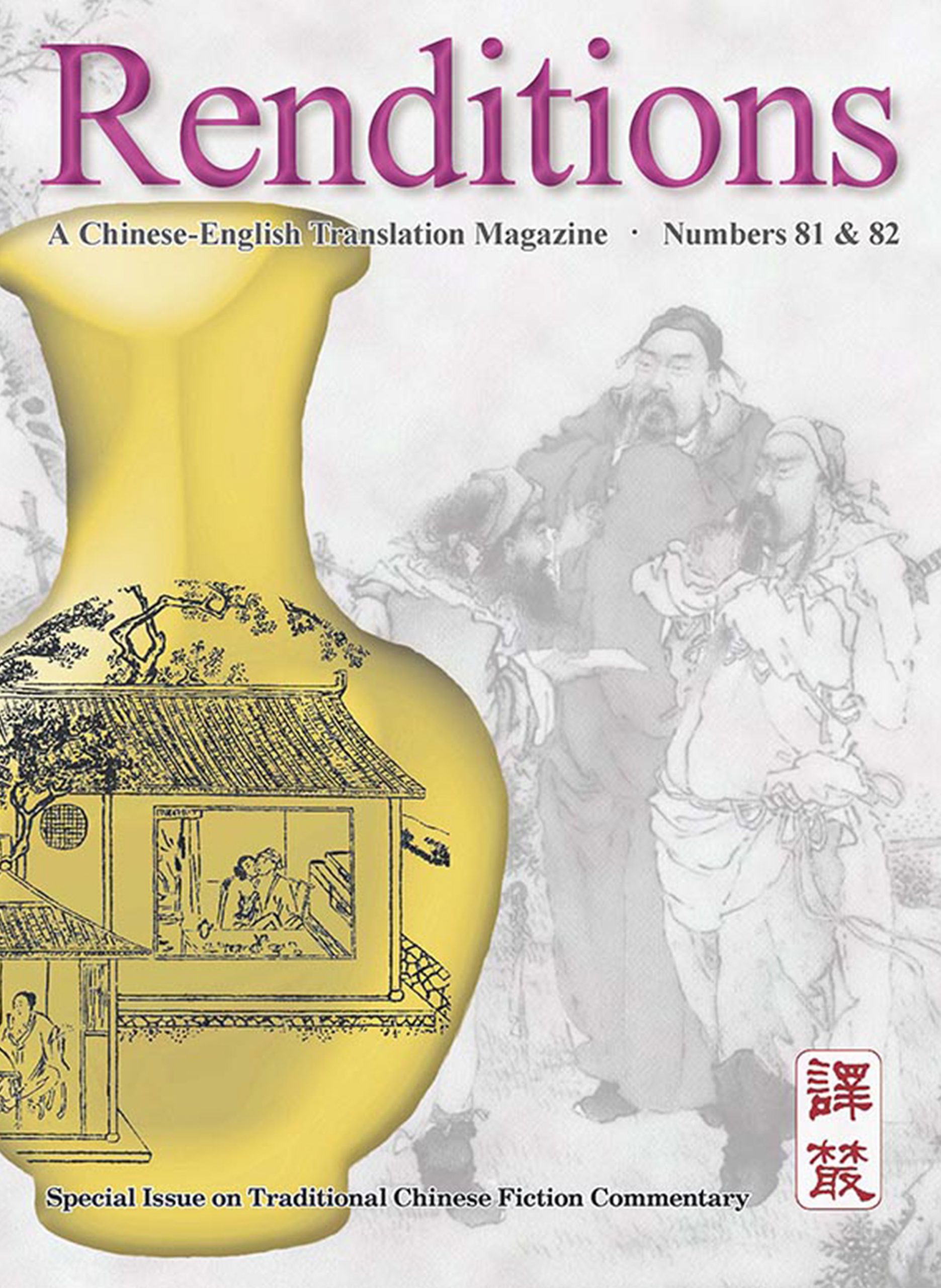
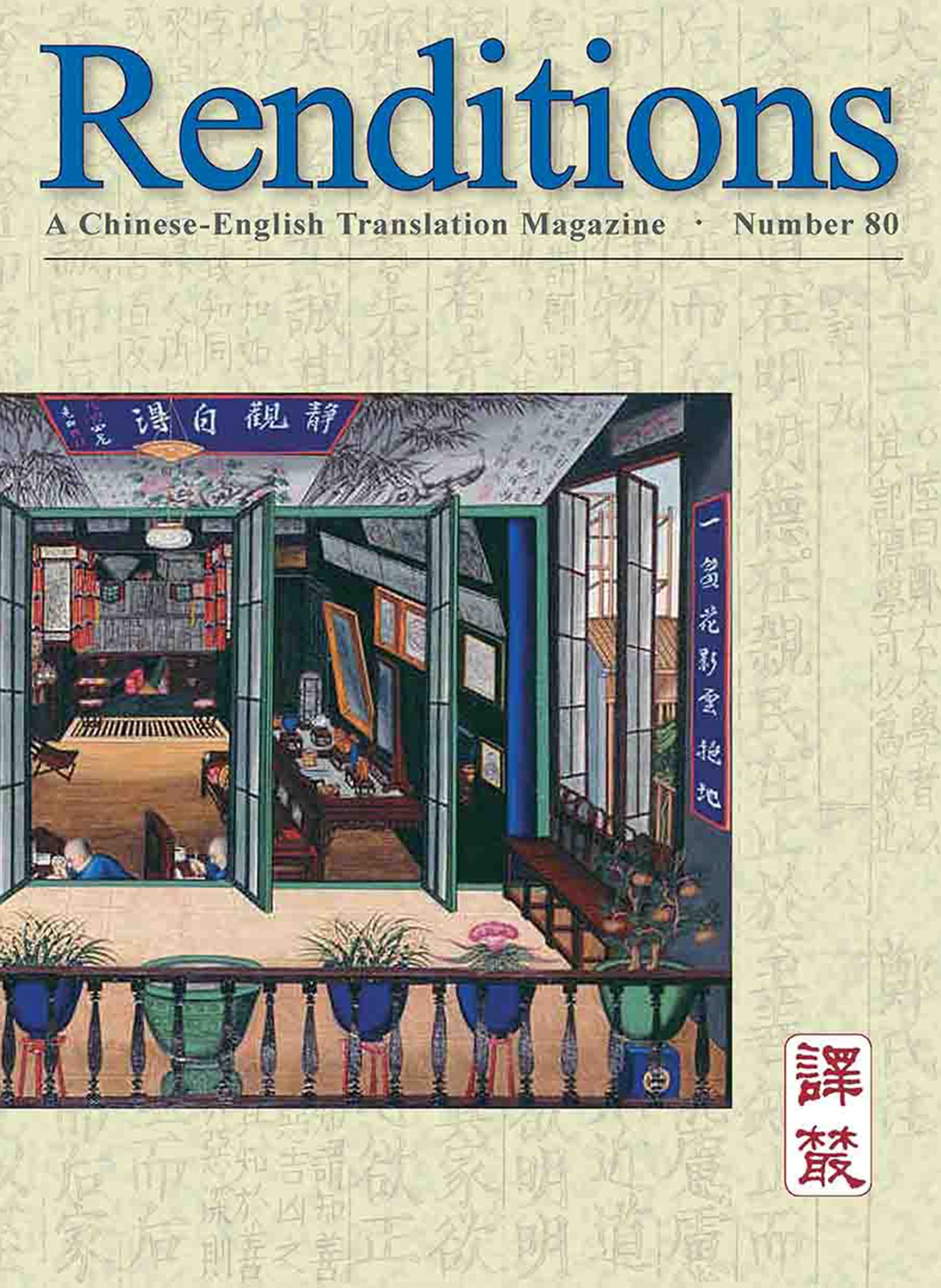
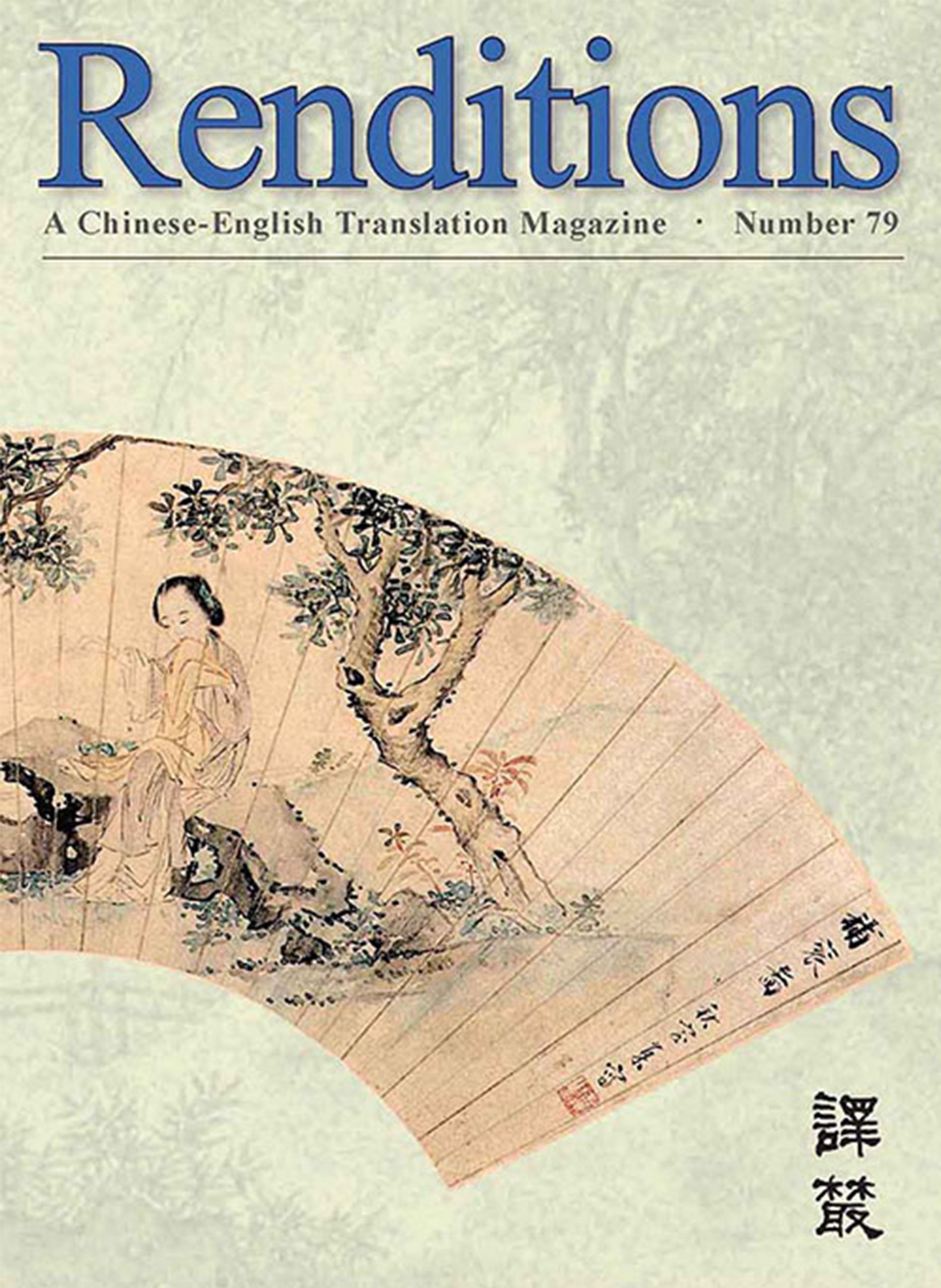
This issue showcases representative work of Chinese science fiction from the late Qing and the contemporary. As a popular genre, science fiction has energized modern Chinese literature by evoking a whole array of sensations ranging from the grotesque to the sublime, from the Utopian to the apocalyptic, and from the human to the post-human. It mingles nationalism with fantasy, envelopes politics in scientific discourse, and delivers sharp social criticism with an acute awareness of probabilities and possibilities. Science fiction today both echoes and complicates the late Qing writers' vision of China's future and the transformation of our species and universe, and this special issue aims to contextualize a comparative reading of some important Sci fi writings from these two epochs and the similar expectations and anxieties they bring to Chinese readers.
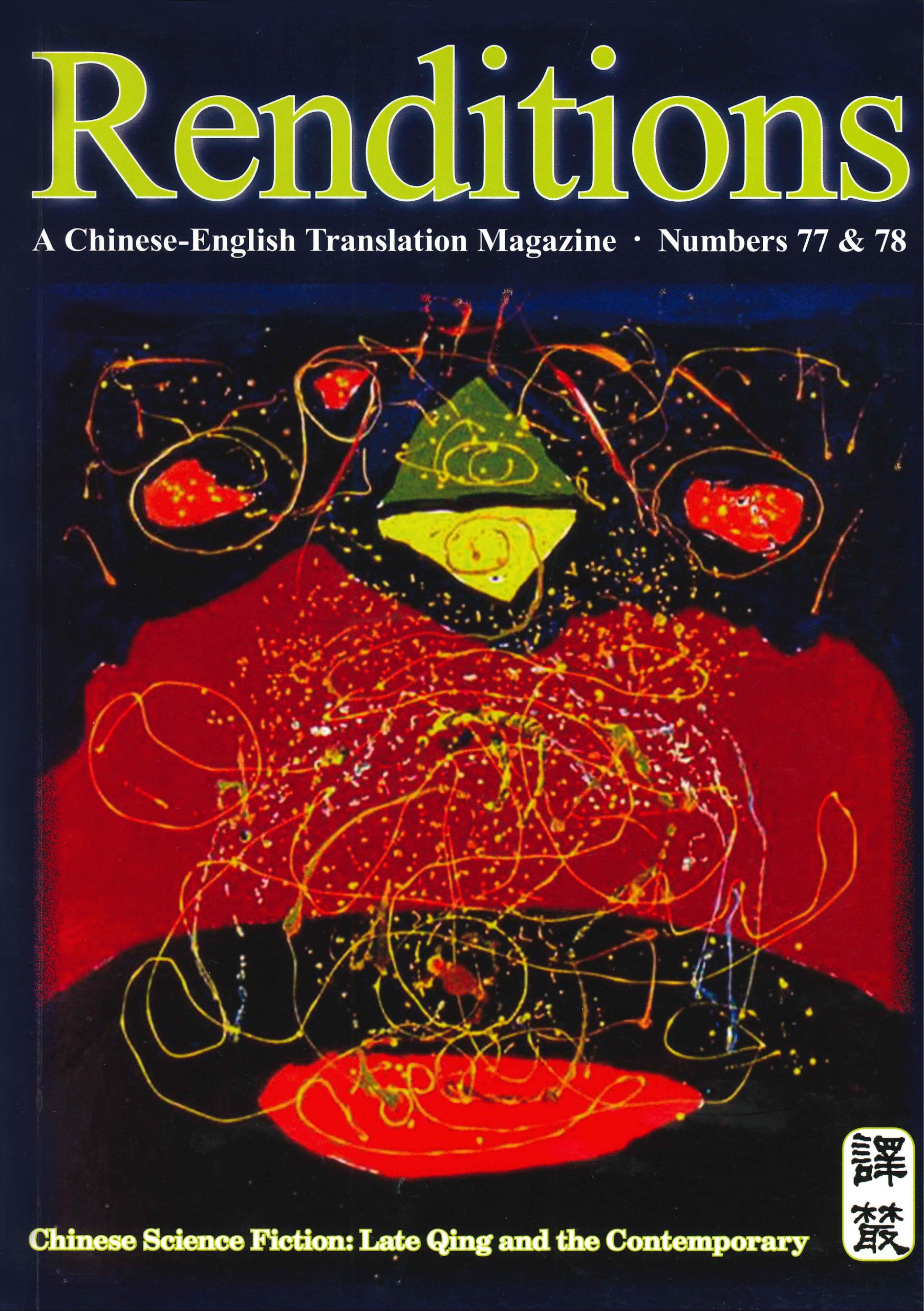
In celebration of Yang Jiang's centenary year, this special issue presents a sampling of works from Yang's eight-decade-long career, including new translations of some of her best essays and short stories, as well as excerpts from her first play (Heart's Desire, 1943), her memoirs, and her most recent book, Arriving at the Margins of Life: Answering My Own Questions (2007). Born during the year of the Republican Revolution, Yang Jiang (1911– ) went on to distinguish herself as one of modern China's most accomplished and versatile scholar-writers. Best known for her understated yet often humorous prose style, Yang is also an accomplished playwright and novelist; a prodigious translator from French, Spanish, and English; and an influential memoirist and intellectual who has come to be regarded by many as a paragon of modern Chinese humanism.
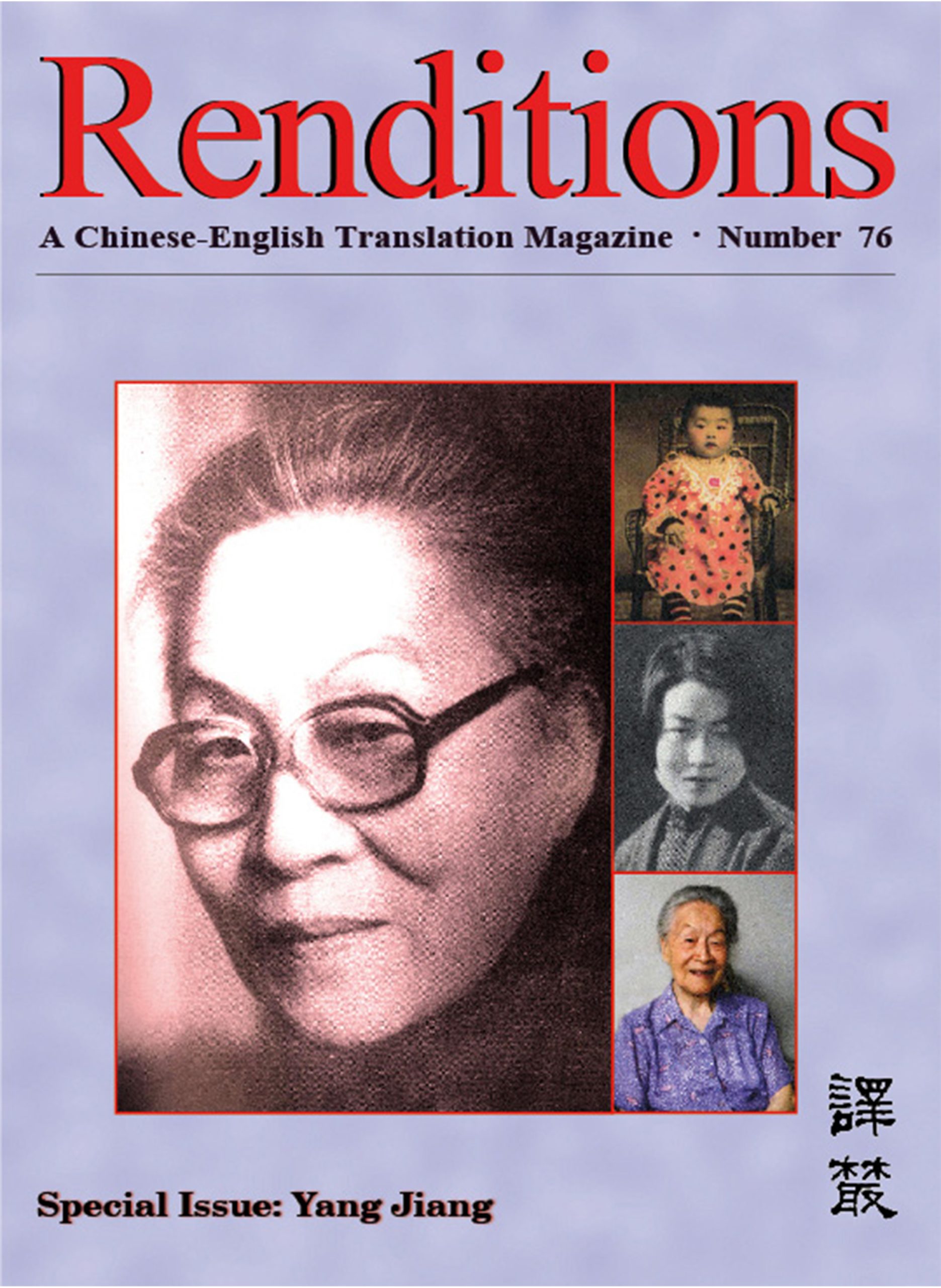
This issue focuses on a set of translations from the collection of reminiscences edited by Bei Dao and Li Tuo, The Seventies. A compendium of writings on their experiences of the decade that has proved so pivotal to contemporary China by a large group of writers who lived through it, the work has attracted great attention in the Chinese-speaking world. Also included is a prizewinning translation of the first three chapters of Mao Dun's Waverings, at once the second novella of the Eclipse trilogy, the author's first venture into prose fiction and a key document of the 1927 revolution.
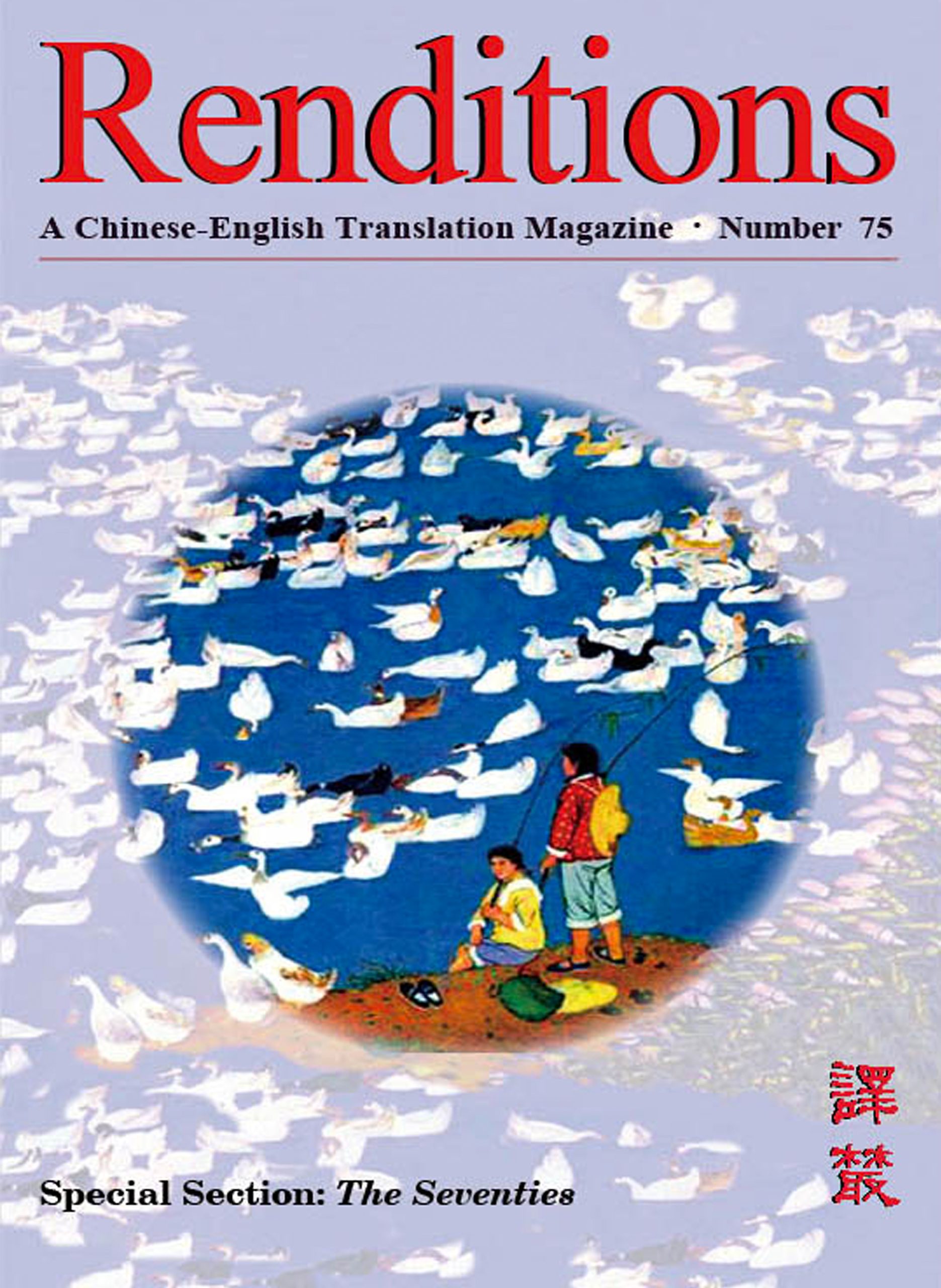
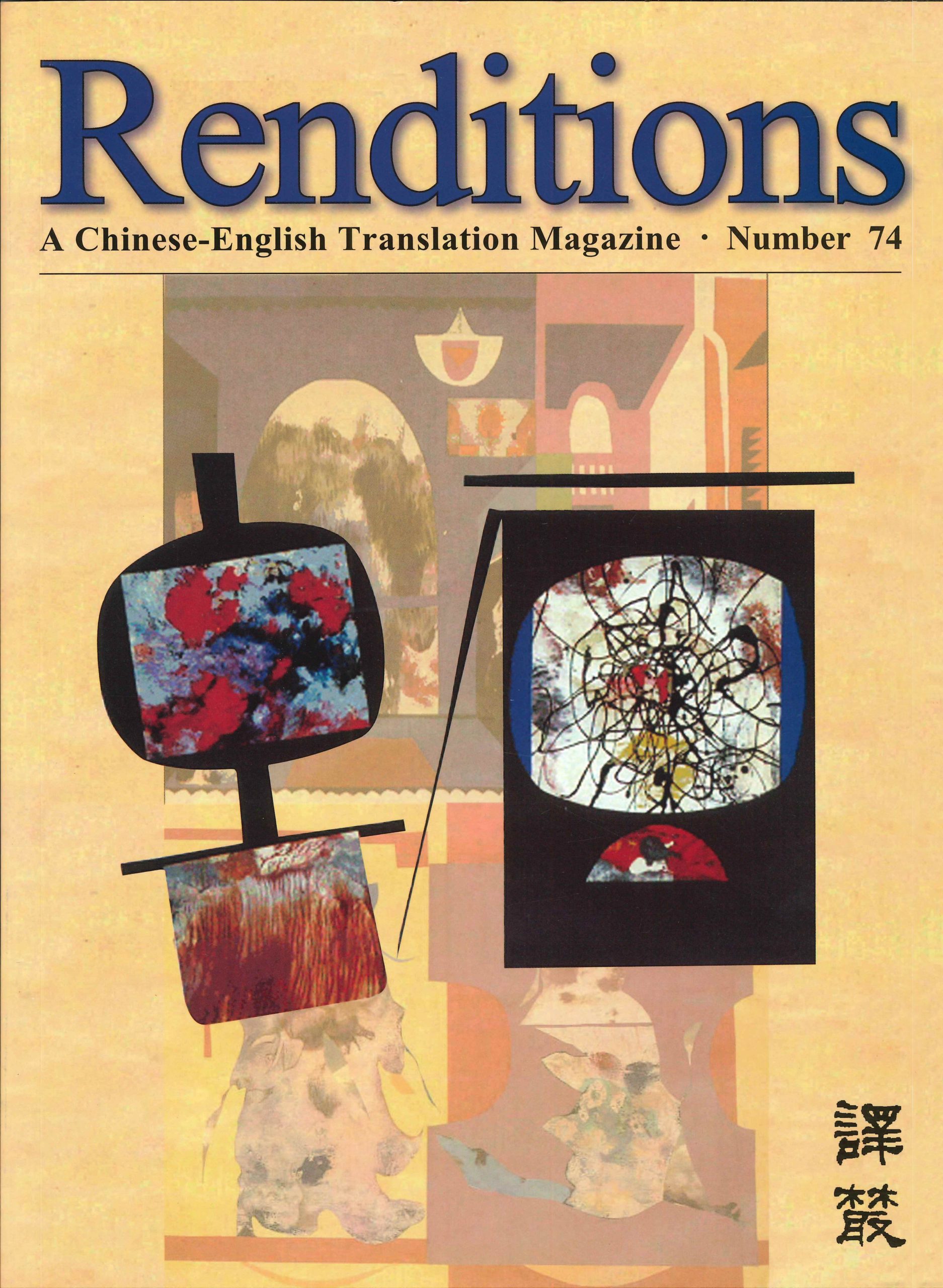
The fifty-page special section features the works by twenty-four local poets from the yesteryears, illustrated with historical images of Hong Kong. They portray a pastoral and historically-conscious Hong Kong before she evolved into the fast-moving cosmopolitan city known to the world today. Also included in the issue are excerpts from Yu Jian's travel writing, Liu Yichang's short story, and Li Yu's discourse on food and doctoring.
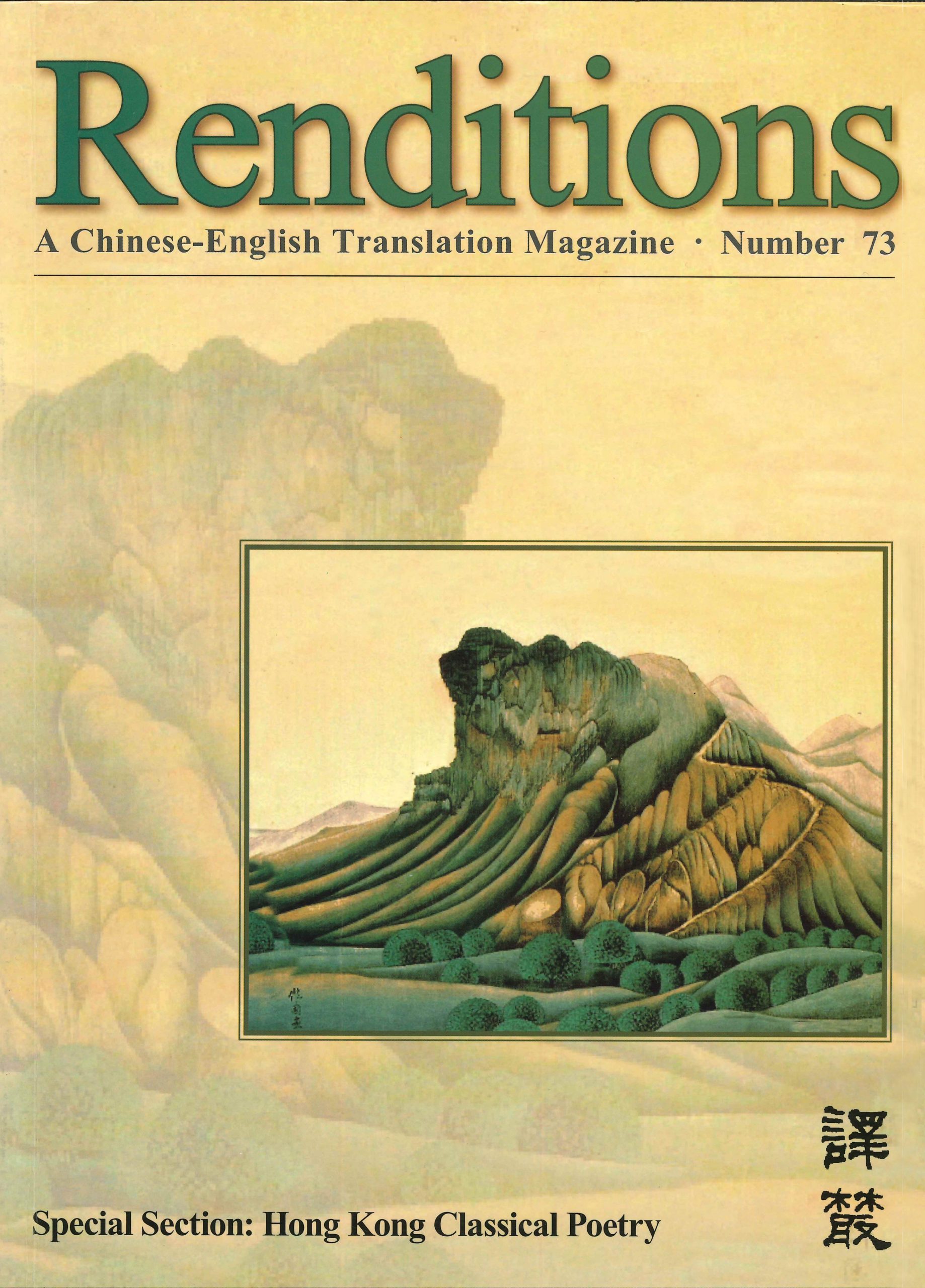
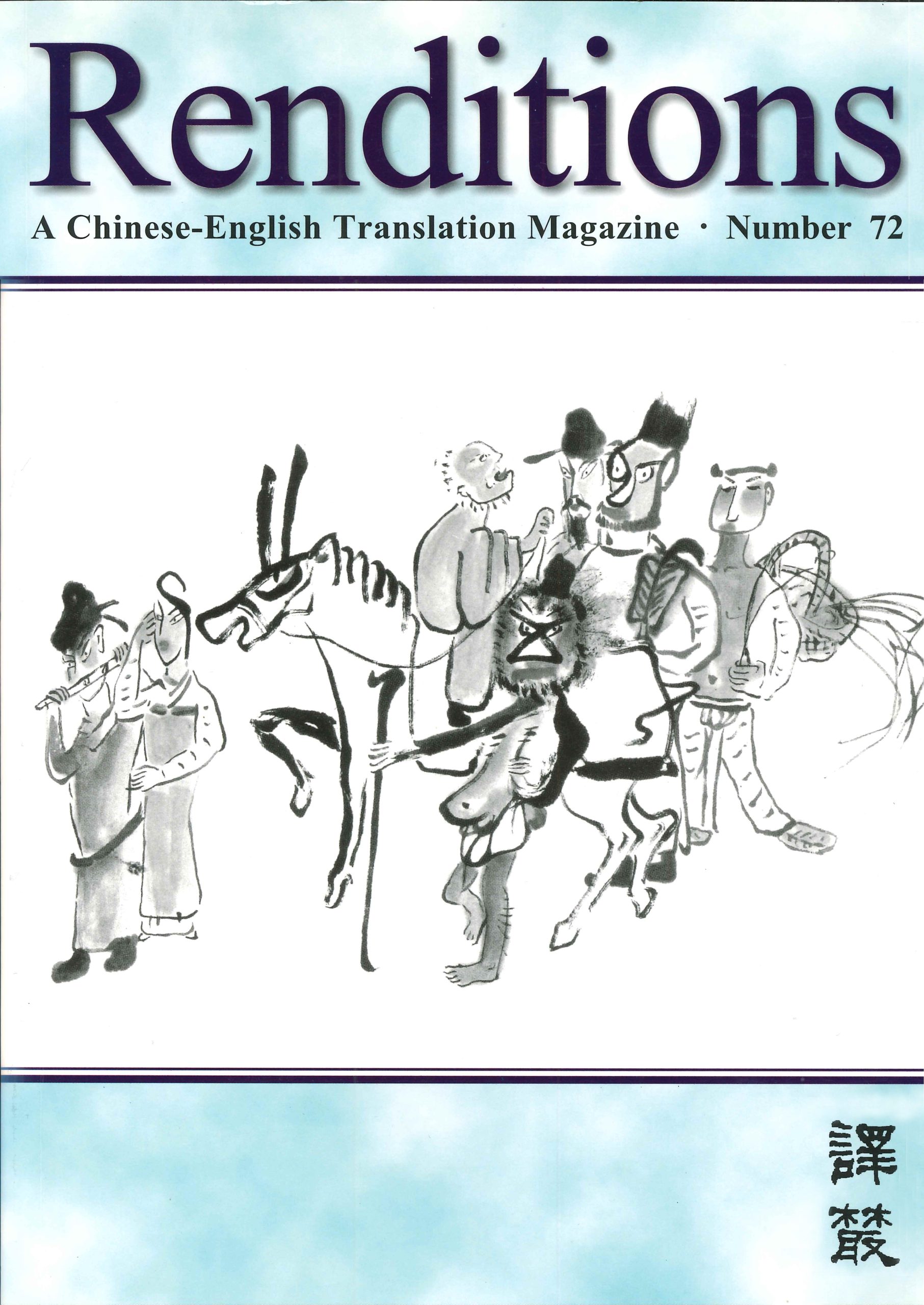
Extracts from Chinese film scripts and other texts from the 1930s to this century are included in this issue. They range from The New Woman (1934), starring Ruan Lingyu, to Chunmiao (1975) from the Cultural Revolution, and include a storyboard from Zhang Yimou's Hero (2001). Fei Mu's Spring in a Small Town (1948) is a highlight. The issue will explore whether the literary film script (dianying wenxue juben) is a uniquely Chinese invention, written like fiction but reflecting what we see on the screen. The more usual shooting-scripts of several titles will also be included and pages from them will help illustrate the issue.
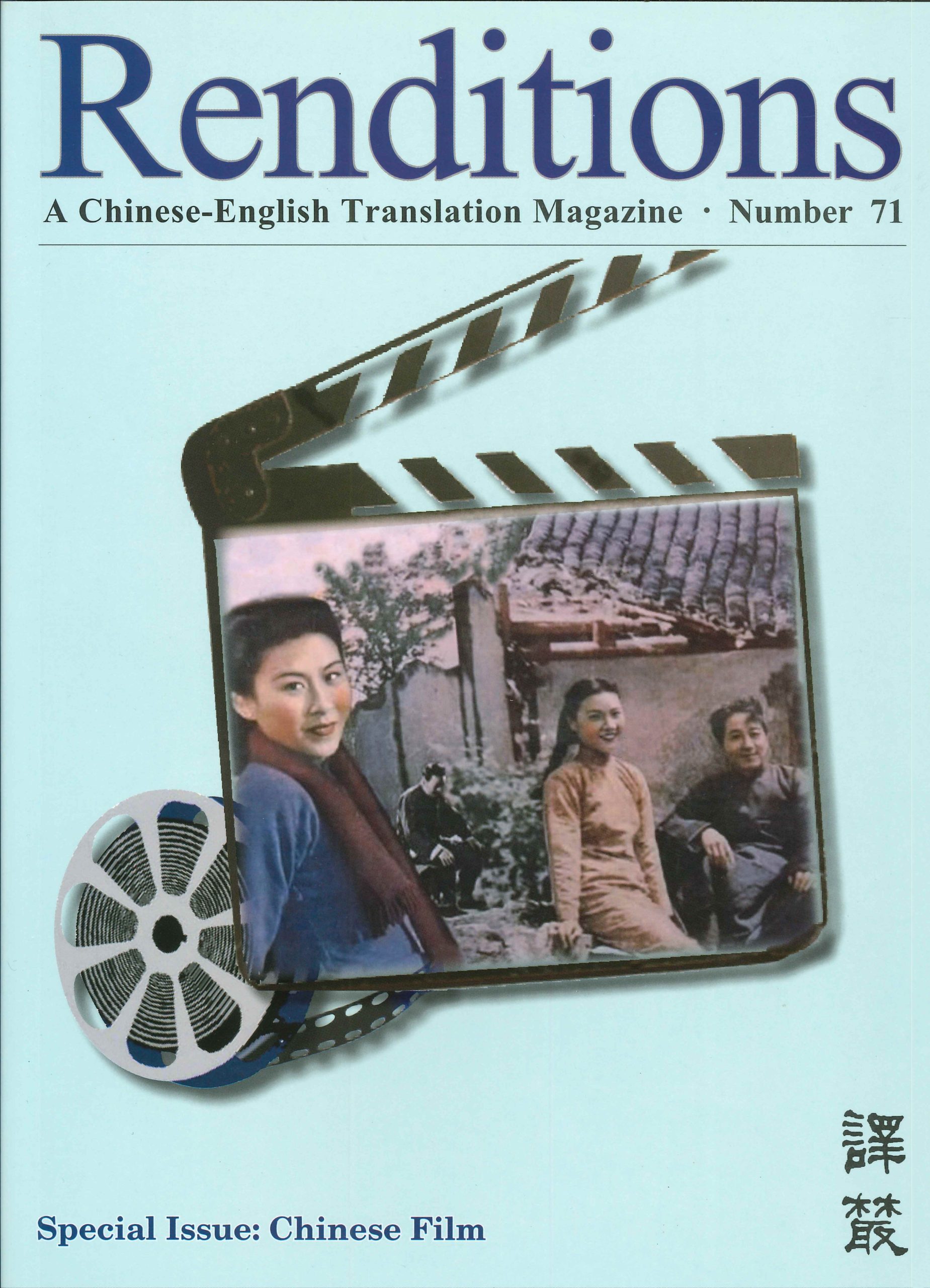
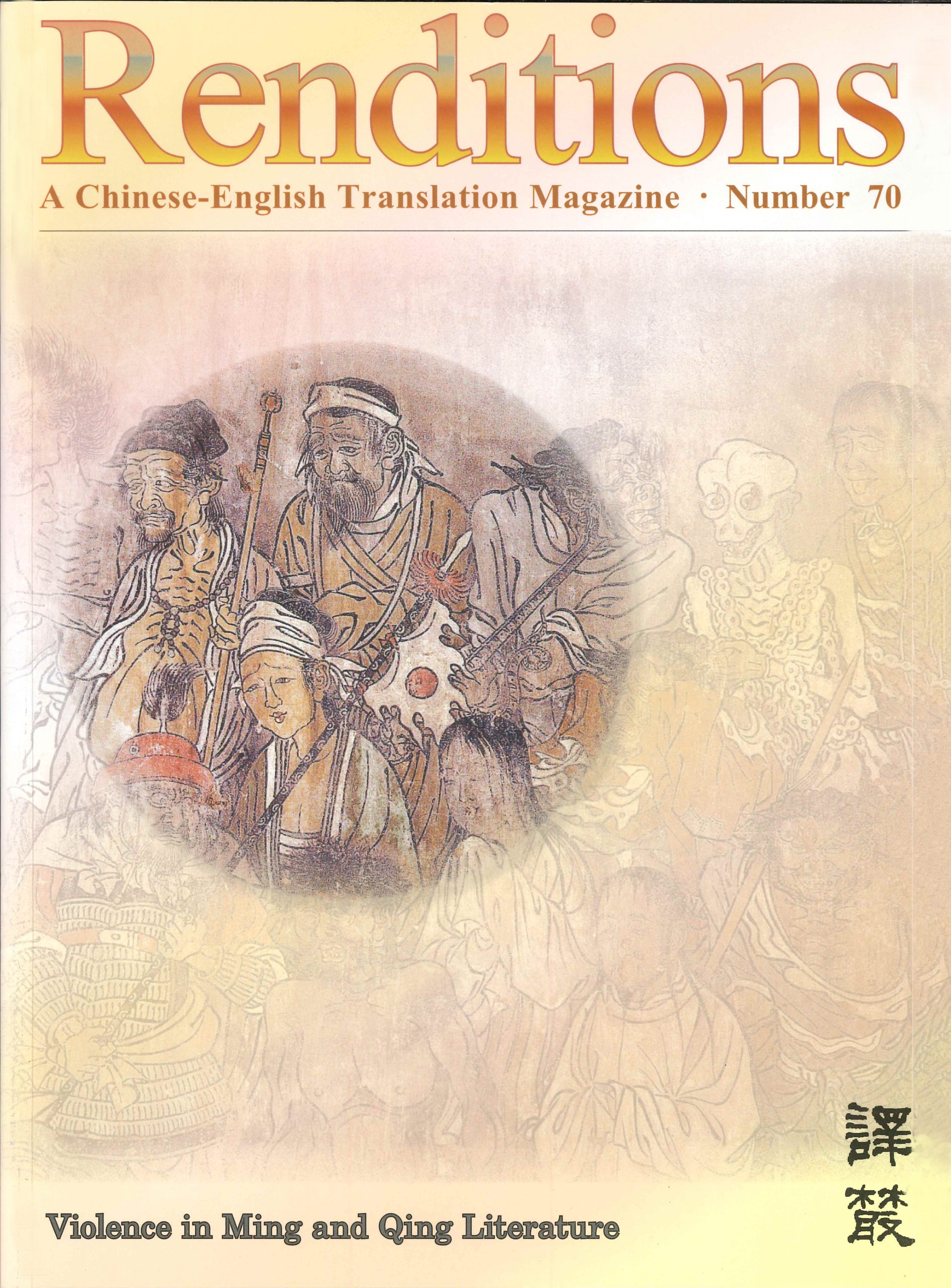
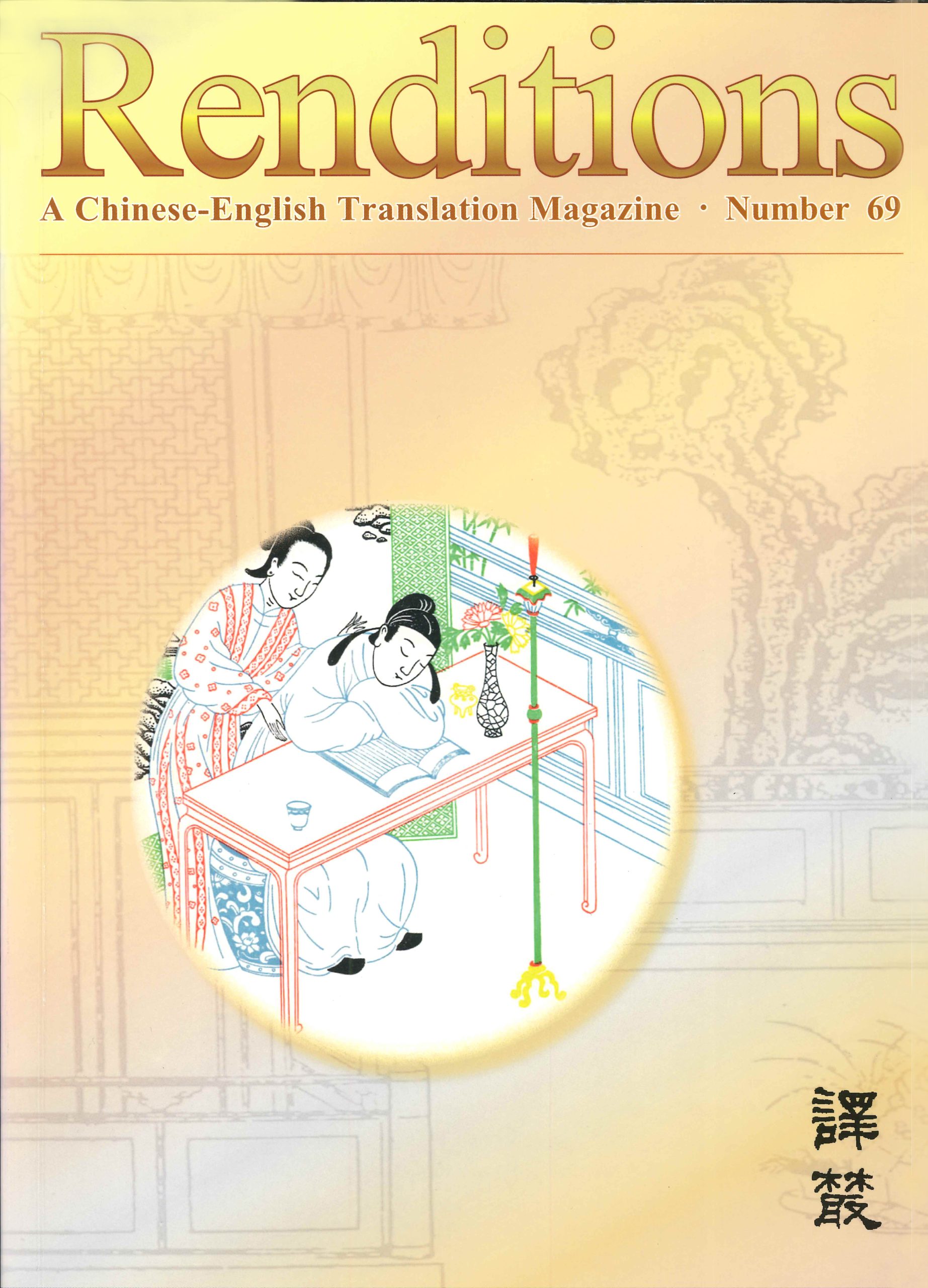
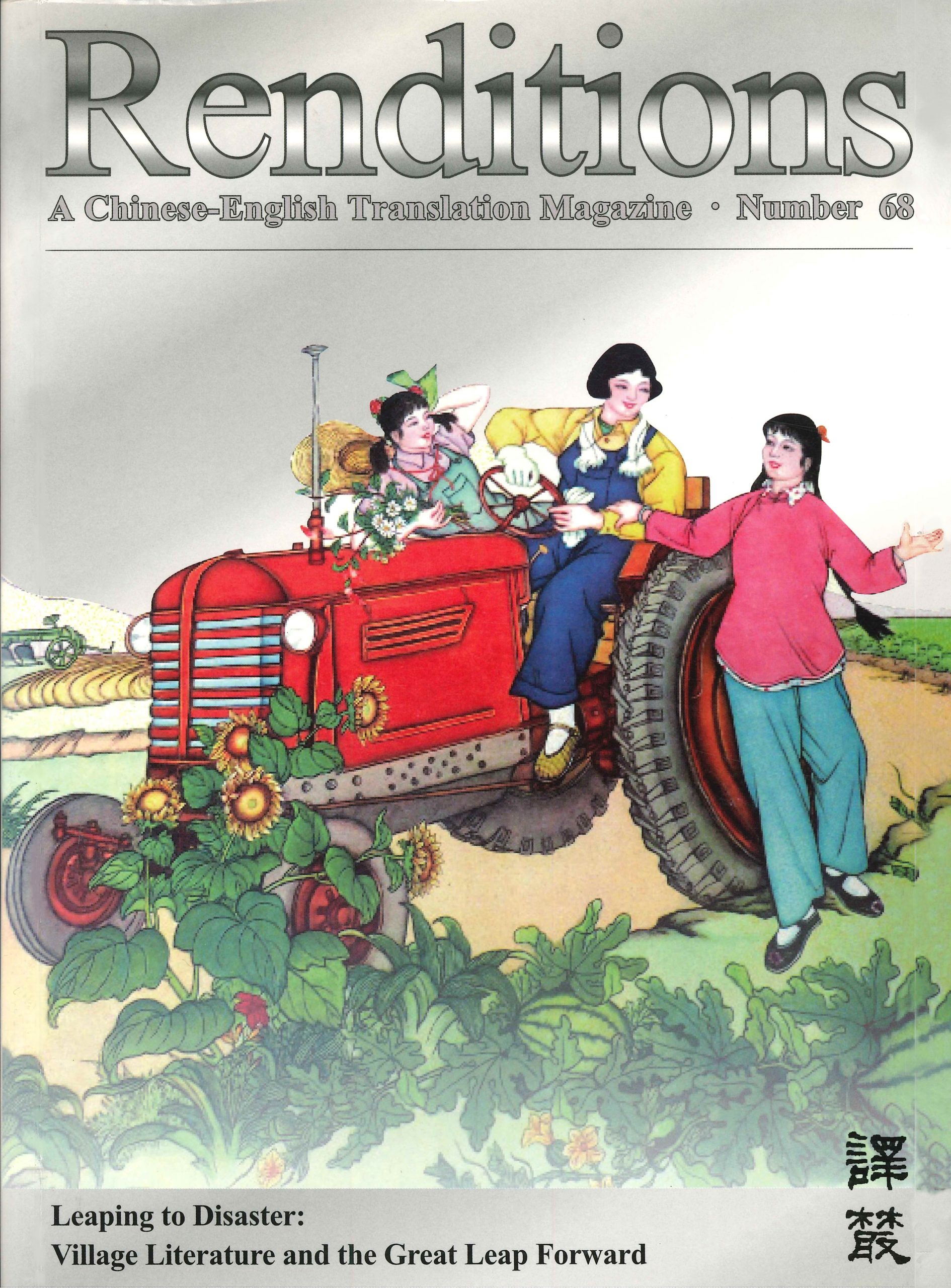
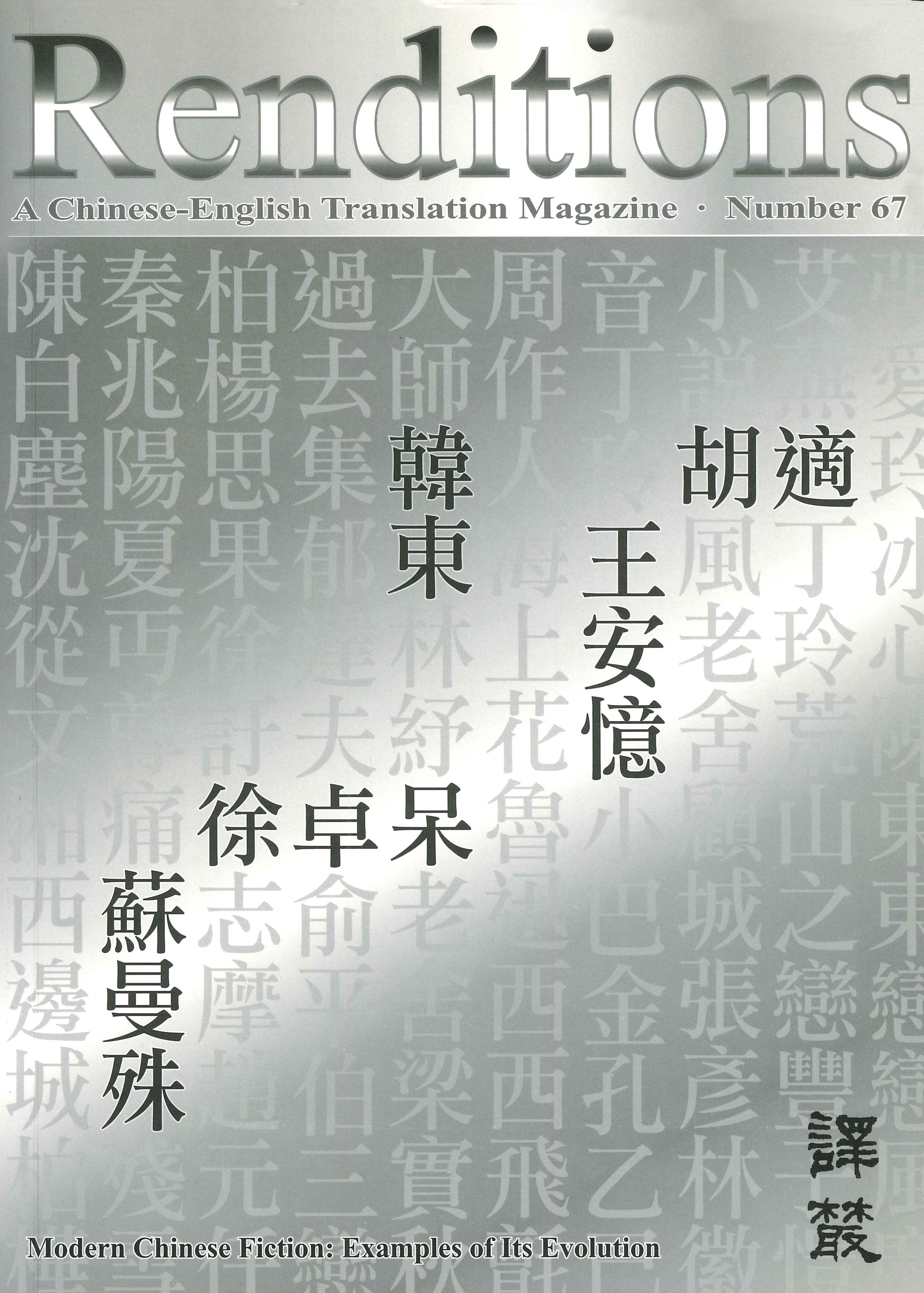
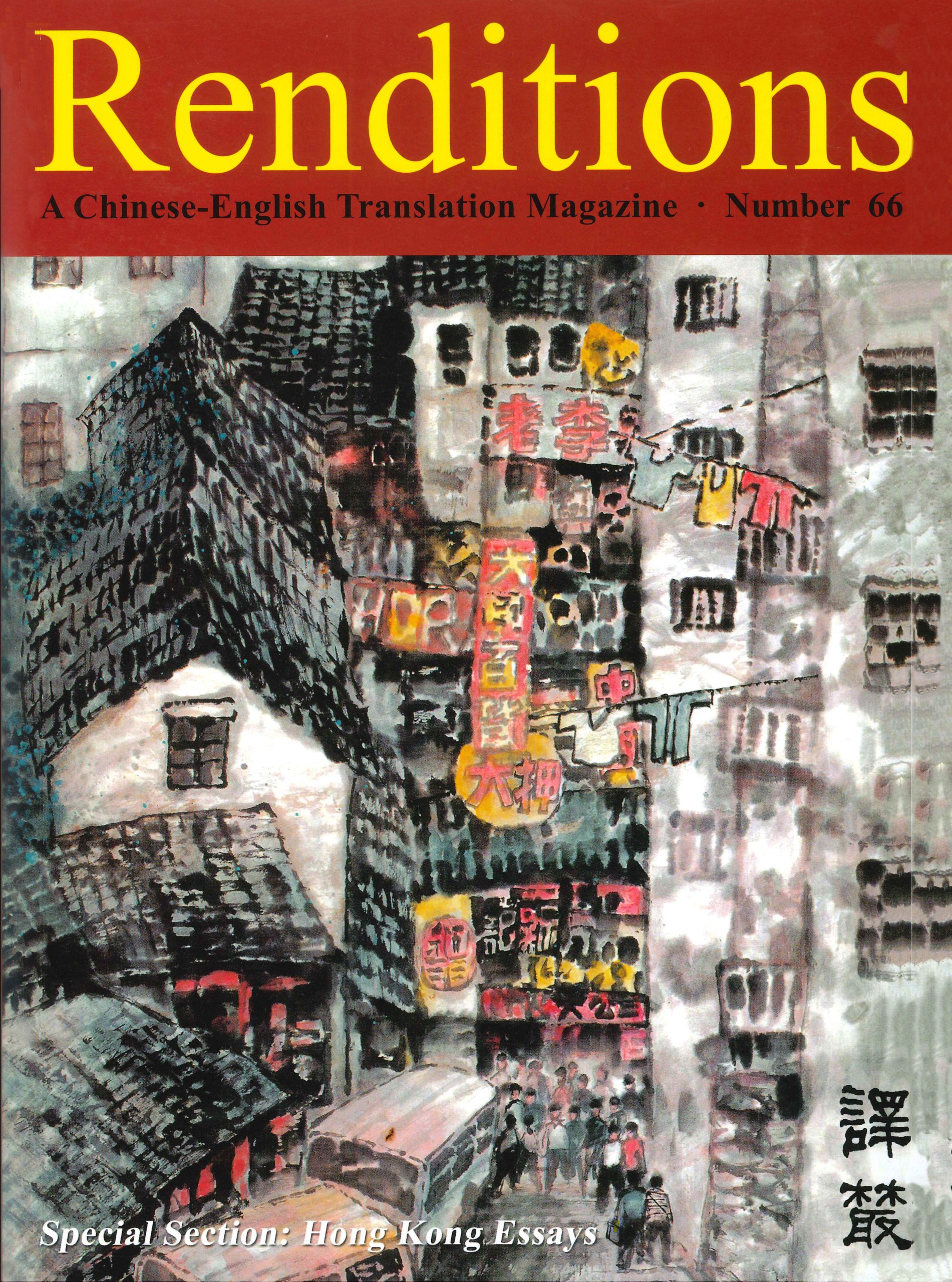
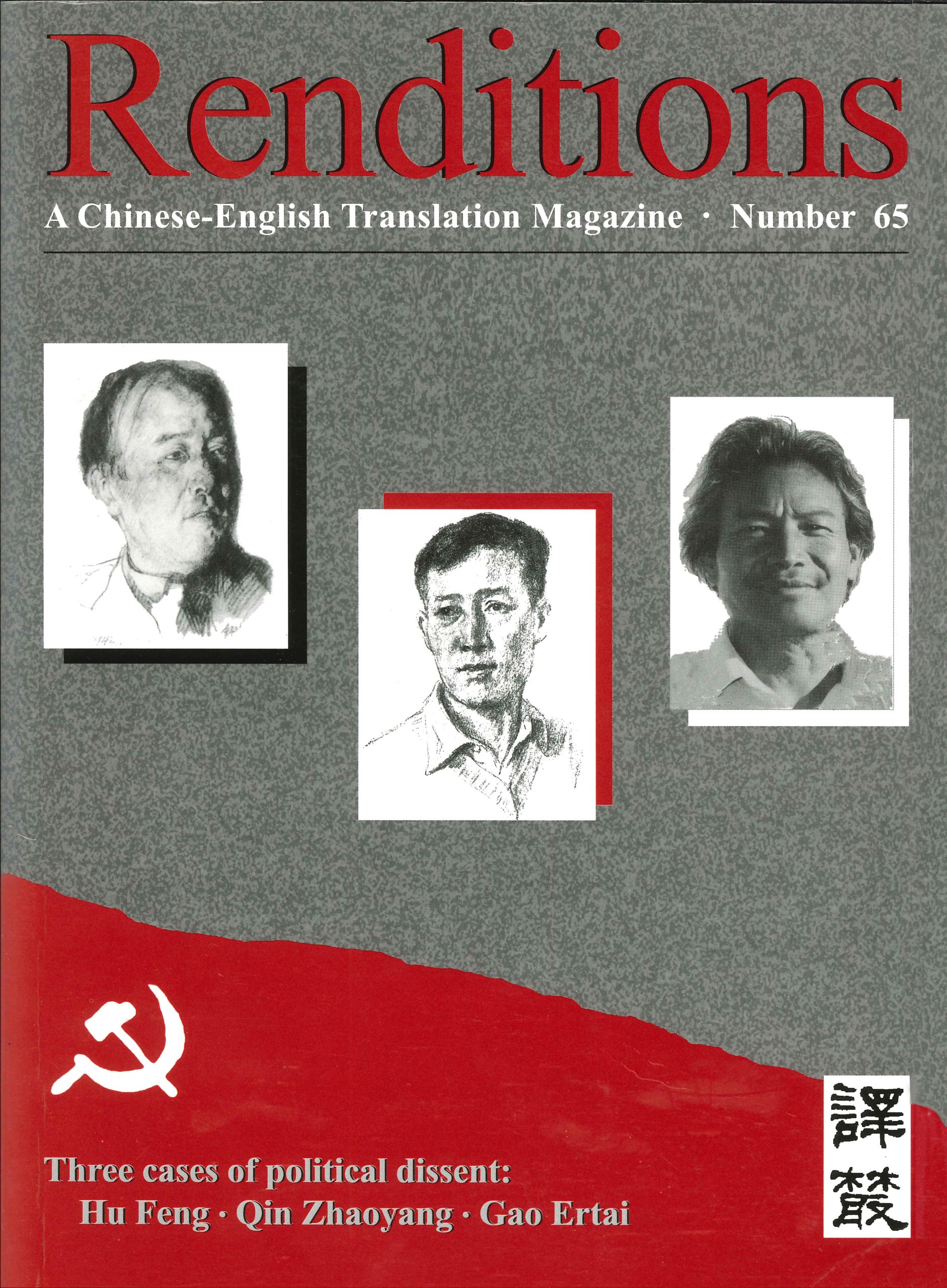
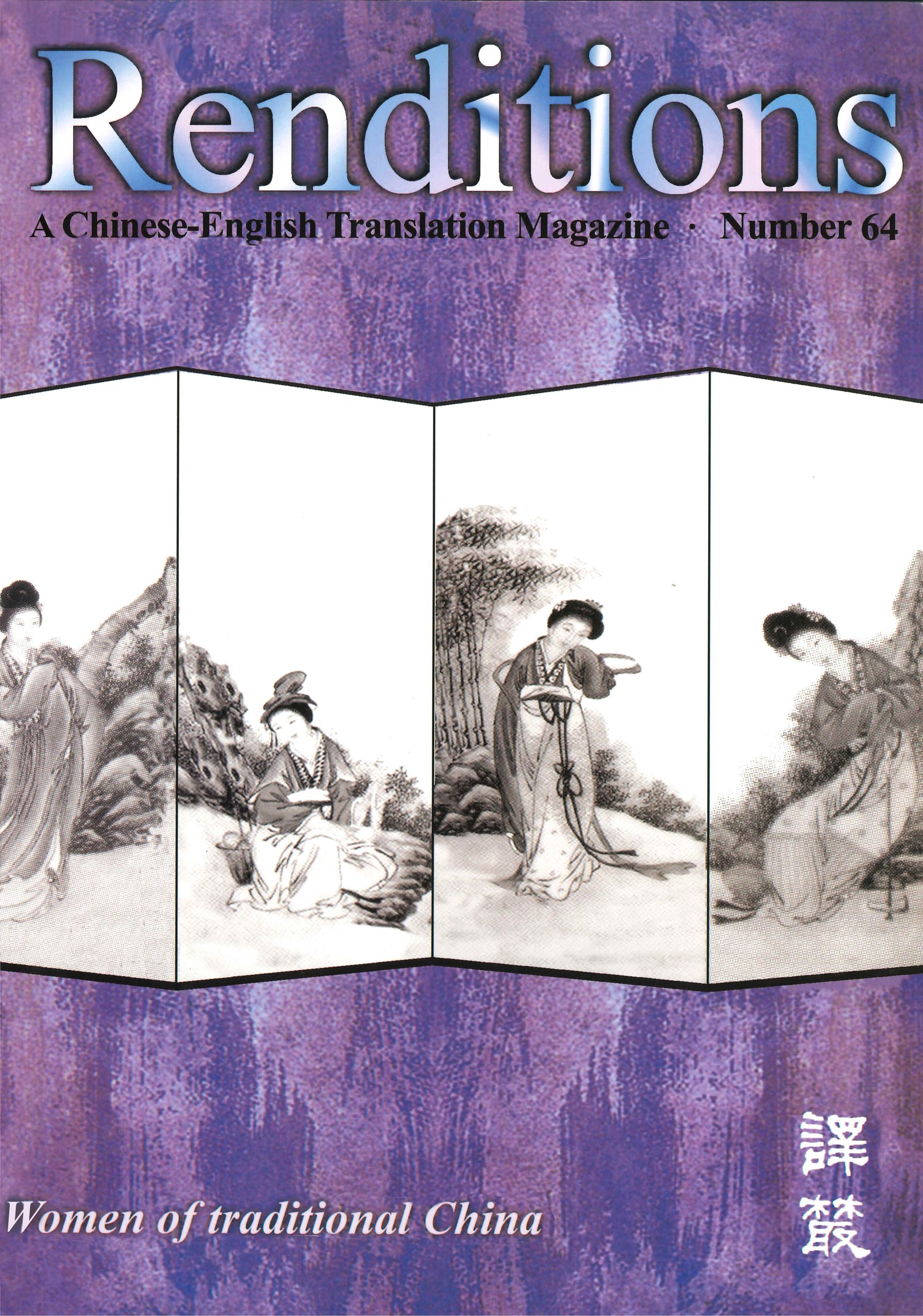
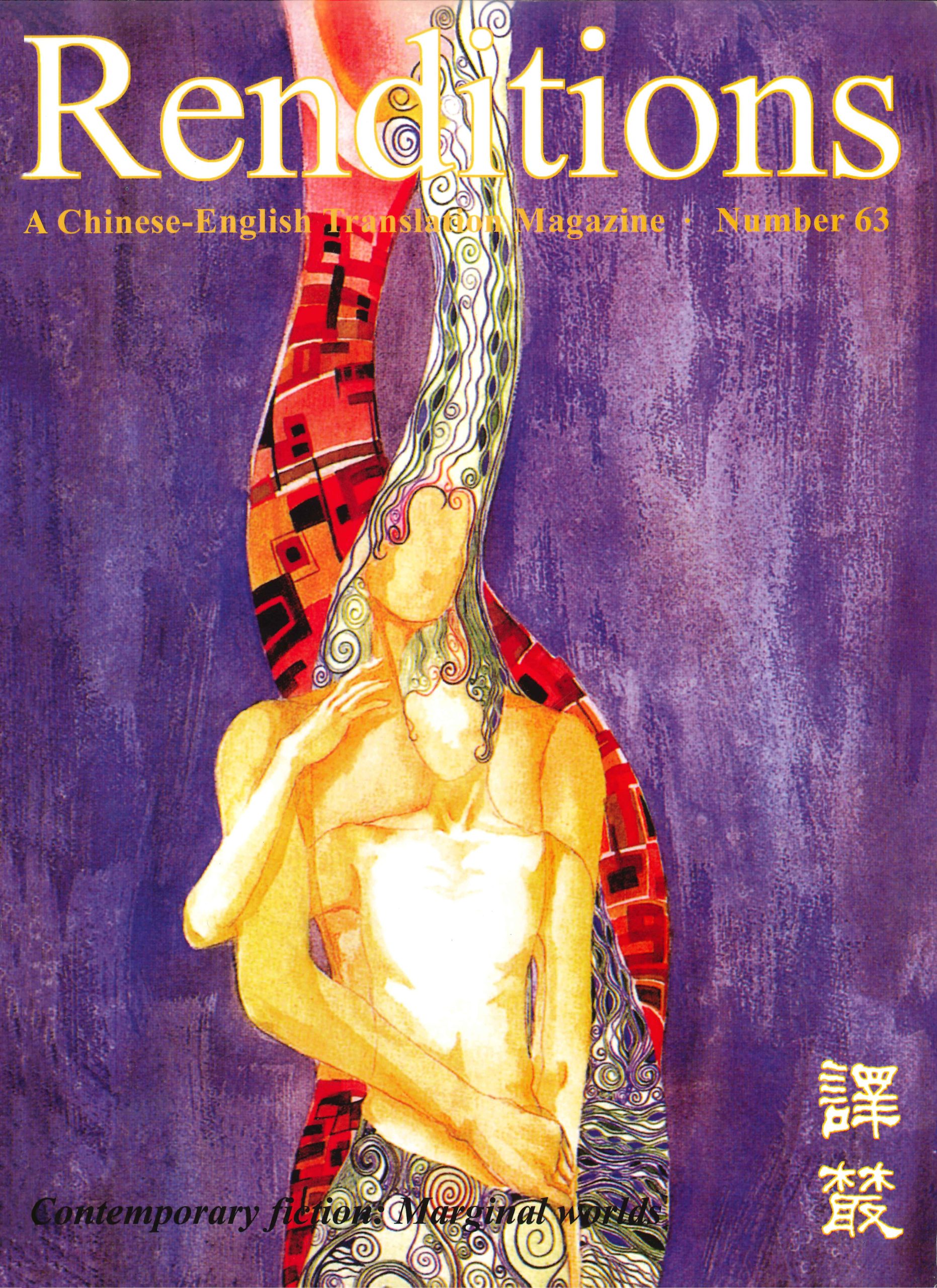
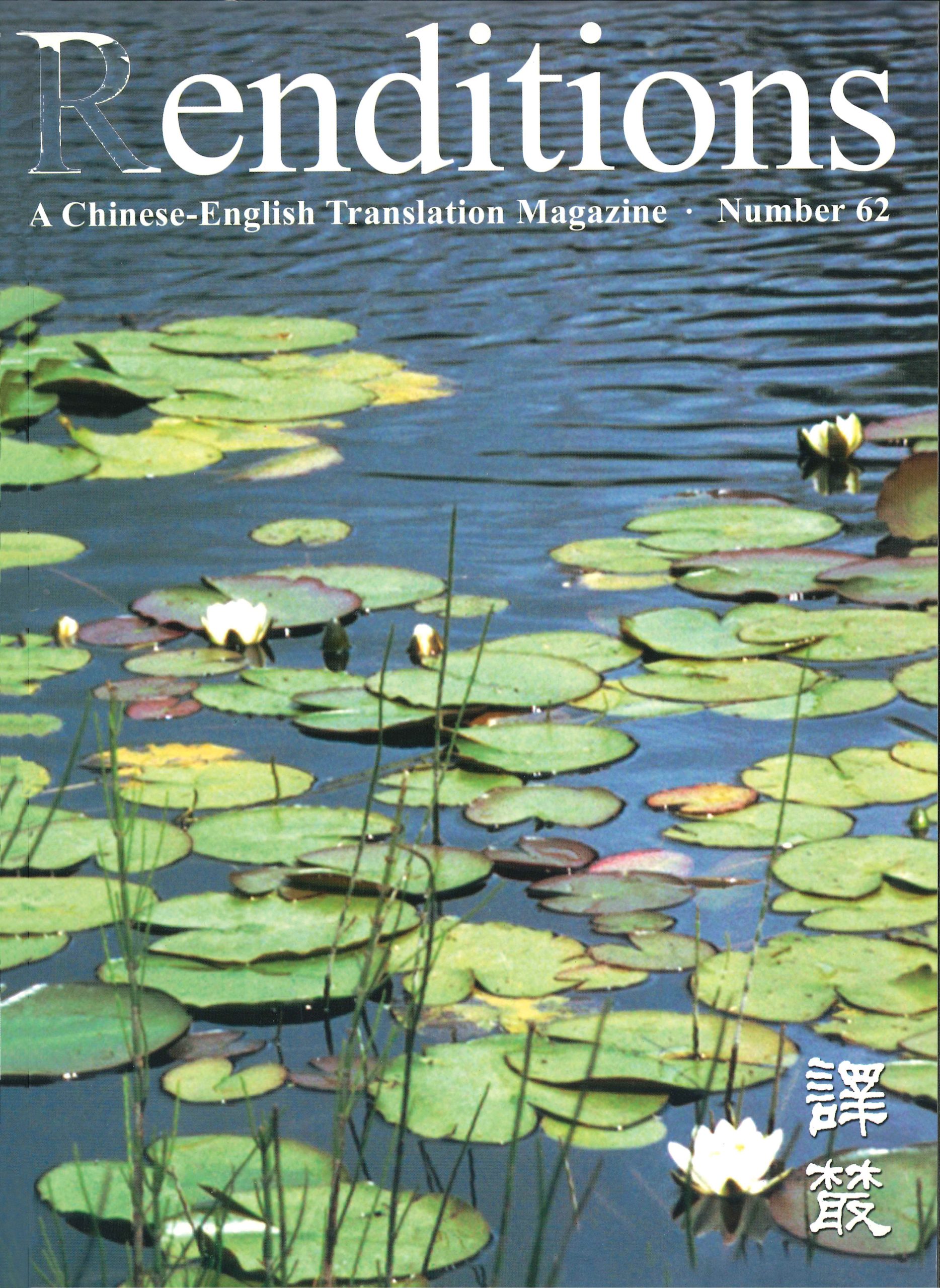
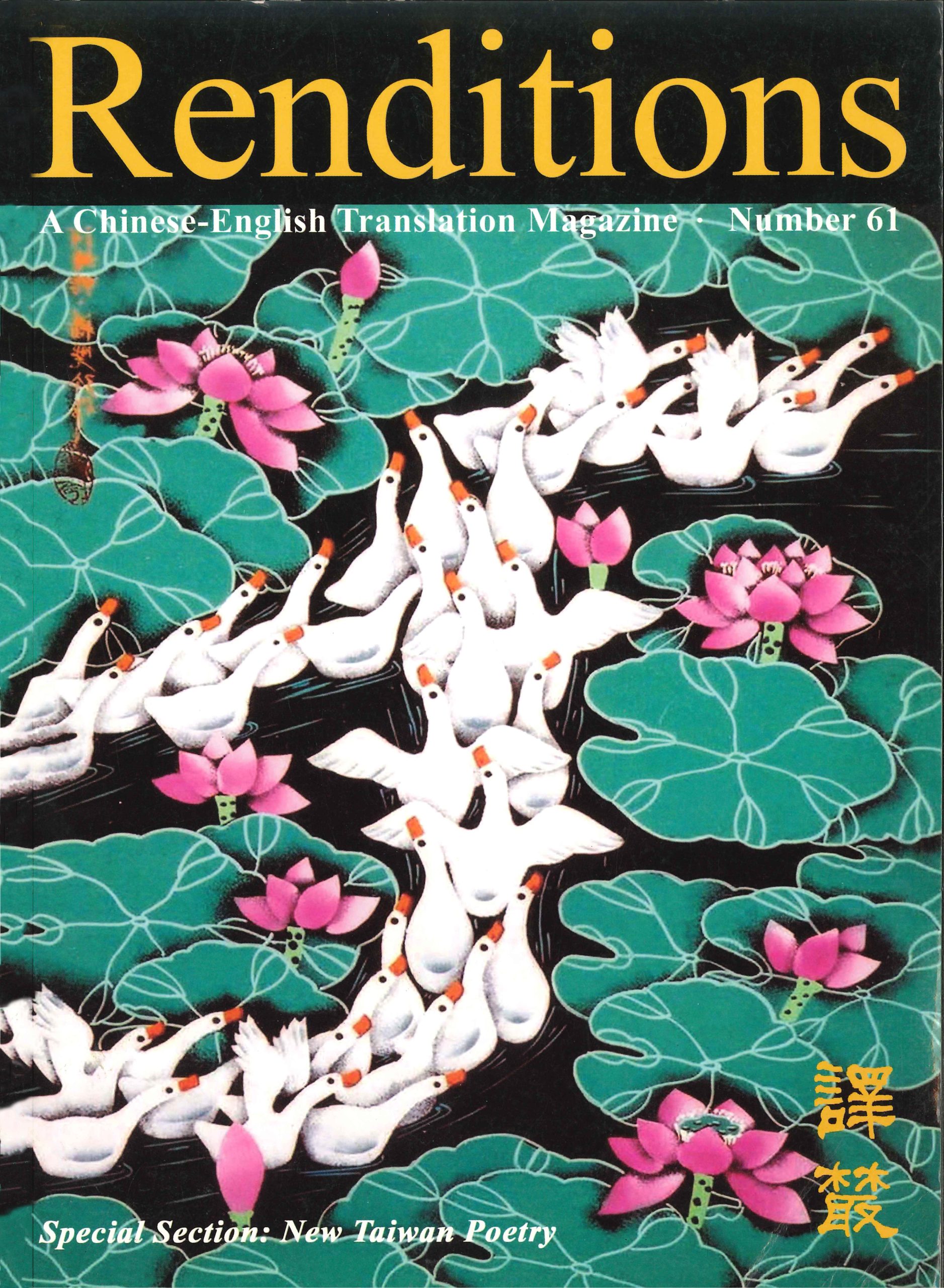
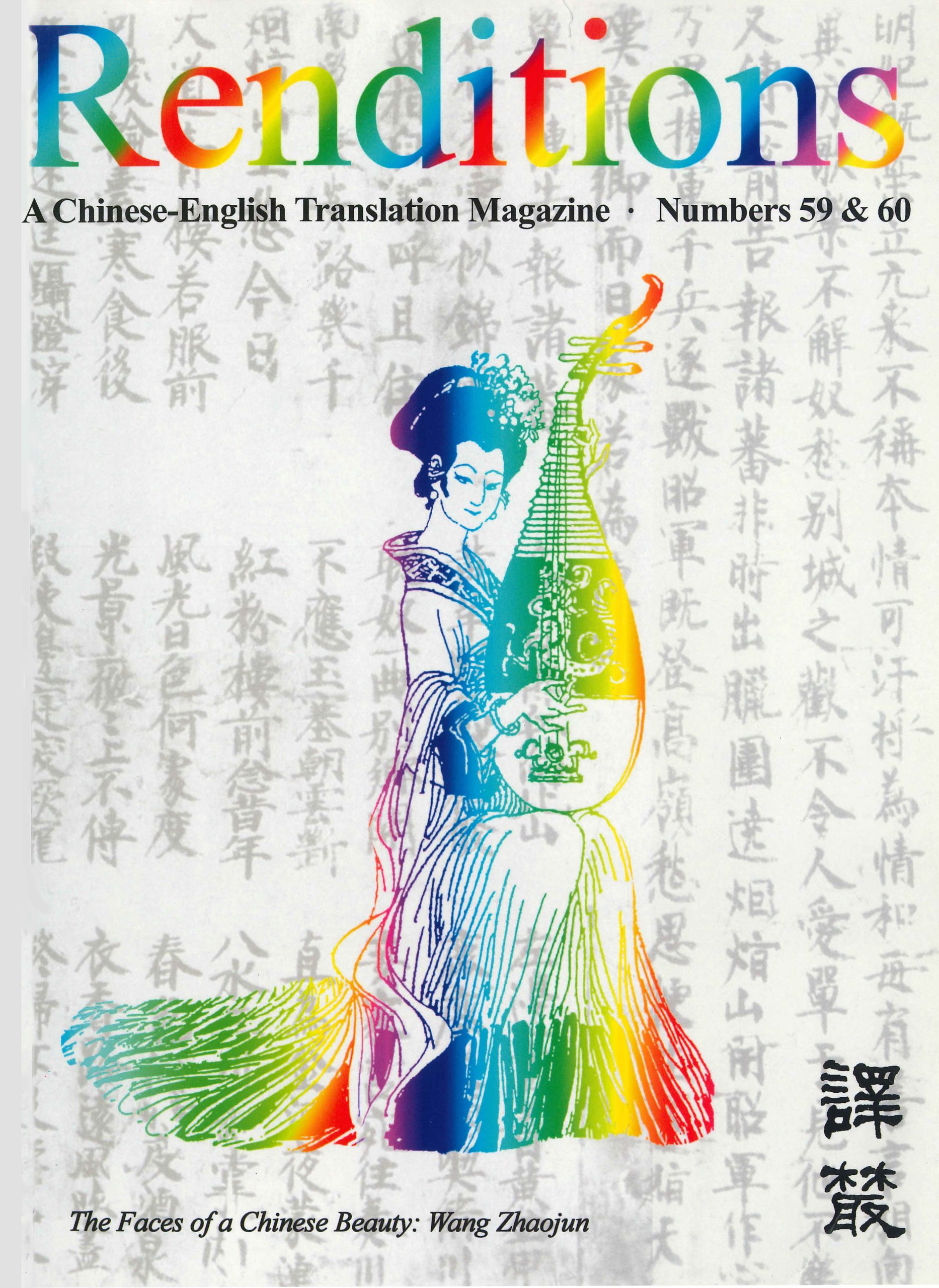
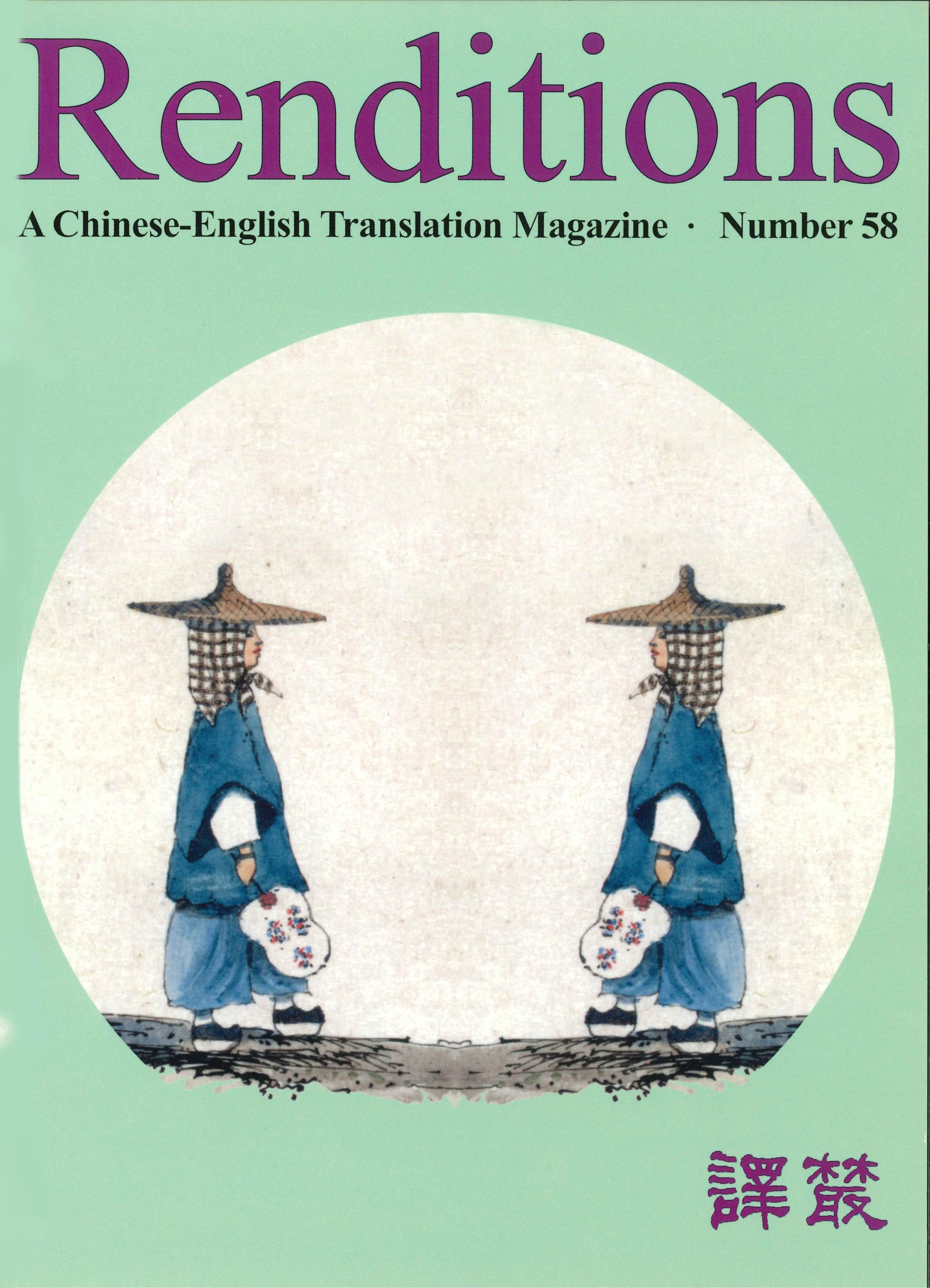
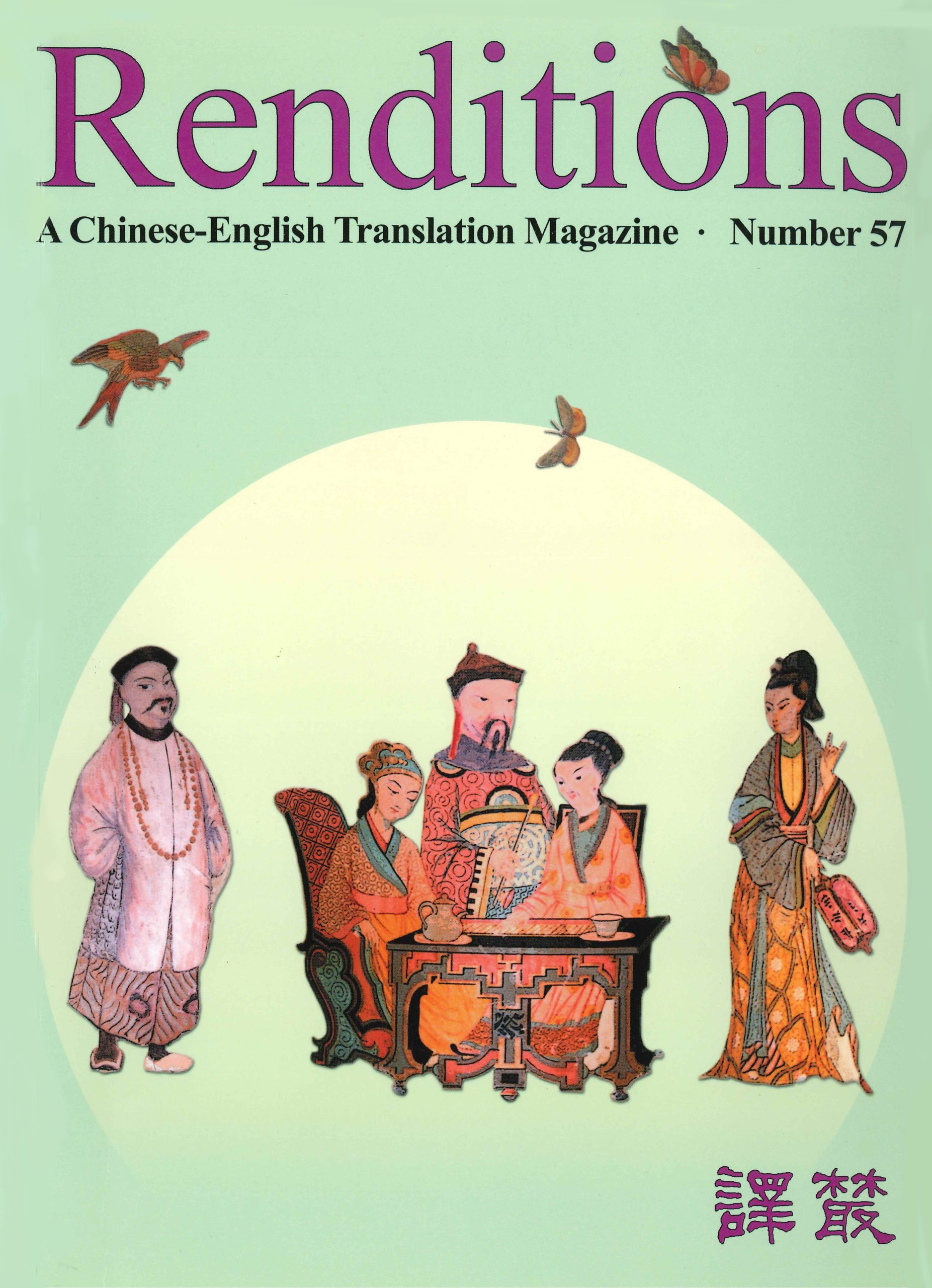
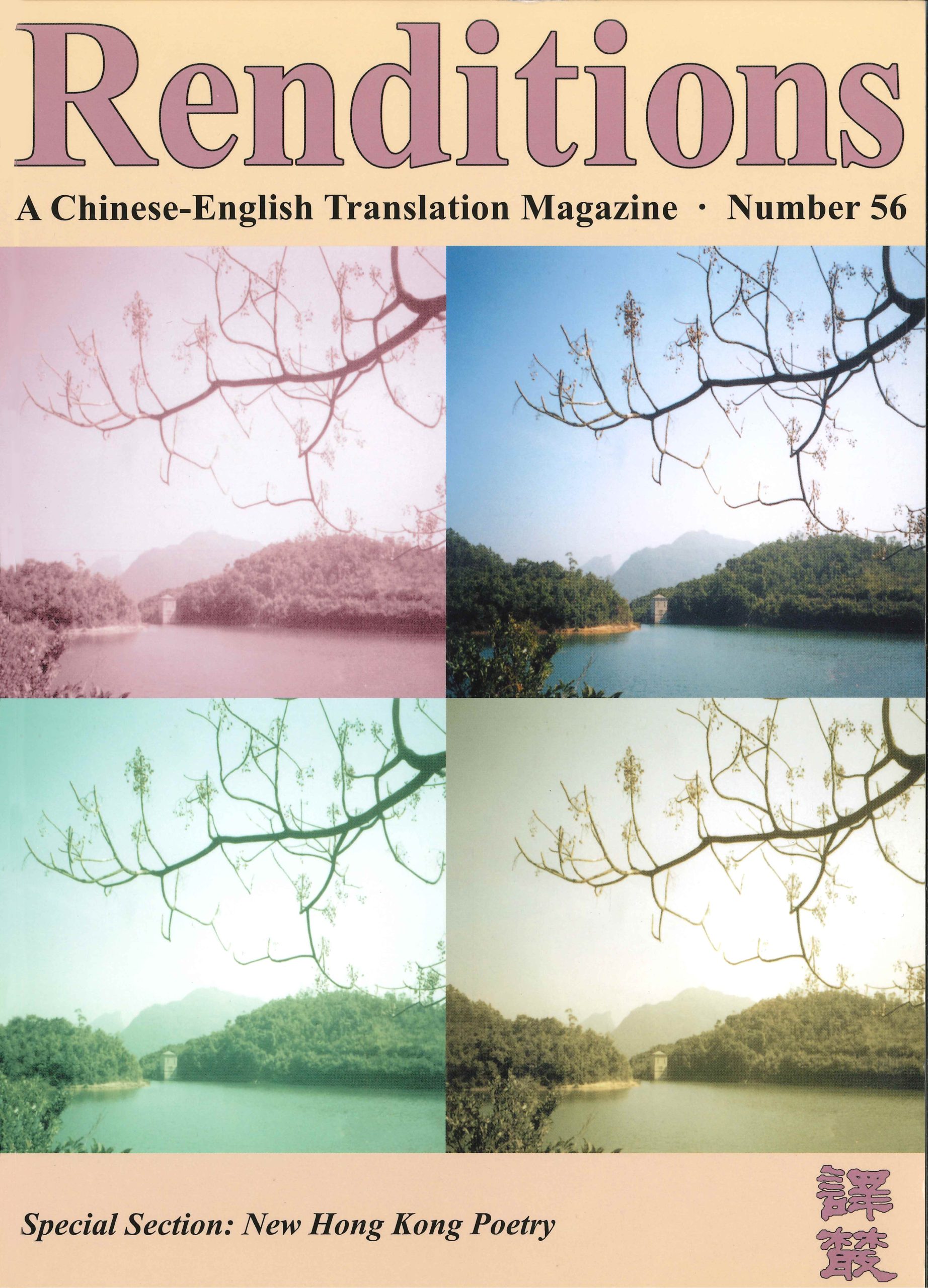
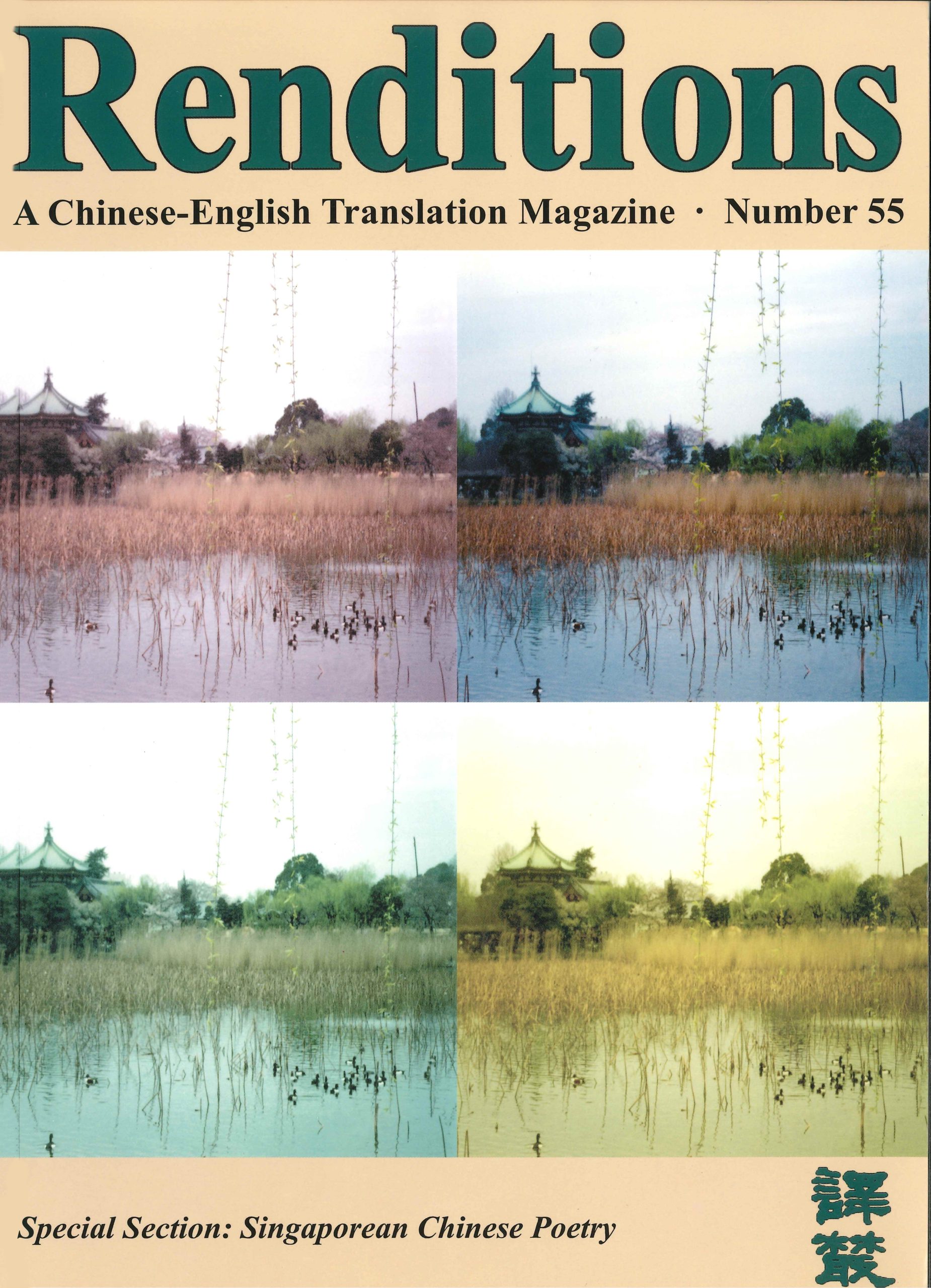
Chinese Impressions of the WestFrom the mid to late 19th century, educated Chinese as well as government officials began exploring aspects of Western civilization, their purpose to preserve China's nationhood. Excerpts from petitions, diaries and travelogues reveal the observations and experiences of government officials, diplomats, dissidents, scholars and students, those who journeyed to the West, as well as those who stayed behind. The issue also includes depictions of Westerners from popular journals and magazines.
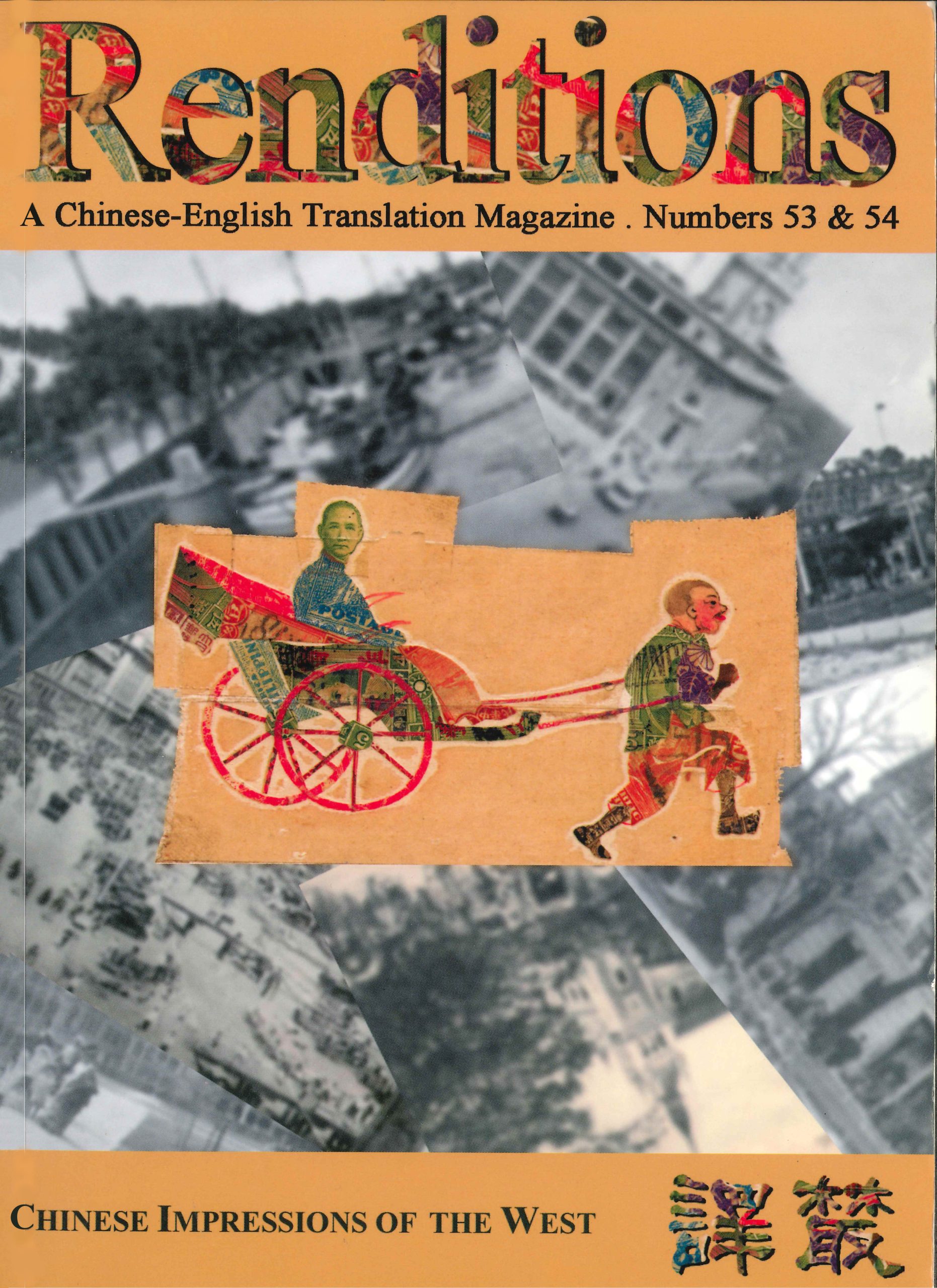
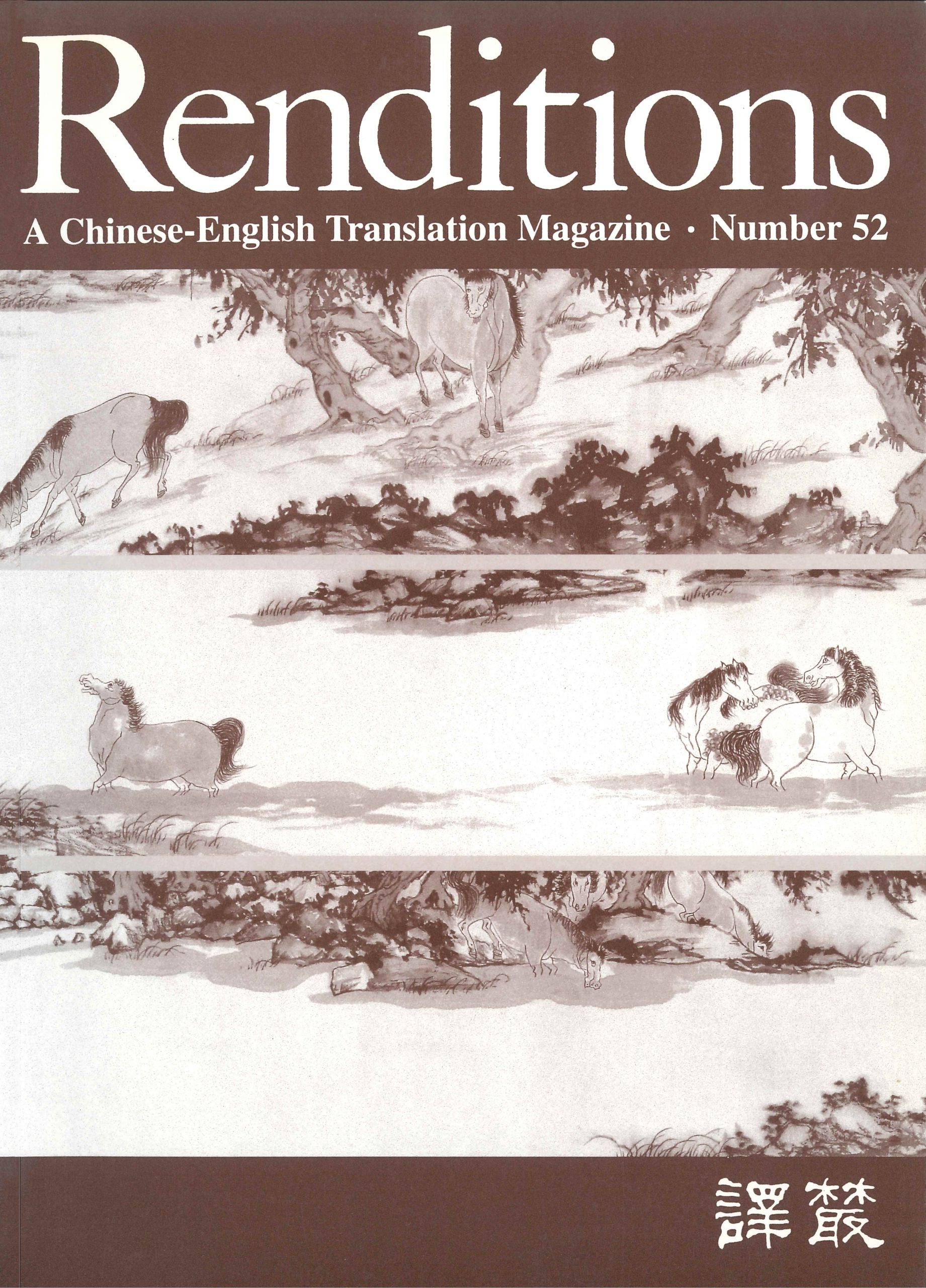
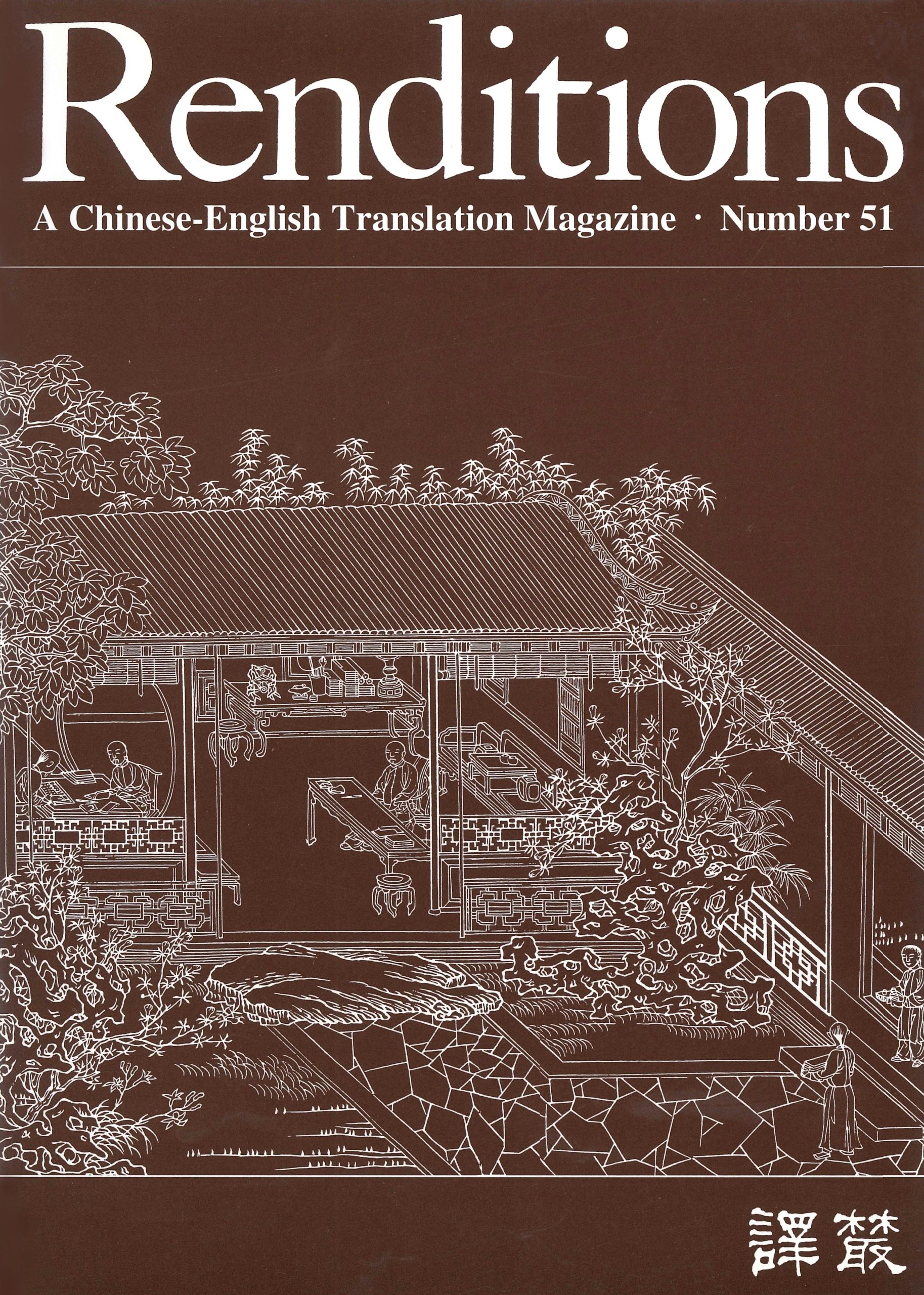
December 1998 marked the 30th anniversary of Mao Zedong's directive sending twenty million urban high-school graduates (zhiqing) “down” to the countryside to work as agricultural labourers beside their peasant-farmer hosts. Richard King, zhiqing literature expert, guest-edits this issue of selections spanning the early 1970s to the mid-1990s. These writings bring to vivid life the experiences of the first generation raised under Chinese Socialism.
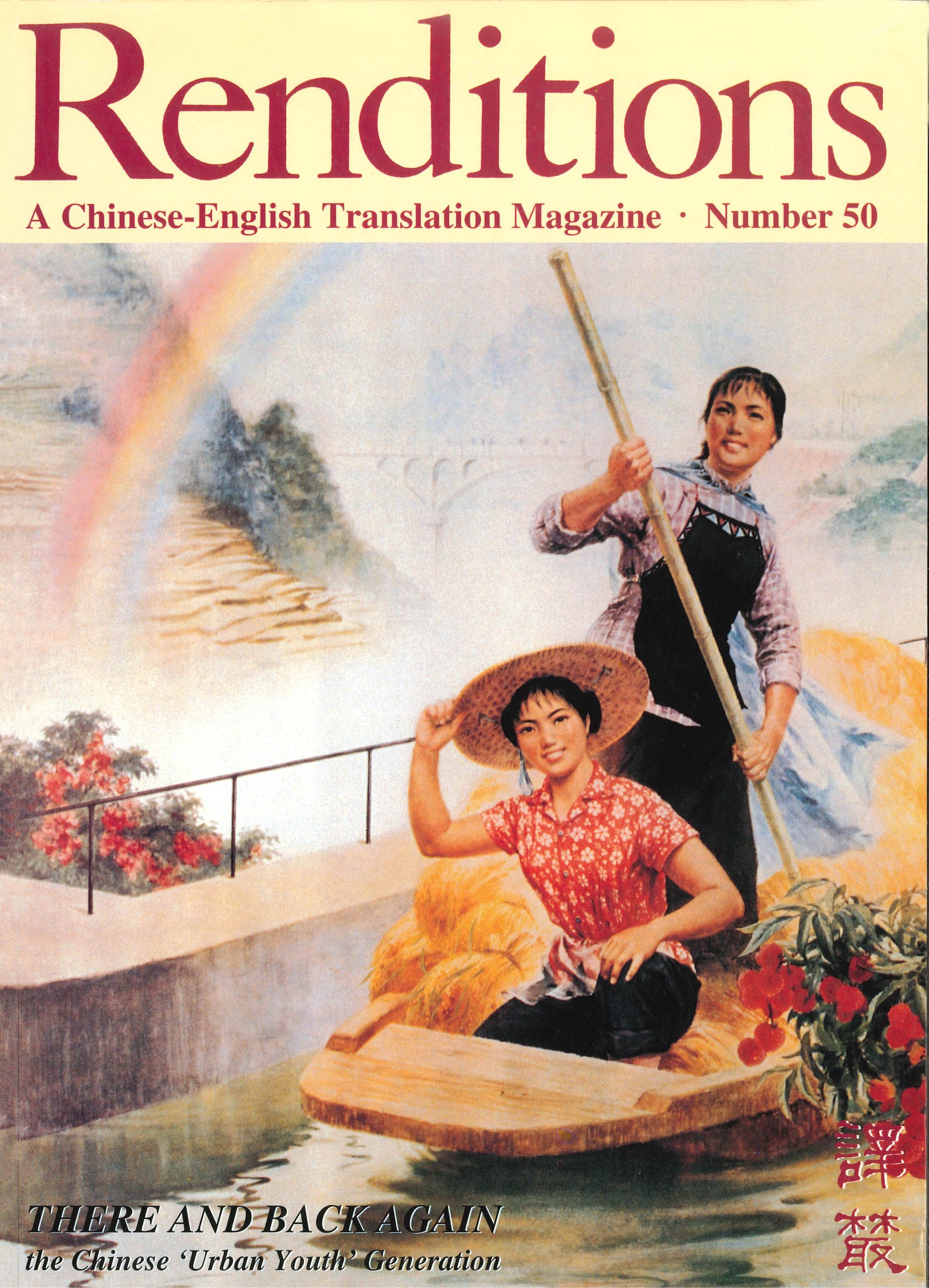
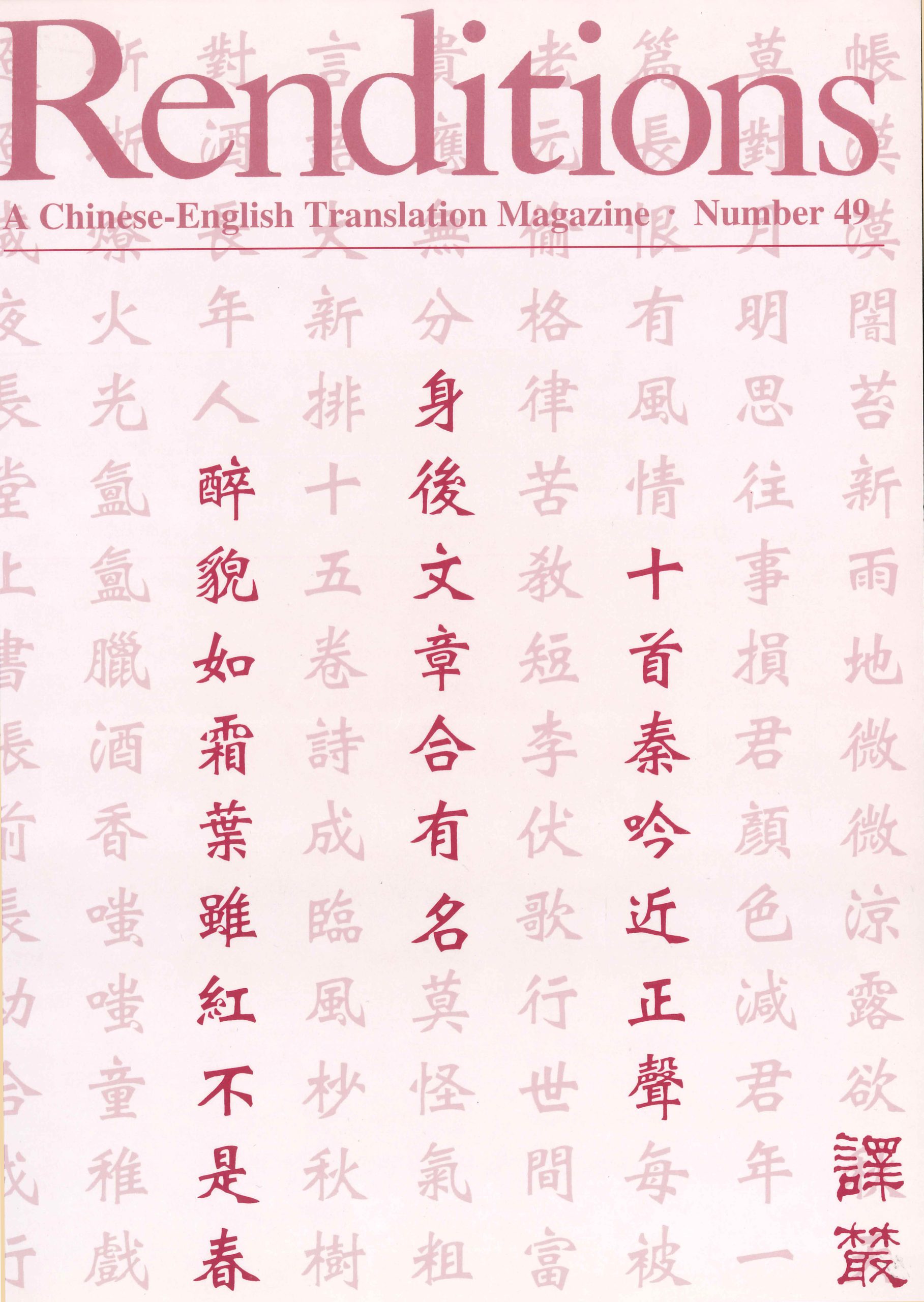
An important collection of Hong Kong literature of the 1990s, including fiction, sanwen, zawen, and a selection of poetry devoted to new poets of the 90s. The issue presents recent works from established figures such as Xi Xi, P.K. Leung and Xin Qi Shi, and newer voices such as Dung Kai Cheung, Wong Bik Wan and Patsy Kwan Lai Shan.
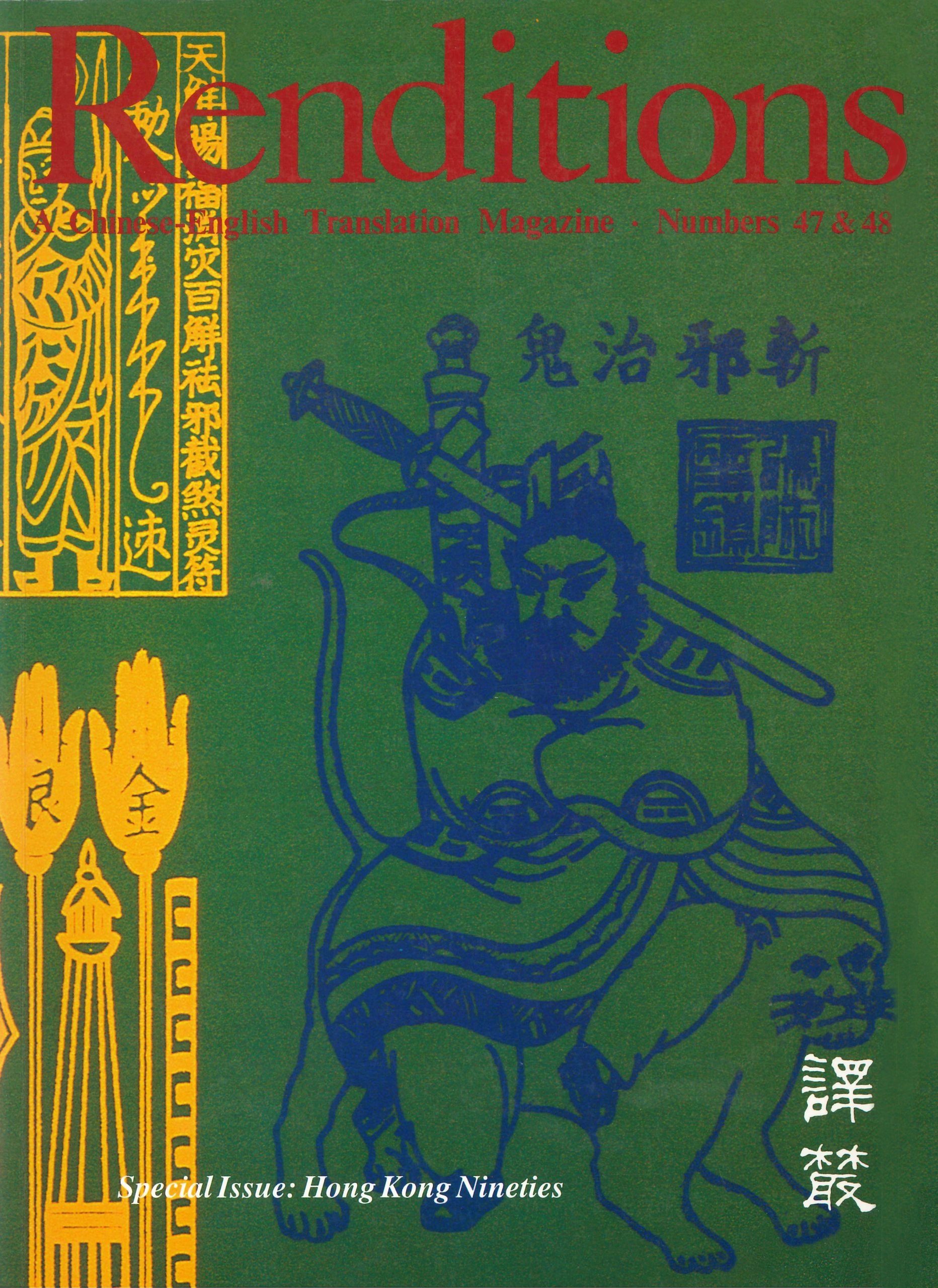
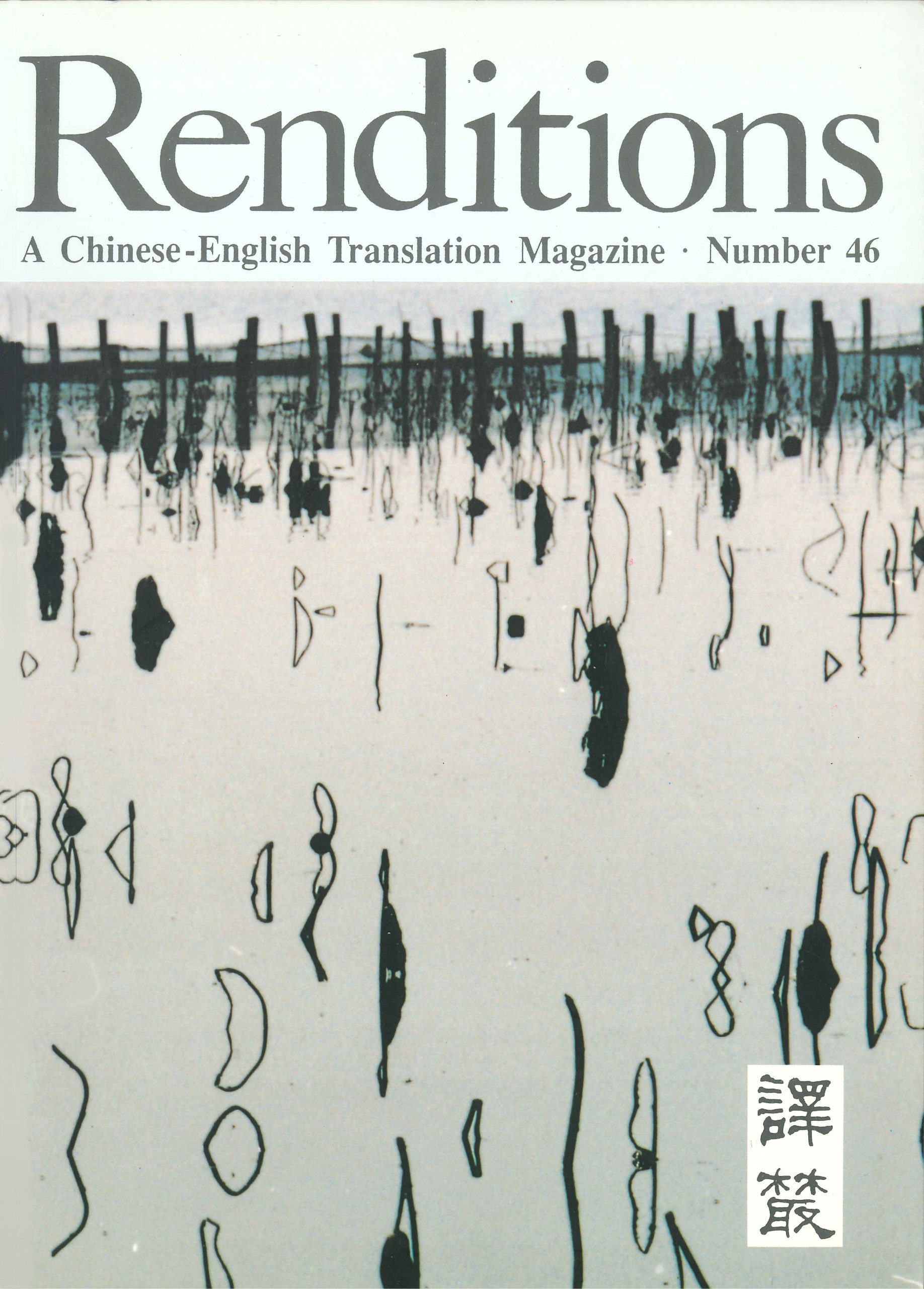
The work of Eileen Chang (Zhang Ailing) are featured in this special issue, including essays, stories, criticism, drawings and photographs.
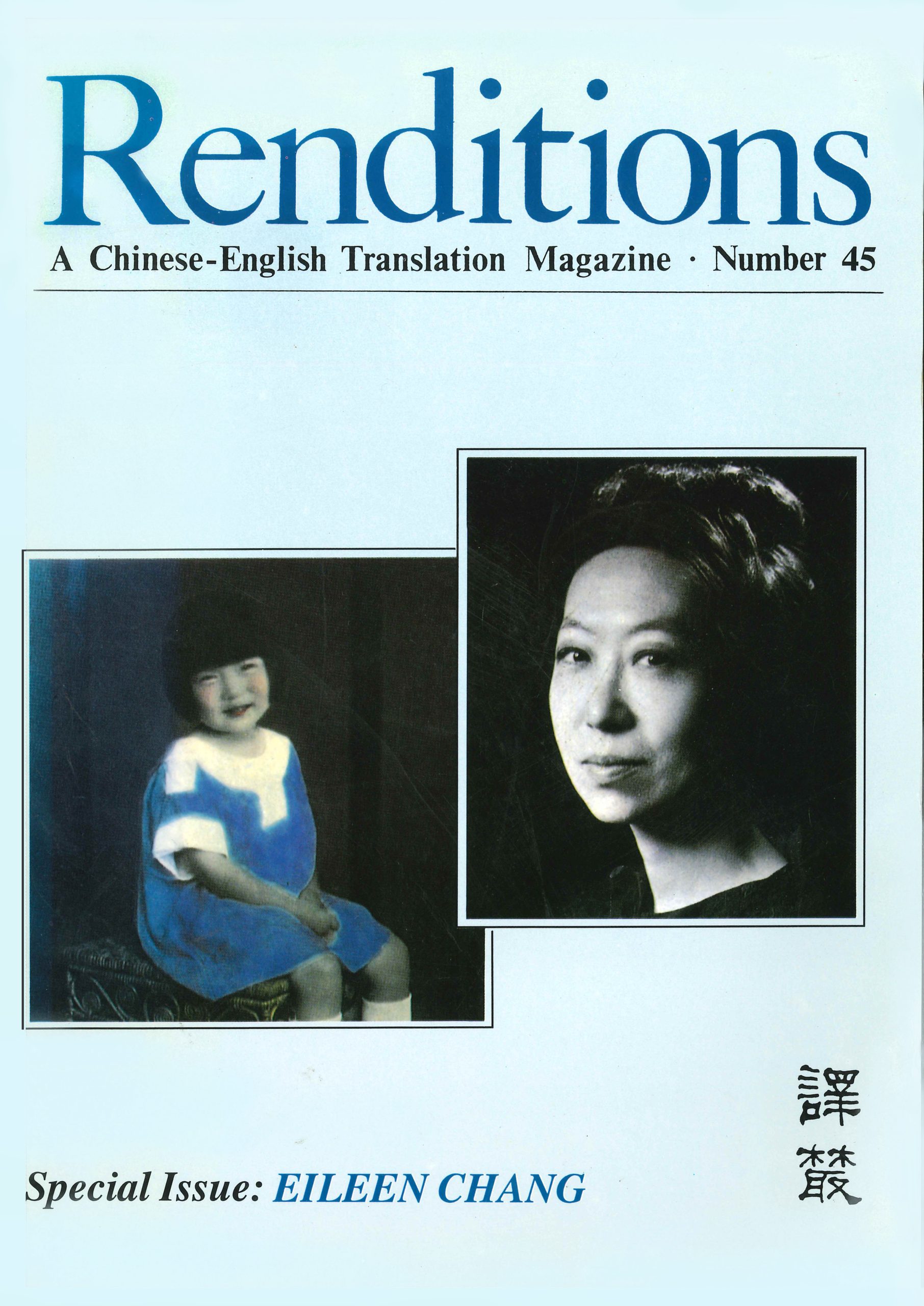
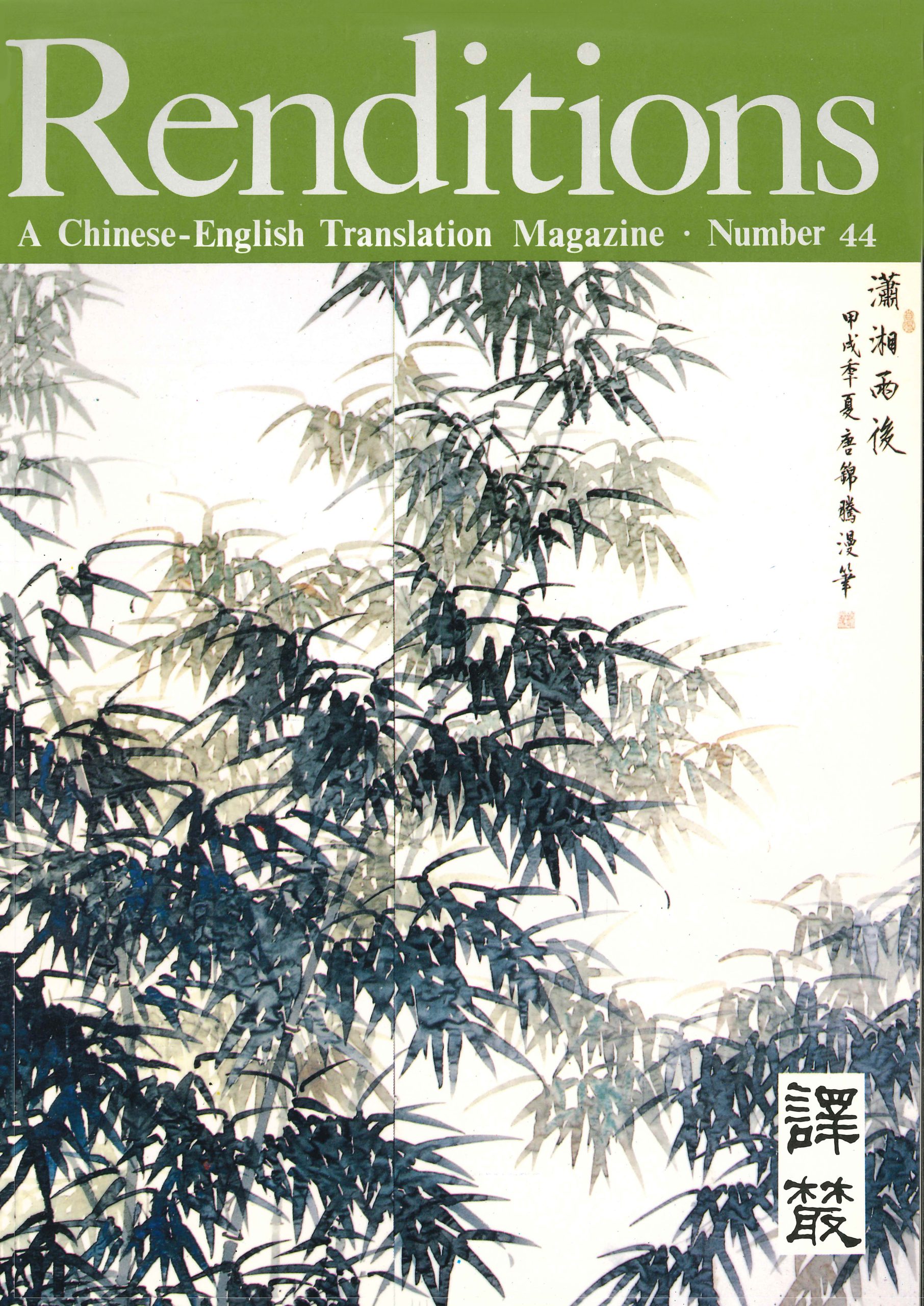
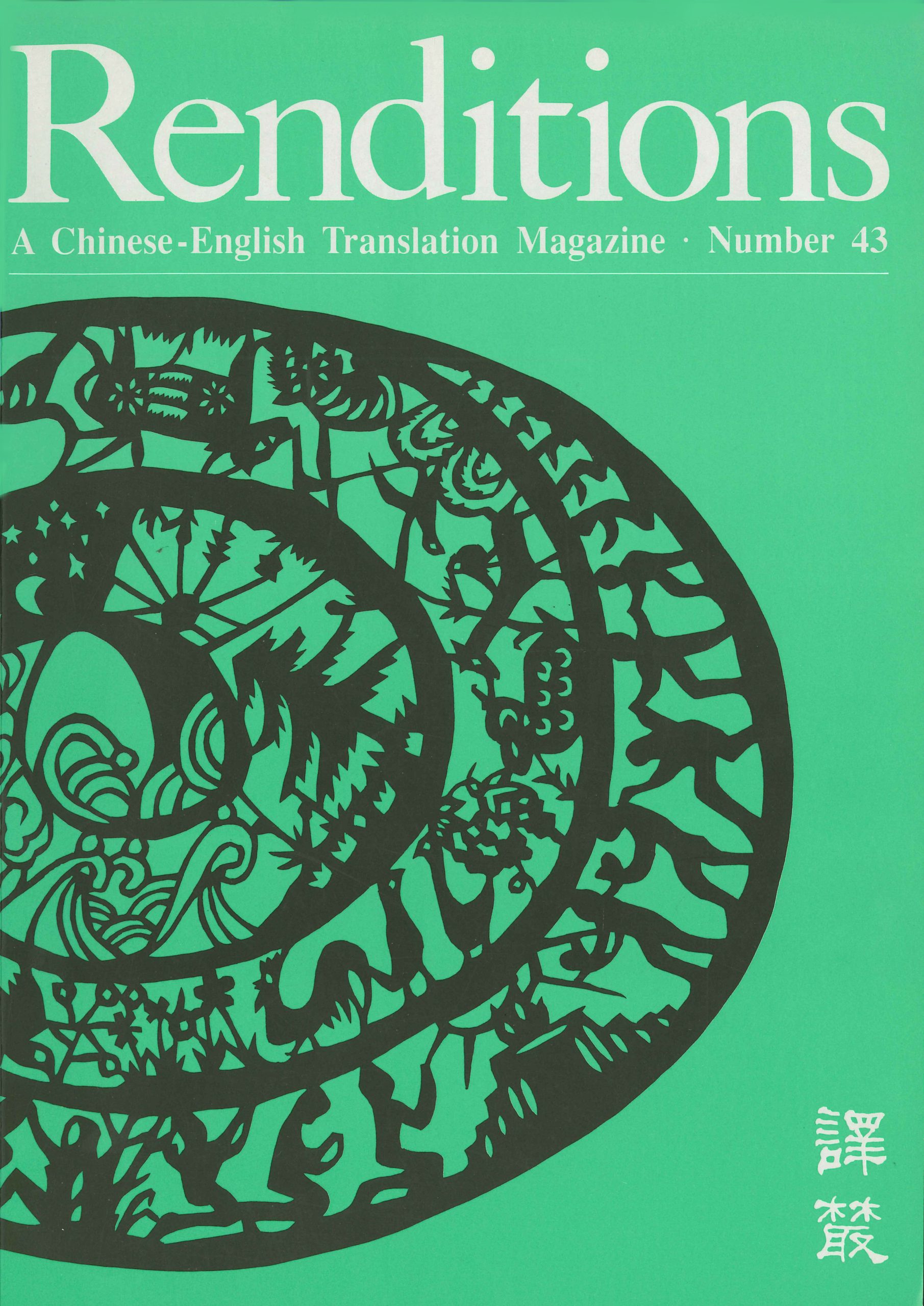
Renditions celebrates its 21st year with a special double issue of classical letters spanning Chinese history from the Qin dynasty (221-206 BC) to the Qing dynasty (1644-1911). Portraits of the letter writers and samples of their calligraphy highlight this issue. Chinese texts included.
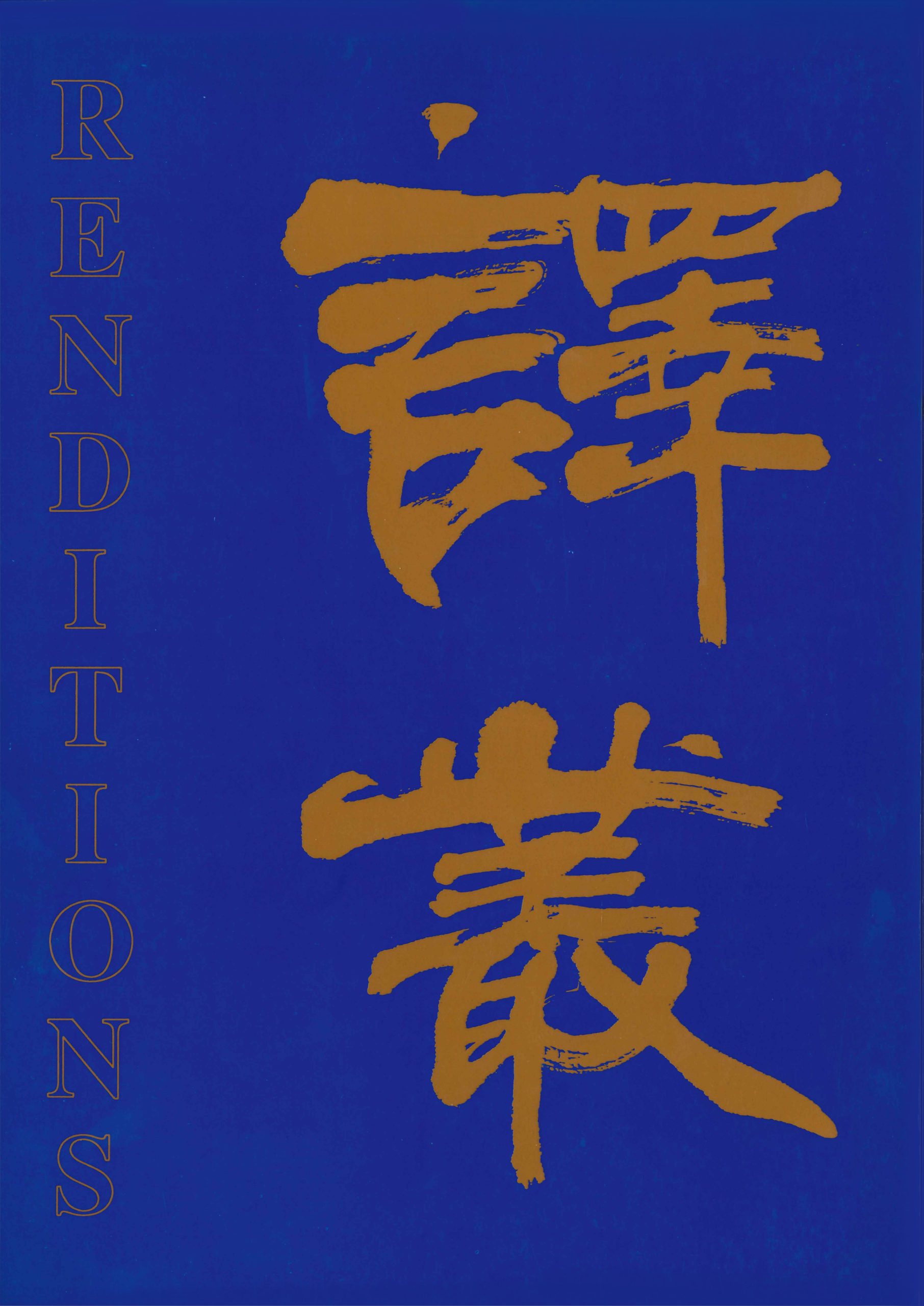
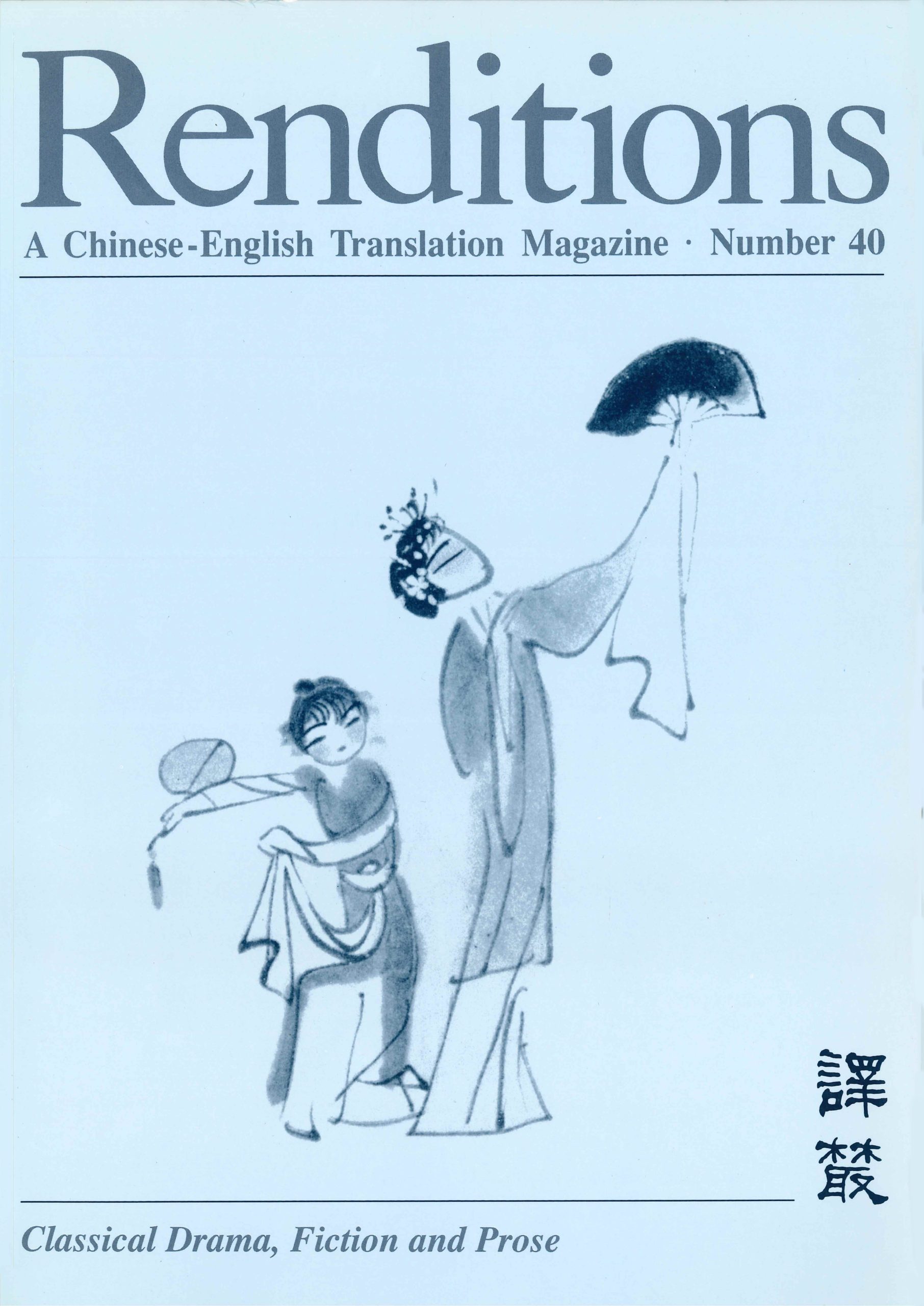
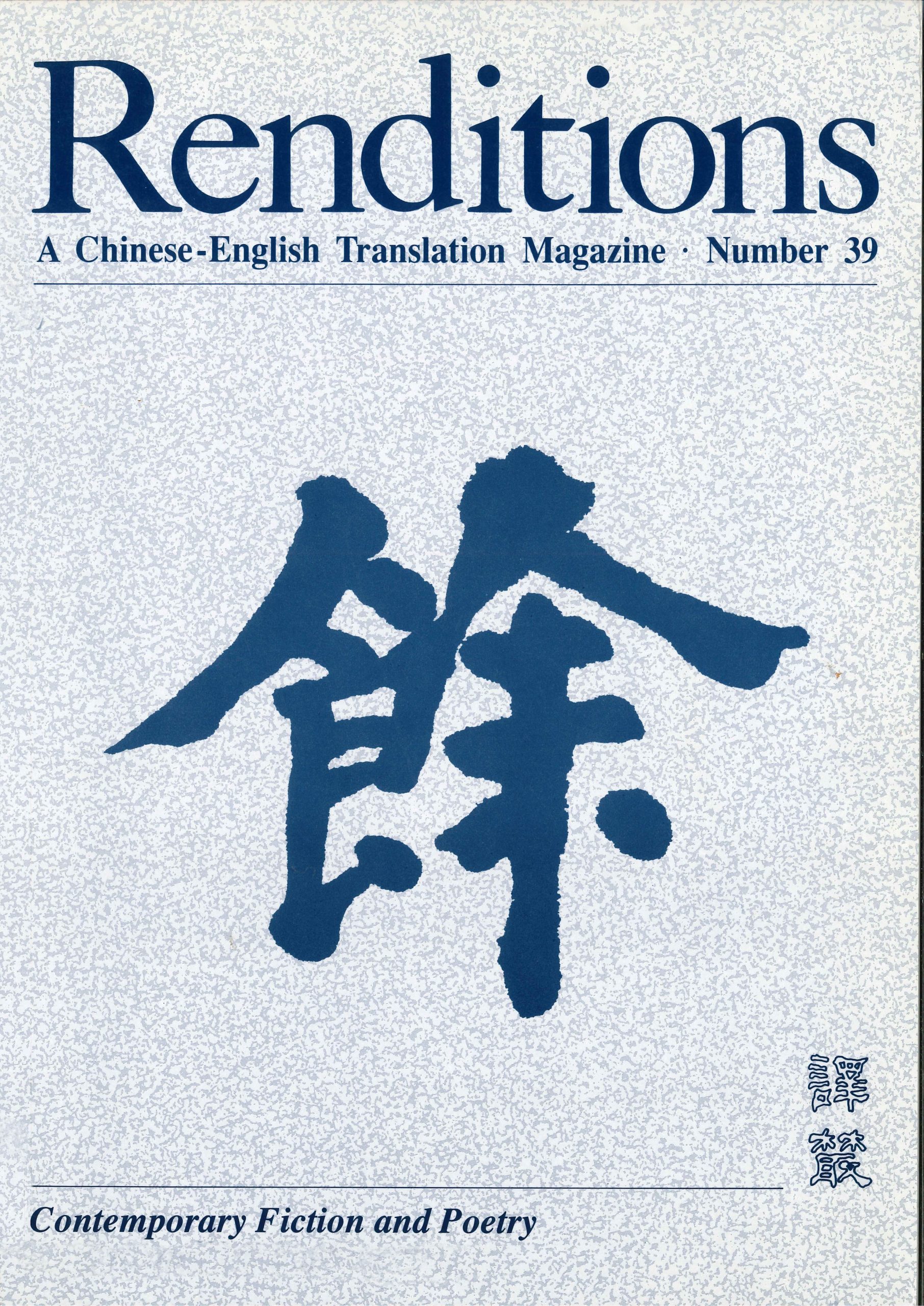
Reminiscences by well-known literary figures, including Bao Tianxiao, Zhu Ziqing, Ba Jin, Lao She, Yang Jiang and Wang Xiyan.
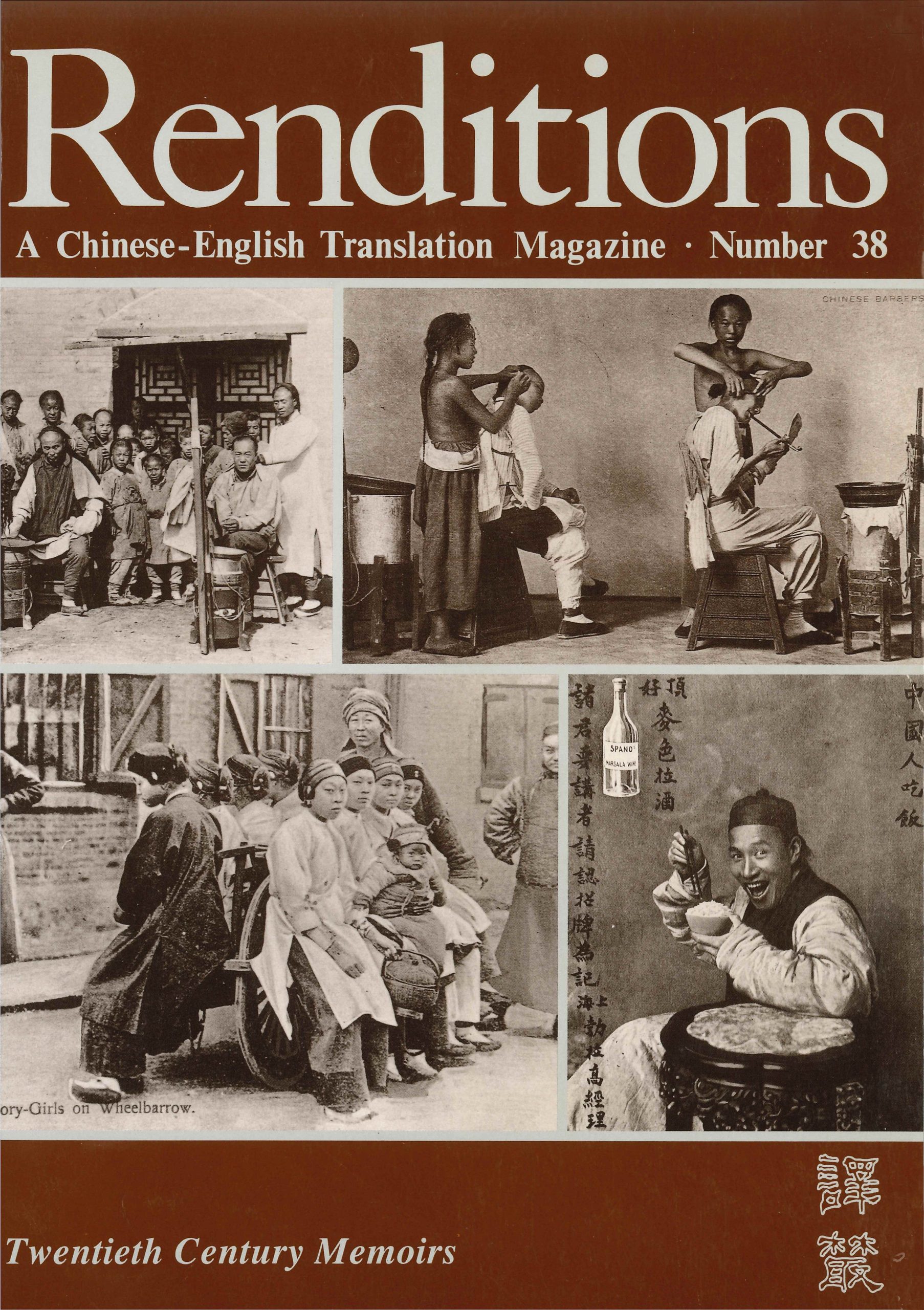
A 60-page special section featuring the works of China's most notable young poets of the late 1980s, including Bai Hua, Chen Dongdong, Hai Zi, Han Dong, Lu Yimin, Ouyang Jianghe, Xi Chuan, Yu Jian, and Zheng Zao. With Chinese texts.
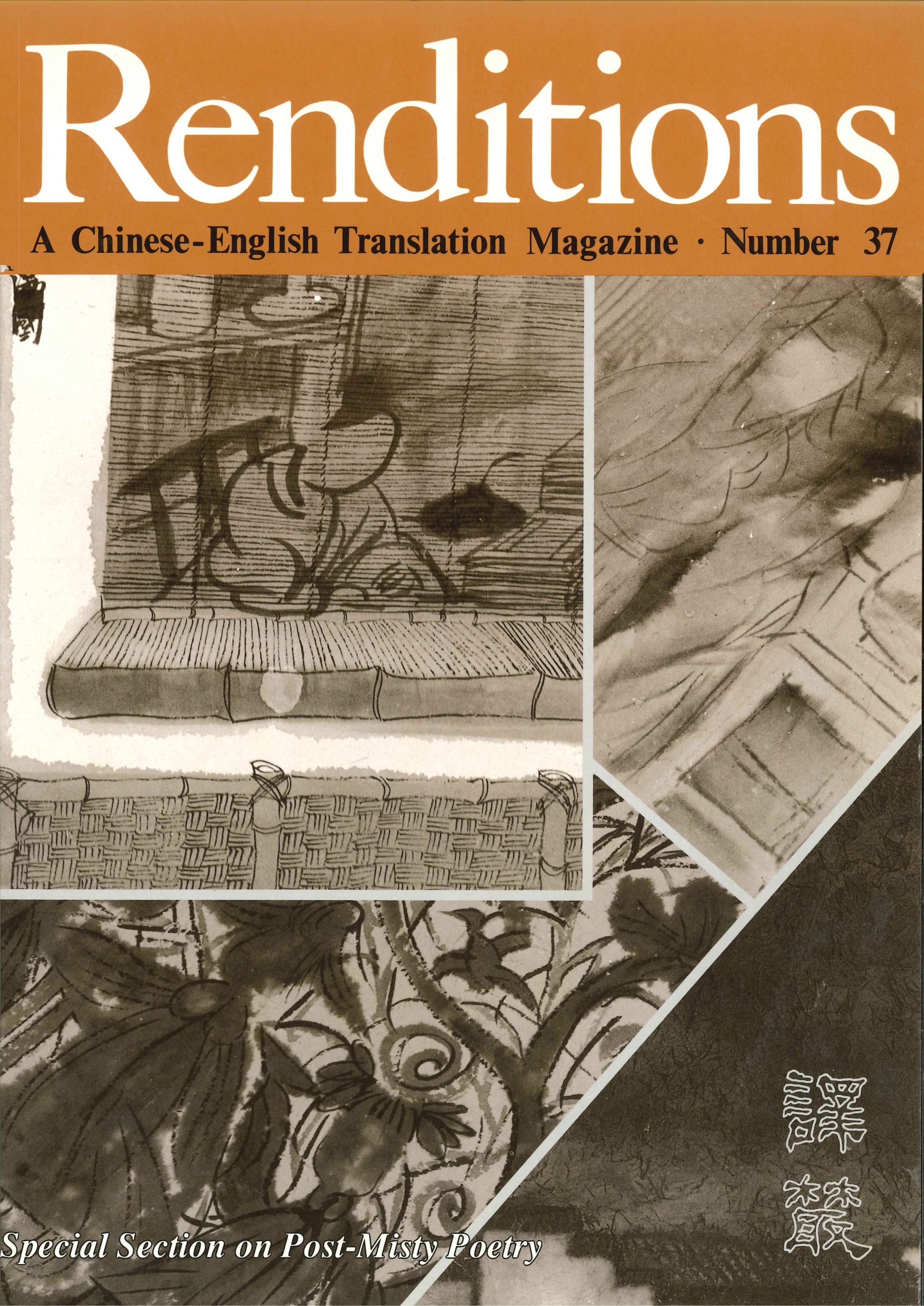
Younger writers are featured, along with a few offerings from well-known writers of the older generation, as well as critical articles. Copiously illustrated with art from Taiwan.
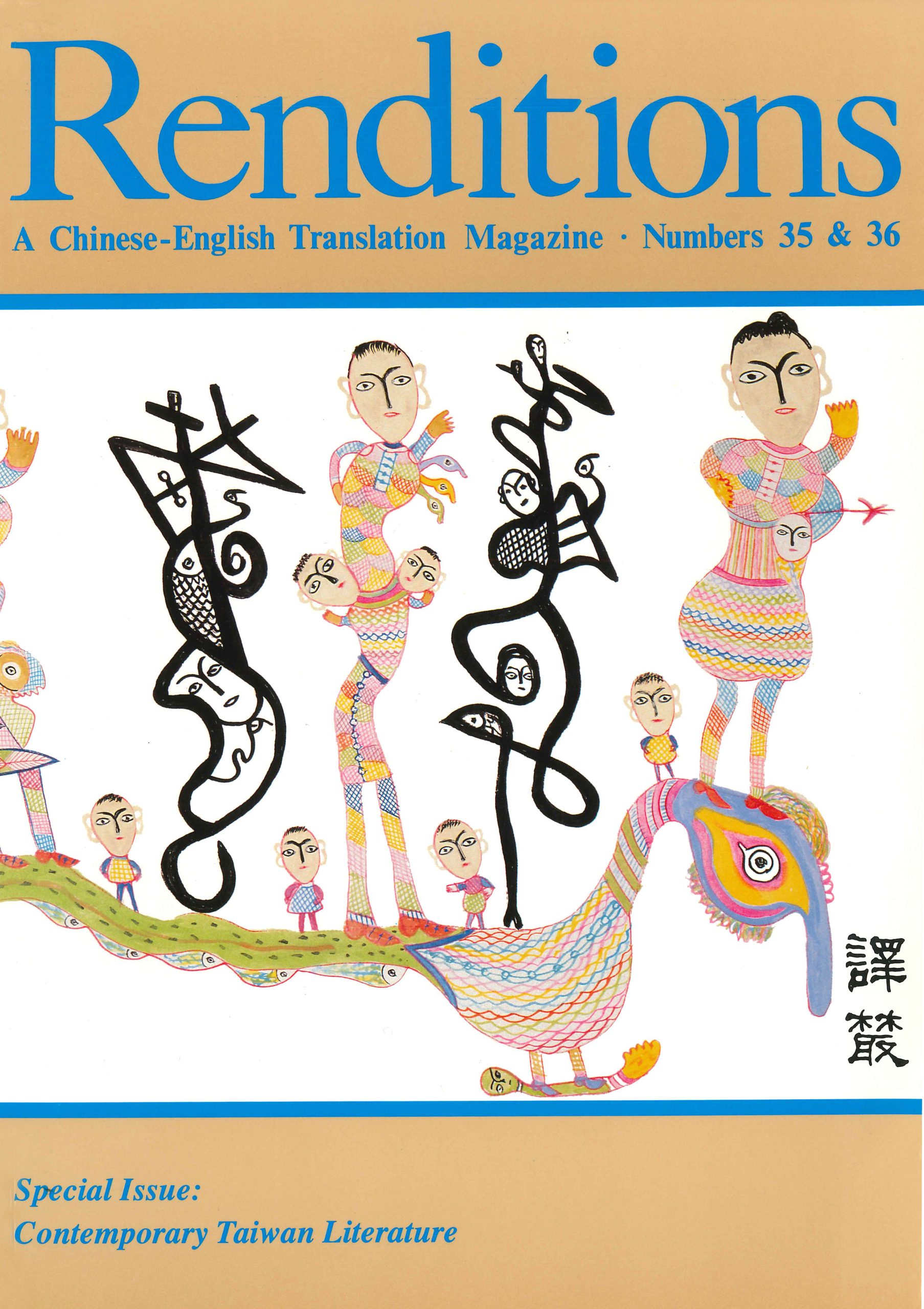
A wealth of material rarely available in translation, from biographies of recluses to "eight-legged essays" and Taoist prescriptions. A dazzling array of major writers from the classical Chinese literary tradition. Chinese texts included.
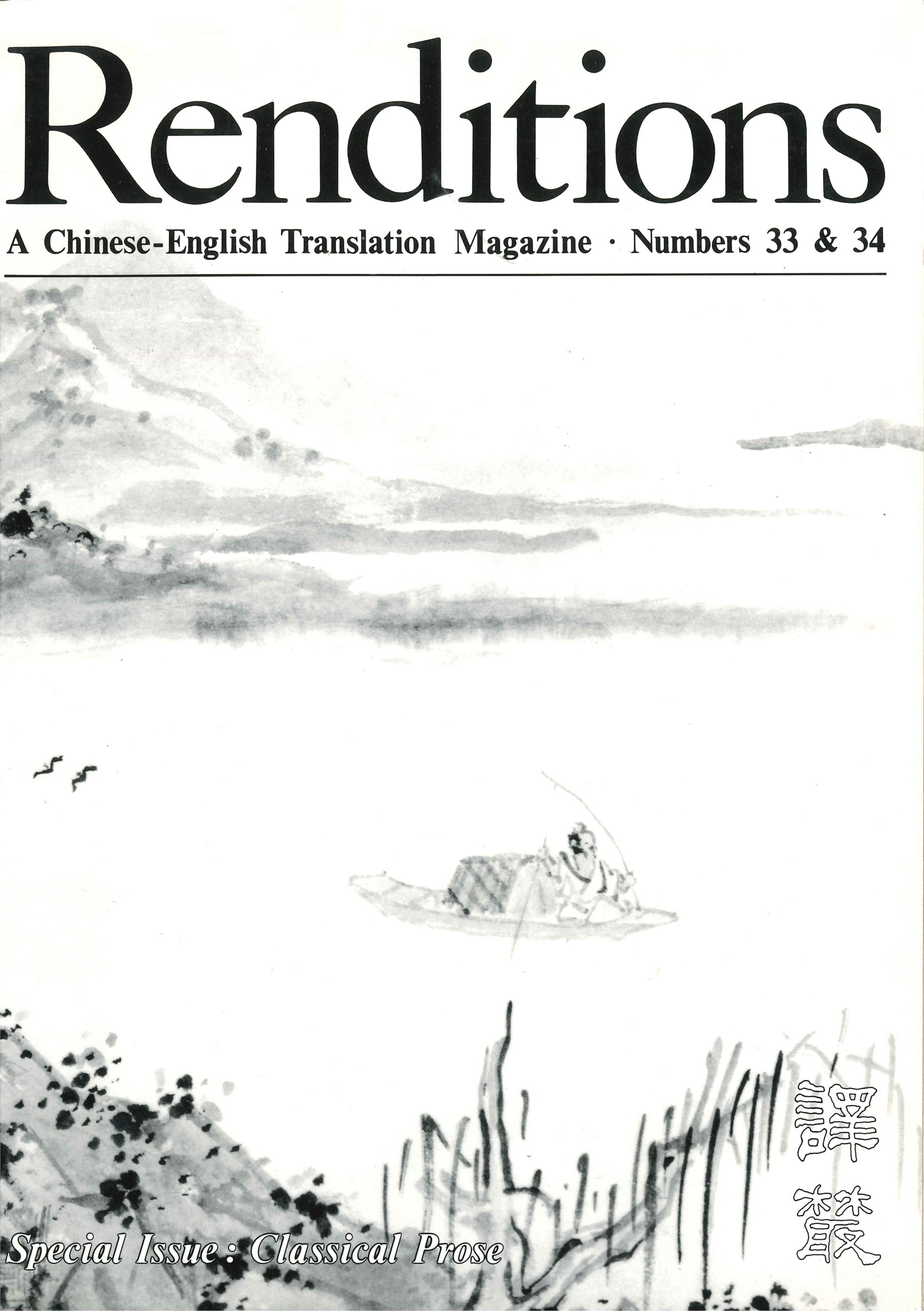
Bing Xin is the focus of a special section in this issue, which includes her fiction and prose writing, her own Autobiographical Notes, and her translation of the poems of Li Qingzhao. Other highlights of this issue are Tang dynasty stories, fiction by Mo Yan and Zhang Tianyi, and the sequel to Liu E's The Travels of Lao Can.
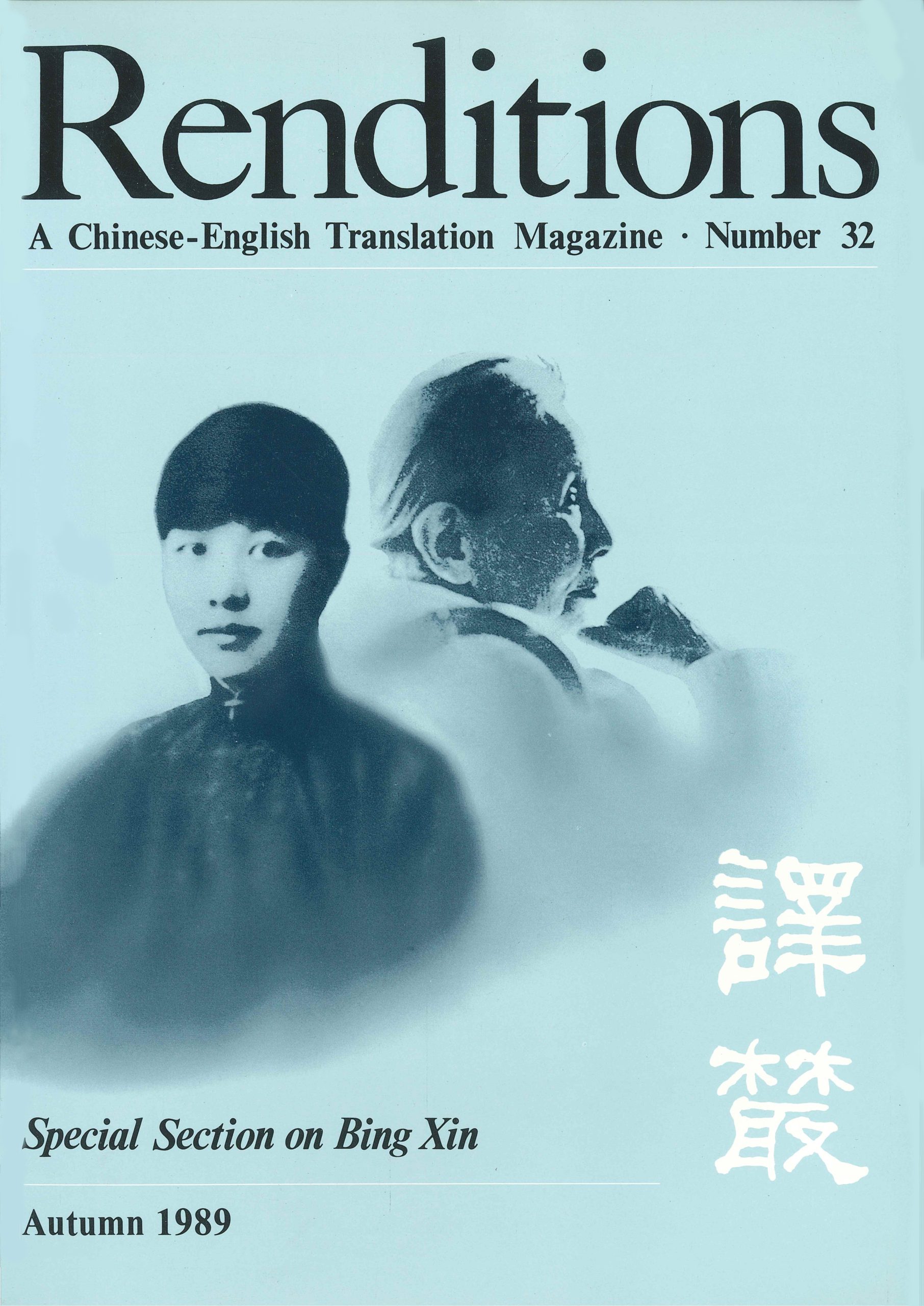
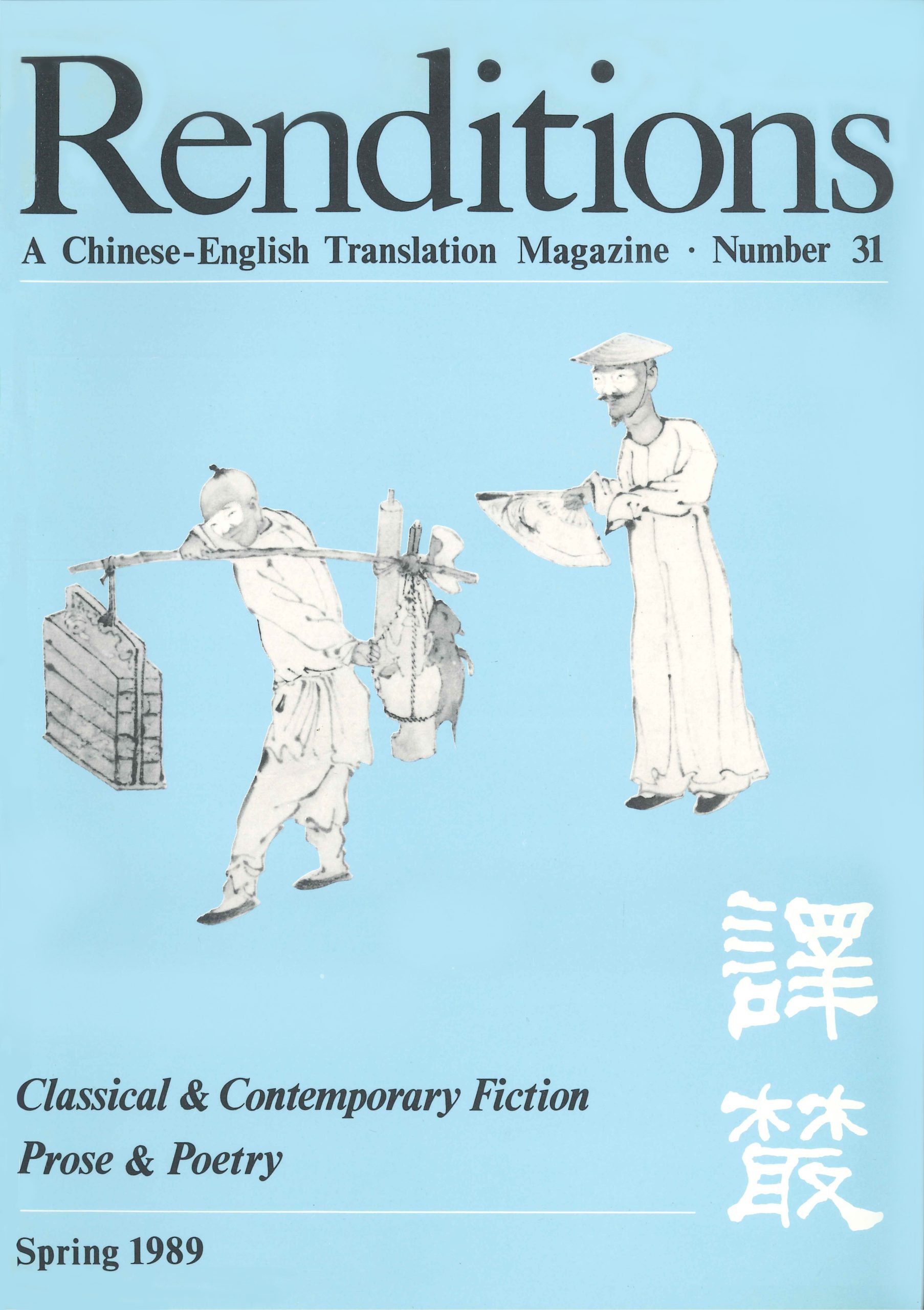
Hong Kong
An anthology of Hong Kong writing, the only one of its kind in English, spanning the history of Hong Kong letters from their origins to the present day.
The breadth and depth of the Hong Kong works collected... show that the barren rock has become a gem, and... has achieved a distinct voice of its own.'
* currently out of print
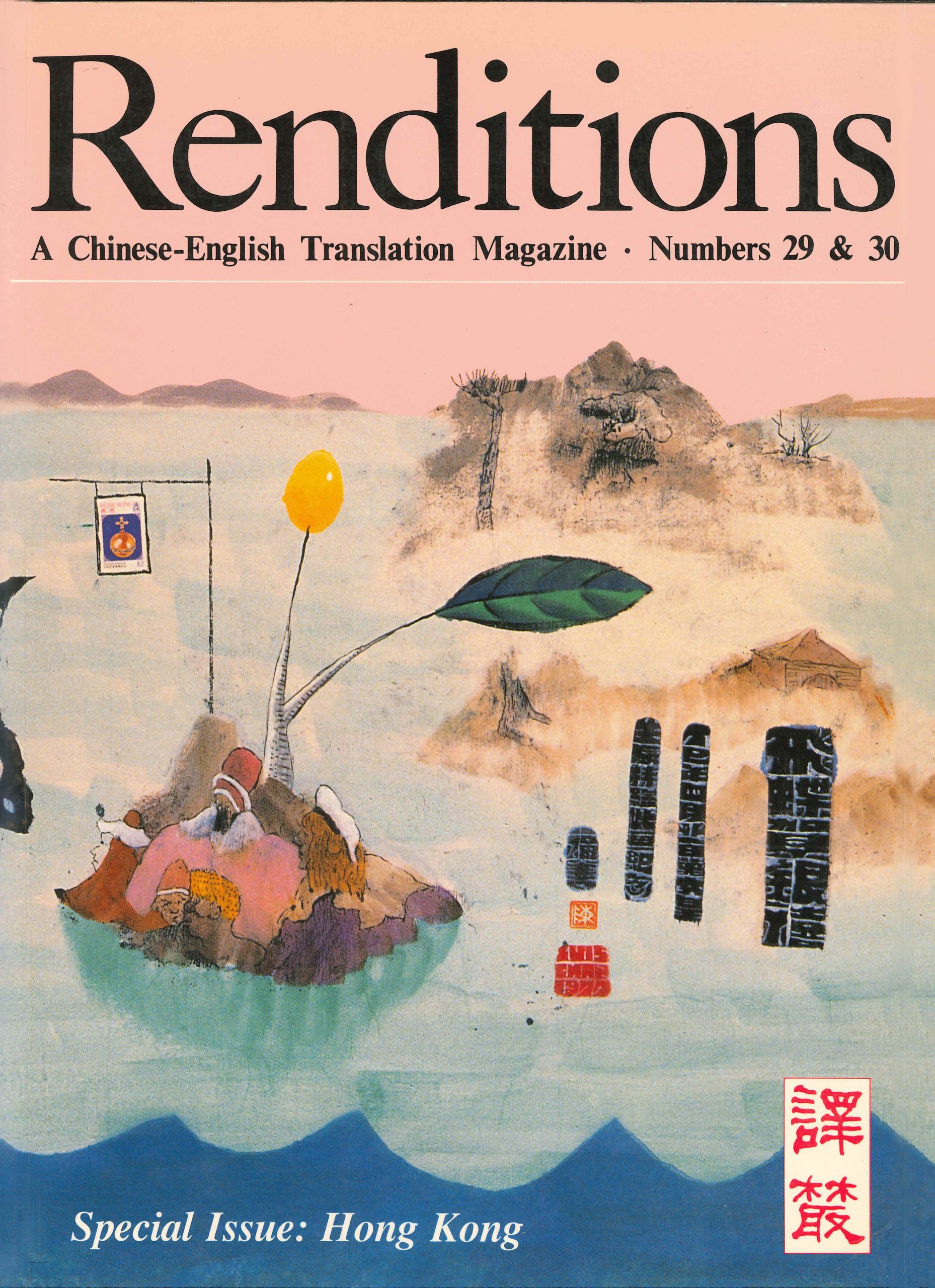
A collection of fiction and poetry from mainland China, Hong Kong and Taiwan, including the works of Eileen Chang, Lin Haiyin (Memories of Old Beijing), Liu Sola and Wang Anyi.
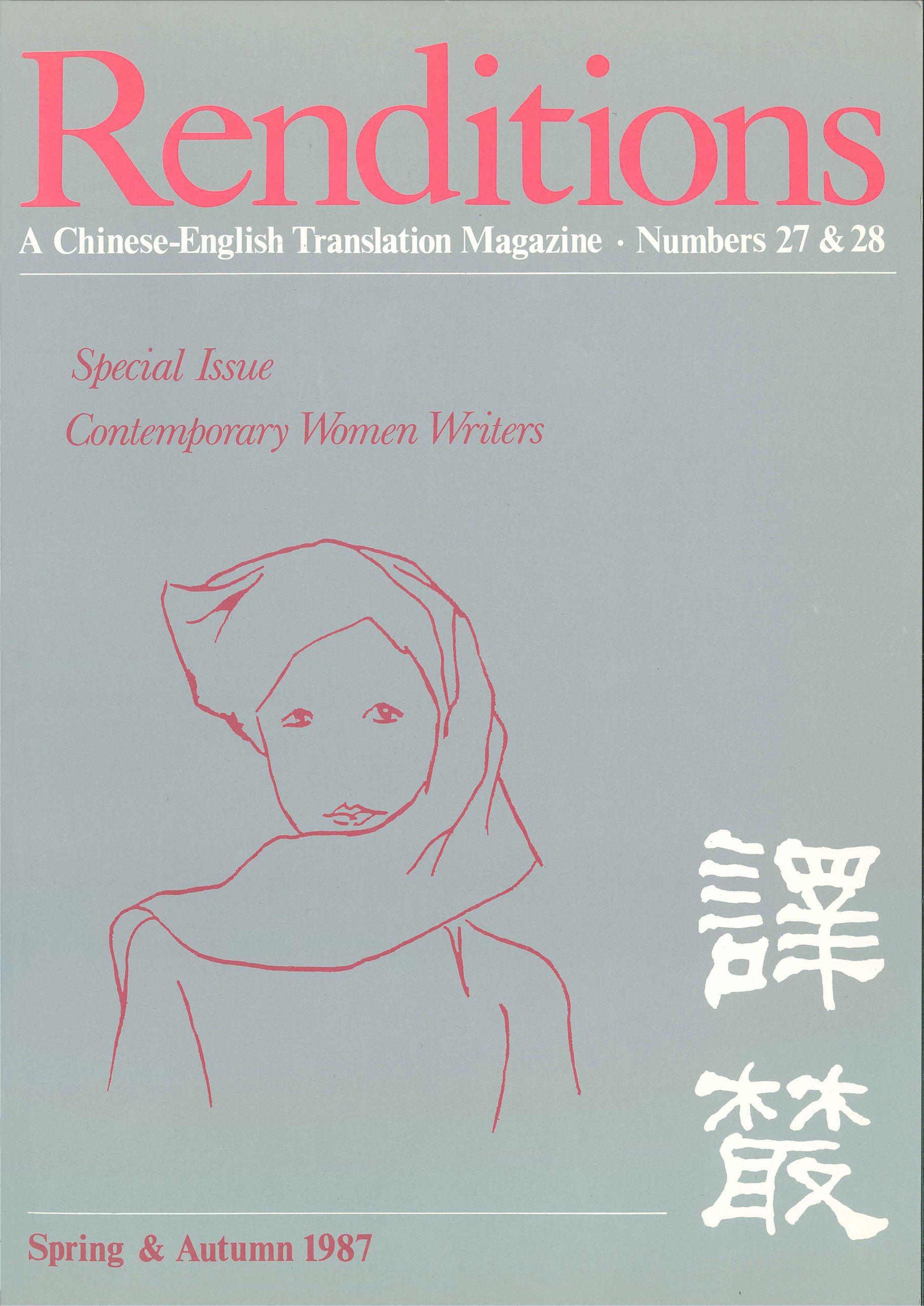
Featuring works from Lu Xun's early and late periods. Paintings by Qiu Sha inspired by Lu Xun's sayings are included.
